Planning a School Trip: Our Step-By-Step Guide
We can probably all agree that to experience learning while out in the world has a big impact. This on-the-spot learning is one of the best ways to ensure that concepts, skills and knowledge are retained. Planning a school trip is one of the most effective ways to introduce experiential learning to your students. A school trip not only cements learning in a way that kids will still be talking about it years later, it also makes that knowledge applicable to real situations. In other words, it turns knowledge that students just have (somewhere, deep down) into knowledge they can use .
But it’s all very well and good to talk about how great school tours are, but how in the world do you actually go about planning one? Where in the world, for that matter? It can seem like an immensely overwhelming task to think about planning a school trip. You might not even know where to start. Luckily, we’re going to make it easier for you. We’ve put together a step-by-step guide to help you get your next (or first!) tour underway.

Step one – the purpose of the school trip
First, you’ll need to figure out the basics. What’s the purpose of this tour? You might already take a particular subject, sport, or activity, which makes determining the focus easy. However, it is worth considering the particular areas you would hope to reinforce or improve upon with this tour. Think about your ideal outcomes, or skills you would like students to gain from this experience. Then it’s time to think about the destination/s, time of year, and duration of the tour. A tip from us here is to be sure to check the academic calendar, assignment periods and school events. It’s definitely worth making sure there are no clashes with other activities or events relevant to students. We have had complications in the past with students dropping out of tours because it clashed with their senior ball!
Step two – choose an educational travel partner
Your next step is to select an educational travel partner. Companies like Student Horizons are here to take all the minutiae of planning a school trip off your plate. You will be able to hand over over all of the organisation, admin, bookings and other details. Right away, the tour planning process becomes so much easier and less stressful for you. Of course, it is important to work with someone you like and trust. If you haven’t used an educational tour provider before, we suggest having a checklist of requirements to help you choose. These might include: support to students, teachers and parents, educational content and resources, industry experience, and crisis management support. Over the last seven years, Student Horizons has proudly cultivated strong working relationships with over a hundred schools across New Zealand and Australia. Our experience, attention to detail, safety and risk management systems and client care has led to extremely positive feedback and a high rate of repeat business.
Step three – building your itinerary
Now that you’ve decided what type of school trip you’re planning and selected a tour provider, it’s time to start building your itinerary! You will need to know your estimated group size, and budget per student. Student Horizons’ tours are bespoke and can be entirely customised to meet your needs. It’s up to you to choose, therefore, how many fixtures, performances, workshops or coaching sessions you want to include. This is generally a good place to start, as putting the key elements in place first will help determine where additional activities can fit in. It’s also good to think about sightseeing excursions, the type of accommodation you’d prefer, and how many teachers will be travelling on the tour. We recommend a minimum of one teacher for every ten students.
Step four – get tour approval
Finally, the last step is to get tour approval! Your school will have specific policies and processes that you need to comply with before booking a tour. Student Horizons will provide all necessary documents to help you secure the support of the principal and department heads.
Planning a school trip can be a long process. We always suggest starting to think about the details we’ve outlined above at least a year in advance. However, working with the right educational travel provider can reduce all the hassle of that year-long process to a mere handful of admin tasks. We would love to show you just how much easier the planning process could be with Student Horizons on board.
To find out more about how we support you, visit our teacher support page .

***Some of the links below are affiliate links, meaning that at no additional cost to you, I will receive a commission if you click through and make a purchase.***
Top 12 Educational School Trip Ideas for Student Success
Table of Contents:
Learning is a never-ending process. It’s not only an educational institution that teaches you! And when it comes to students, what better way than a fun and engaging field trip!?
After all, who doesn’t enjoy a great field trip? It allowed students to leave life’s routine and experience something completely different. And, when it serves the purpose of an educational trip, students can’t wait!
But planning a school trip is more than just fun and excitement! It must add value to the students learning! If you have ideas for student educational trips, this article is for you!
Here, we list the 12 best school trip ideas to help students enhance their learning journey.
We are your companions, like the best essay writing websites that help you prepare the paper by offering abundant ideas, knowledge, and understanding of your requirements.
We’ve listed the fun learning opportunities for students of all ages at different price points that teachers can have a look at. Let’s get started!
Idea 1: Local Museums
What better way than spending a day at the local museums that hold the history of the places?
It doesn’t have to be a history museum; it could be art, science, or a combination!
Museums and school trips are both fun and educational. Students get to learn about different cultures, periods, and history and gain appreciation for the work of artists and scientists.
It is also a great approach to give a sense of belonging to them about their place’s history.
Museums are also a great way to help students write a paper about it. Instead of having to reach out to a research paper writer who already holds the ideas and expertise to write the best essay, students can do the job on their own with a bit of help from them.
Idea 2: Outdoor Adventures
Often surrounded by four walls and classes, why wouldn’t students love a fun outdoor activity? Nothing gets students outdoors like an educational trip. A trip with the teacher ensures that they are aware of what to do and what not to do, but in all, they will have great fun.
An idea of the campground or state park sounds excellent. Students will get to explore nature while learning about the environment. Further, other activities include rock climbing, zip-lining, and hiking. With, outdoor adventure trips seek additional care from teachers!
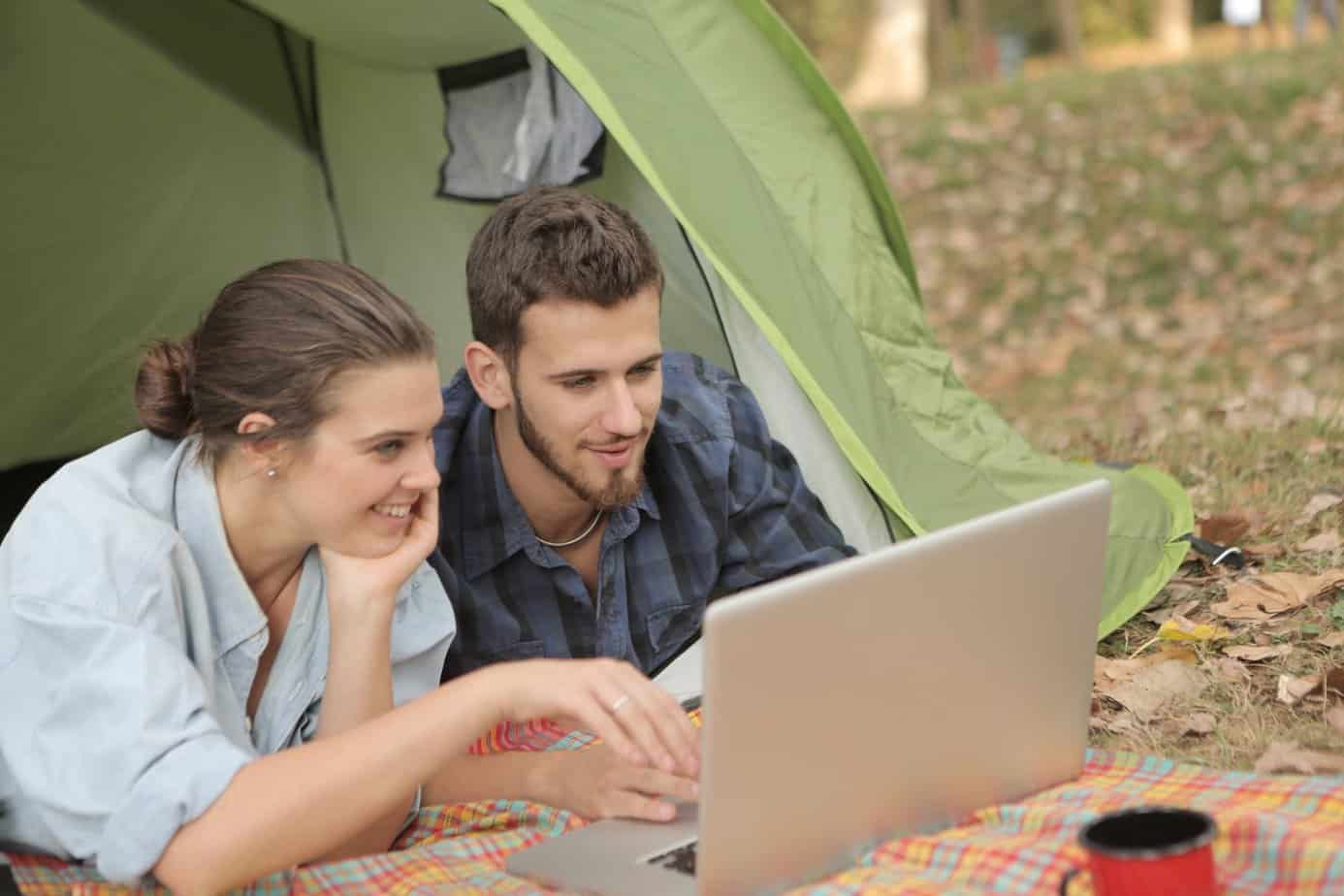
Idea 3: Cultural Destinations
When planning a school trip, consider embarking on an educational adventure at a cultural destination that speaks history and culture. It could be a historic site, a cultural center, or an archaeological site.
In such trips, students explore customs, beliefs, and cultures. Museums are also a great idea, but the cultural destination holds its value! Students can gain insight into the people’s lifestyles in other countries and the periods they lived through, and even participate in workshops to learn more about them.
Idea 4: Farm Visits
Educational trips for students , especially younger children, demand simplicity and fun learning. They barely understand the history of exploring around the museums. Here, a fun farm visit is both exciting and educational!
Farms are perfect for exploring nature closely. Such a trip with the teacher will help students learn about the importance of sustainable farm practices, healthy food choices, and animal husbandry. Plus, they’ll enjoy watching and feeding animals.
Idea 5: Aquariums and Zoos
Next on our list of school trip ideas are Aquariums and zoos. They offer many educational opportunities for students, especially the younger ones! Here, they will be able to learn about animals and their habitat.
In fact, it is a way for them to see the animals they’ve always seen on screen and paper.
In aquariums, they can uncover the ocean’s mysteries and lifestyles. Plus, it is always great to see some wildlife close!
Idea 6: Art Galleries
Art has its own way of expressing itself. It speaks differently to everyone. With art gallery trips, students can immerse themselves in art and history.
They can explore the work of famous artists, view unique art, and get a deeper understanding of cultures and traditions worldwide.
Idea 7: Theater and Dance Performance
A bit of entertainment included in the learning process does no harm. A field trip for students to theater and dance performances encourages appreciation of performing arts.
To ensure that these cultures stay extinct, the student must know what theater and dance performance is! They will be exposed to different forms of art. Further, it can be an essential lesson to them on collaboration, communication, and expression.
Idea 8: Theme Parks
The theme park is also a great field trip suggestion, depending on the subject. You can give students a thrilling educational experience at amusement or theme parks.
They can learn more about physics and engineering while riding and playing! Further, from a business perspective, they get the idea behind what it takes to run a successful business . Amusement parks are also a place to practice mathematics by calculating the cost of food and rides.
Idea 9: Industrial Sites
If your students are more into business, visiting factories and industrial sites can significantly help them.
Here, they can learn how things are made from scratch. They can learn the manufacturing process, discover the importance of safety measures, gain insight into the product, and more.
Factories can be eye-opening experiences for students to help them understand the value of hard work and effort.
Idea 10: Charity Events and Fundraisers
A learning journey towards sympathy and affection teaches a lot. When you let your students attend charity events and fundraisers, you teach them the importance of helping others.
Charity events provide great insight into how a small contribution can make a big difference. Further, charities and fundraisers can be something other than a school trip. Students can volunteer in these activities.
Idea 11: Business Tours
Business tours are a great initiative to explore the world and entrepreneurship firsthand. On such a trip, students learn about different industries and how they operate, and they even meet entrepreneurs who can share inspiring stories.
Going on a business tour and exploring a part of the world they want to become familiar with can be an invaluable experience for students.
Idea 12: International Trips
While it might be a bit costly, compared to other ideas mentioned on the list, an international trip gives the students the taste of another culture.
Here, they can explore different customs and businesses, learn about foreign languages and foreign cultures, and accept the beauty of the places. International trips are an unforgettable experience for everyone!
Wrapping Up
This summarizes our list of the top 12 best school trip ideas for students.
We have listed some of the most popular ideas, from museums and art galleries to amusement parks and international tours. Depending upon the subject, curriculum demand, and students’ wants, you can go with the trip that best suits the student.
Further, consider the age and learning perspective of the students. A school trip is a significant responsibility for teachers and must be carried out carefully to be a success. With these ideas, you can come up with the best suit!
Have you ever planned any of the school trips? What ideas did you move forward with? Do let us know!
Leave a Reply Cancel reply
Your email address will not be published. Required fields are marked *

We are Karolina, Patryk, and Mia, the lazy traveling family. After spending 5 years as digital nomads, and living in many countries in the world, we decided to make Poland our base.
Our mission is to show you safe and interesting destinations where you can travel with your family.
Join our Facebook Group
Join the Poland Travel Support Group , a group to help you plan your trip to Poland!
Subscribe and Get Updates

- Travel Blog Cooperation
- Destinations
- Privacy Policy
- Affiliate Disclosure
- Terms of Service
- Powered By:
- www.HotelMarketingBlackBook.com -
- Hotel Marketing Agency
Planning a School Trip Step by Step Guide
The key to a successful school trip is proper planning. Discover how to plan a school trip for an educational experience students and staff will enjoy.
Organising travel and educational activities for a large group of students can be challenging. Whether you’re planning a school trip for the first time, or have planned dozens of trips for schools and colleges over the years, every excursion has unique requirements.
Educational experiences away from the familiar classroom environment are a great way to engage and inspire your students while having fun. The key to a successful day out is careful planning. The process can take months, but will be worth it when you can sit back and enjoy the benefits of your hard work.
We’ve created this checklist for planning college and school trips:
Identify your educational objectives
Determine the budget.
- Develop a detailed itinerary
Conduct a risk assessment
Arrange transport and accommodation, speak to parents, gather necessary permissions and paperwork.
Continue reading to get more details on each of these steps!
Why is it important to plan for a school trip?
Proper planning for school trips helps ensure each learning experience is safe, stress-free, and enjoyable for both staff and students. Working with an experienced tour operator can help stress-test your plans to avoid any hiccups and unwanted surprises along your journey.
School trips are a brilliant way to introduce students to new cultures and places they might not have had the chance to without your thoughtful and careful planning.
A step-by-step guide to planning a school trip
To guide you through the process, here are seven steps to help you plan a successful trip:
Firstly, align your trip with the curriculum of your students. Consider what part of their learning can be significantly enhanced with an experience outside of their usual classroom and create a goal to form your plans around.
Your goal should be appropriate for the age, learning levels, and key subject-focuses for your students. For primary school students, a day trip to York can increase engagement with history and geography topics. Help secondary school students develop their modern foreign language skills on visits to France, Germany, and Spain. Give sixth form and college students the tools to increase their independence while gaining knowledge for their A-Levels on a science school trip in Iceland .
Share your objective with your SLT, students, and their parents to make the benefits of the trip clear. We’d also love to hear your objectives to ensure we propose plans and activities that will create unforgettable experiences for your students.
Think carefully about your budget and what is realistically affordable for parents. Work with your SLT or EVC to determine funding the school can contribute.
Once you have a good idea of your budget, set aside part of this as a contingency to allow for a little bit of wiggle room. Start planning your trip as soon as possible — you’ll get the best prices the earlier you start planning your trip. Use our payment planner template to stay on top of expenditure and keep track of payments from students and parents.
Develop a detailed itinerary
Whether your trip is one day or involves staying overnight, put together a detailed itinerary for a clear picture of your activity and travel schedule to ensure everything runs smoothly. Use this itinerary to plan key points throughout your day separate to the educational factors, such as arrival times, toilet breaks, and meals. Of course, it helps to allow for some flexibility — while a detailed itinerary is extremely helpful, it can be equally helpful to be ready to move things around if key excursions are already booked up at your planned times.
Our educational travel experts understand how creating a schedule can be daunting, and are well-versed in planning school and school trips. If you choose to book with NGT , we’ll plan and organise an itinerary that meets your needs.
One of the less exciting but essential parts of planning a school trip is carrying out risk assessments . Every trip is different, so it’s important to consider and calculate risks each time you’re planning an excursion.
Use the resources available to you to ensure all your bases are covered. Reach out to your colleagues who have conducted risk assessments to hear their experiences and ask them to sense-check your plan. Do your own research and find the latest advice from leading school travel bodies School Travel Forum and OEAP National Guidance .
As part of our safety management system , we are committed to ensuring you and students are safe in every aspect of our trips and tours. We’re available to answer any questions you may have about safety to help you put together a thorough risk assessment.
Once you’ve decided on a destination and activities, it’s time to find a way to travel there and somewhere to stay if it's overnight. Take the time to do research on different travel operators, considering the costs, travel time, and the service of the operator themselves.
When it comes to finding places to stay, look for accommodation providers that are experienced with hosting school groups and have facilities appropriate for your students' ages and specific needs.
It’s natural for parents to have concerns about their children on school trips, especially if the child is young, if it’s their first trip, or if it involves any overnight stays. Give parents peace of mind with plenty of advance notice and clear communication.
Your first step is to distribute a school trip letter to parents to outline the costs, benefits, logistics and the provider you have chosen. These key elements will allow parents to make an informed decision about the trip. It may also be helpful to include a way to contact you for worried parents to ask questions.
Before you can take students anywhere, you need written permission from parents to do so. Send the permission forms out as early as possible, as well as a few follow-up reminders just in case any forms get lost at the bottom of a student's bag.
Just as you would when travelling for leisure, obtain travel insurance for your school trip. This insurance will protect you and students in the event of issues such as lost luggage, delays, and medical emergencies. If travelling abroad, you may need to obtain additional insurance. If booking with a tour operator, make sure the company you choose does offer insurance and check the details of their cover.
When you book with Next Generation Travel, you’re automatically covered by our group insurance so be sure to read our insurance documents carefully to know what you’re covered for.
How can a school trip tour operator help?
You don’t need to tackle the entire planning process alone! Work with a school tour operator who can help take care of your school trip requirements, logistics and planning.
Choosing to travel with a tour operator can help students to build their knowledge and cultural appreciation for new and unknown places, whilst creating an exciting and memorable experience.
When selecting your tour operator, you should be on the lookout for someone who is a member of the School Travel Forum (STF) and holds the LOTC Quality Badge in order to gain peace of mind when it comes to safety standards.
Choose someone who is honest with you and that has your learning objectives at heart. You should also select a tour operator who has the important accreditations – ABTA and ATOL (if you are flying) so you can be sure they are financially protected.
Consider an operator with great local knowledge, a thorough safety management system, and a personal tour consultant on hand throughout your trip. They should be able to take care of all loose ends and create a sense of fun, so that teachers can sit back and enjoy the trip just as much as their pupils.
When it comes to requesting prices, make sure you ask for a full written quote from various tour operators to ensure that you are getting the best price possible.
Top tips to remember when planning a school trip
There are tons of tips for organising school trips your fellow teachers will be happy to share with you to assist with your planning. Here are some of our top tips to consider:
Prioritise educational value
A successful school or college trip is one where students come away with new knowledge or an inspiration to learn more about their subject. Trips should be enjoyable, the number one priority is ensuring the trip offers value to their educational development.
Use your budget wisely
Be considerate of where to spend your budget to reduce strain on the school, as well as parents who may be struggling financially. Stay within your means to ensure your students can all benefit from an exciting, educational trip regardless of their finances at home. School and college trips can still be impactful on smaller budgets — speak to a member of our team to discuss your goals and we can help you find a budget-appropriate option that provides value to your students. If you’re speaking with a tour operator, establish your budget with them early on and they will build an itinerary to suit it.
Make it fun
School trips shouldn’t feel like the classroom has simply been transported to a different location. Rules and structure are still important to keep everyone safe, but the experience should allow students to have fun while learning in new and exciting ways. Our tours are run by educational travel experts who are skilled at engaging students in any subject to create meaningful learning experiences, so you can take a step back from teaching and enjoy the visit alongside your students.
Ask students for their input
Get students involved by asking what they are excited about before the trip and what they hope to get from it. Encourage them to research the locations to help them connect with it in person. When you’re there, suggest students keep a diary or make notes about things they liked or that have had an impact on them. These notes will be a handy referral point post-trip to understand what has stuck in their mind.
Be flexible
Don’t get too attached to your plans early on, as there are lots of factors that can change before booking. Be flexible on your preferred dates, as this can help you get the best price. Select dates that avoid clashes with any other school or college activities to maximise the chances of attendance. It’s unlikely you’ll find dates that work for everyone, but you could suggest a few options and go with the one that works for the majority.
Ready to begin planning your school trip?
Once you have confirmed the details of everyone attending, received your deposits from parents, and got final approval from your EVC or SLT, it’s time for the fun bit. You can officially book your trip! As for the finer details, your tour operator should be able to help with this — leaving you to think about creating lasting memories for both you and your students. Get in touch with one of our specialists today to get started with your trip planning.
- Primary Hub
- Art & Design
- Design & Technology
- Health & Wellbeing
- Secondary Hub
- Citizenship
- Primary CPD
- Secondary CPD
- Book Awards
- All Products
- Primary Products
- Secondary Products
- School Trips
- Trip Directory
- Trips by Subject
- Trips by Type
- Trips by Region
- Submit a Trip Venue
Trending stories

Top results

- Plan A School Trip
School trips – Ultimate teacher guide & 100+ venue ideas
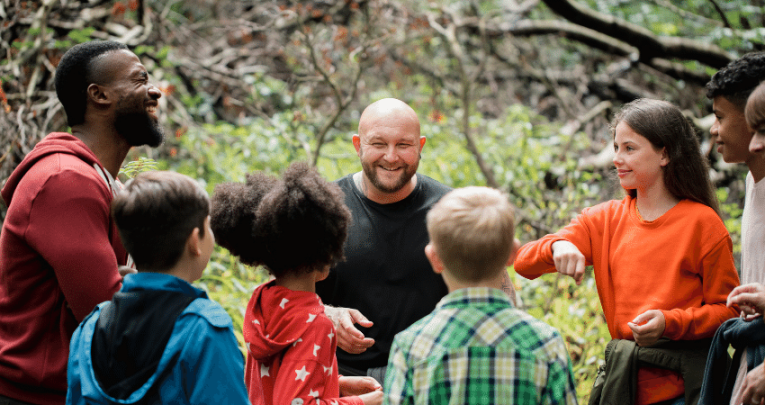
There’s lots to think about when organising and leading an educational excursion, but these pointers will help set you on the road to success…

Find the perfect school trip
Ultimate teacher guide to planning school trips, school trip ideas.
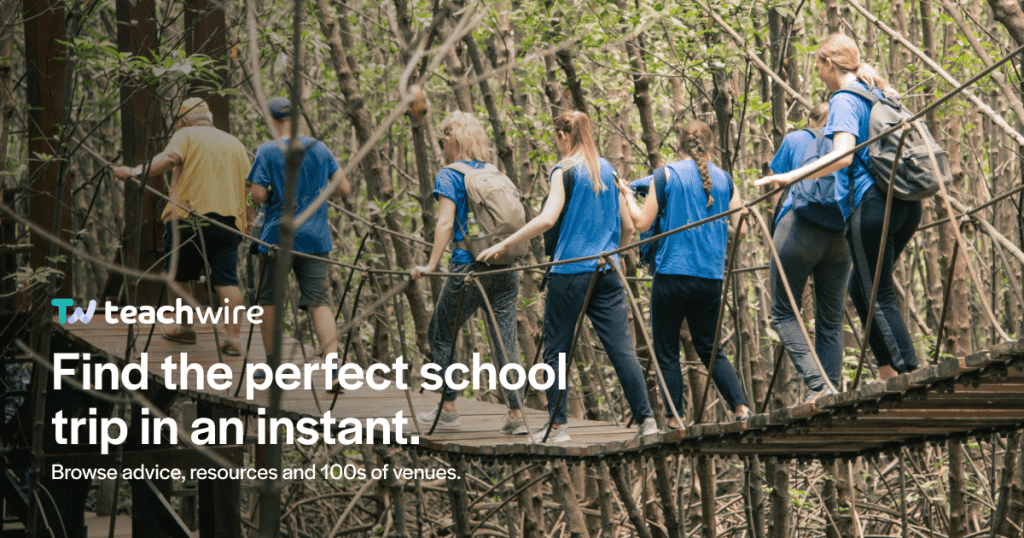
Find perfect school trips in an instant with our school trip finder . Explore school trips by subject , region or type . Or you can simply browse our extensive school trip directory until you find something your pupils would love.
Start planning school trips early
It falls under the category of ‘common sense’, but in teaching, where time is often in short supply, it bears repeating: allowing adequate time for planning a school trip is essential.
Rushed school trips , planned days or weeks before rather than months in advance, will be both a more stressful experience for you as organiser, and at risk of underperforming educationally.
One of the key findings of Ofsted’s 2008 Learning outside the classroom report was that learning outside the classroom (LOtC) was “most successful when it was an integral element of long-term curriculum planning and closely linked to classroom activities”.
Gill Harvey, chief executive of the School Travel Forum , says that many school trips don’t get beyond the planning stage because teachers “haven’t gauged parental interest and got approval from the headteacher first.”
Making an enquiry with school trips venues or providers should be “the last step in the process”, she continues.
Educational and learning value
As the Council for Learning Outside the Classroom (CLOtC) highlights in its guidance, “the objectives for [your] visit should be defined carefully and must relate closely to classroom work.”
In its 2008 report, Ofsted noted that, “Too many residential and other visits […] had learning objectives which were imprecisely defined”.
When thinking about educational school trips, headteacher Tracey Bowen stresses that its “vital to be clear about why you’re going. What’s your intention? What do you want to get out of it?”.
She continues: “We spend a phenomenal amount of time planning school trips, checking what the content of a workshop is, explaining what our needs are.”
It’s important to think carefully about where you choose to go. As Tracey points out: “You can get brochures through and think, ‘Oh, that looks great – we’ll go there!’. However, unless you’re careful, you can end up thinking, ‘That’s not what it said on the tin!’.”
“Unless you’re careful you can end up thinking, ‘That’s not what it said on the tin!'”
More fundamentally, for a successful school trip, your choice of destination should be informed by your learning objectives .
The CLOtC advises that if your outcomes can be “successfully achieved in the grounds of your school, or within easy access in the local area, then it is unlikely that travelling for hours to reach a more distant venue will enhance the learning experience”.
But, of course, there will be many instances in which an external provider located further afield will be essential.
The cost of school trips
Steve Craven, director of NST Travel Group, recommends being flexible with your travel dates, transport options, departure points and accommodation location to get the best price for school trips. He recommends not being afraid to ask for advice on making your financial resources stretch a little further.
Consider the length of your school trip, too – the longer the trip is, the more expensive it will be.
If you’re going on a residential school trip, filling your itinerary with a mix of free and paid-for options will help to keep the cost down.
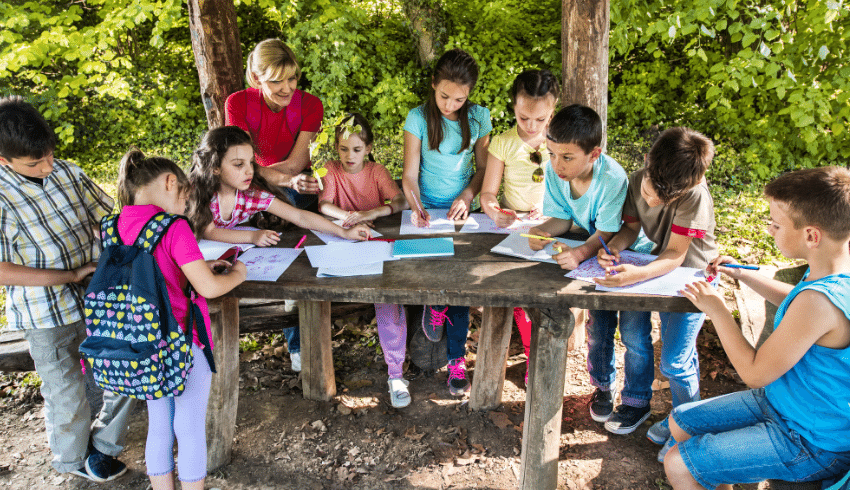
Sylvia Holland is a KS4 lead practitioner at Impington Village College and Impington International College who regularly organises MFL school trips abroad.
When it comes to the cost of transport, she says, “Since Brexit and the pandemic there has been a noticeable increase in the costs of flights. However, being flexible with our travel dates has enabled us to benefit from the best prices available.”
Her school has also benefited from community and charity funding, government grants and school fundraising. She recommends looking into The Turing Scheme .
Helping parents budget for school trips

In a post-pandemic climate, where pupil attendance is still giving us significant causes for concern ,
Many households are under strain when it comes to paying household bills. This is combined with food costs soaring plus the impact of rising interest rates on mortgage repayments and rents.
This has resulted in households everywhere having far less disposable income. So how can schools tackle families’ anxieties about paying for school trips?
Parental finances
One thing we can do is provide parents with clear timetables at the start of the academic year. These should record proposed trips and upcoming costs. This helps with parents’ budgeting.
If your capacity extends to it, you could even look into setting up financial literacy support sessions for any parents needing to improve their ability at budgeting successfully.
Where possible, look to provide a monthly payment system. Here, parents regularly deposit small sums in a dedicated account, before then making withdrawals once a trip has been arranged.
There’s scope to subsidise the trips themselves using Pupil Premium and/or SEND funding. Or you can approach your PTA about supporting funded places.
A good way of getting parents to engage can be to research any local financial support organisations. Share details of these in your school newsletters and parental forums.
The onus is on schools to embed these kinds of practices into their daily routines. If a school can demonstrate that their parents’ financial status is an area they’re sensitive to, this will help build a sense of openness.
Support for parents
- Consider helping parents access financial literacy workshops from a local support organisation. Or provide them yourself in after-school sessions
- Ensure that parents feel able to inform you in the event of financial concerns or shocks that might be affecting them and their families
- Engage with charities that might be able to offer financial support to struggling families. Pass on any useful advice or guidance
- Some LAs can provide support with additional school expenses in ‘exceptional circumstances’
Nikki Cunningham-Smith is an assistant headteacher based in Gloucestershire .
Free UK school trips
Of course, you don’t always need to travel far to find an appropriate setting for your school trip. Staying local helps you save on travelling time and costs but also helps children to engage with the local history of their community. Check out a great range of free school trips here .
Risk assessments and school trips safety
The very thought of being responsible for the wellbeing of 30+ unleashed kids can be enough to put teachers off school trips for life, but there has never been more guidance available for those responsible for carrying out risk assessments.
So what exactly is a school trip risk assessment?
According to the Association of Teachers and Lecturers, a risk assessment is “an essential element of any school trip – not to mention a legal requirement.”
The DfE’s ‘ Health and safety on educational visits’ resource , which draws upon the work of both the CLOtC and the Outdoor Education Advisers’ Panel (OEAP) , is a useful starting point.
“If you are the group leader, always be prepared to trust your own judgement”, advises the NEU.
“If you think that to continue an activity or a school trip would compromise the health and safety of the group, you have the authority and responsibility to cancel it.
“The teacher/group leader is expected to apply the same standard of care as would a ‘reasonable parent’ acting within a range of reasonable responses.”
If you need help with your risk assessment, each local authority has an outdoor education advisor who is there to help and support you.
School trips insurance
It’s vital that all staff and pupils are fully and correctly insured for your school trip. NEU says that it’s important to “study insurance policies carefully – they should include cover for possible personal liability and ‘third party insurance’ for all responsible adults.
“Group leaders must ensure that they do nothing to jeopardise their insurance cover.
“When negligence is alleged, the case will nearly always be taken against the employer, who is vicariously liable and carries insurance for third-party liability.
“Claims are seldom brought against individuals and, if individual employees are sued, they may bring in their employer as a co-defendant.
“Some employers provide a specific indemnity which protects staff against any liability if a claim is made against them personally.
“The courts do not rush to find schools and teachers negligent, they accept that accidents do happen.
“However, schools must demonstrate that they have taken reasonable steps to plan school trips thoroughly and assess and control risks, and individual teachers must demonstrate that their responses to an incident were within the range of the reasonable responses of a parent.”
Accredited providers of school trips
It’s easy to underestimate the time and energy needed to organise a school trip, especially if you’re taking a ‘DIY’ approach and arranging all the separate elements yourself.
Using an accredited provider or tour company gives you financial protection in the form of ABTA or ATOL bonding, but another benefit, as Gill Harvey from School Travel Forum explains, is that reputable tour companies will have “first-hand knowledge of your destination and a good ‘bank’ of suppliers from which to choose appropriate services for your school trip. They can offer 24-hour help and support in the unlikely event that anything should happen – from flight delays to last-minute cancellations.”
Using an accredited provider can save you time when it comes to paperwork and “gives you peace of mind that the elements of the school trip have all been carefully checked on your behalf”, according to Gill.
Jamie Walls, product development and delivery manager at YHA , recommends looking in particular for the Learning Outside the Classroom (LOtC) Quality Badge .
He says: “It’s the only nationally recognised indicator of good quality educational provision and effective risk management.
“Having this quality standard means the red tape associated with a school trip is reduced.”
Getting assistance from the school trip venue
If you can’t quite find what you’re looking for when browsing school trip ideas, don’t be afraid to ask venues for assistance, advises deputy headteacher Grace Shaw.
Many museums, galleries, zoos and the like are more than willing to be flexible.
Grace says: “Rather than picking off the menu, you can tailor-make what you need. Museums in particular are usually very happy to adapt their offer, because they’re so thrilled to share what they’ve got to share.”
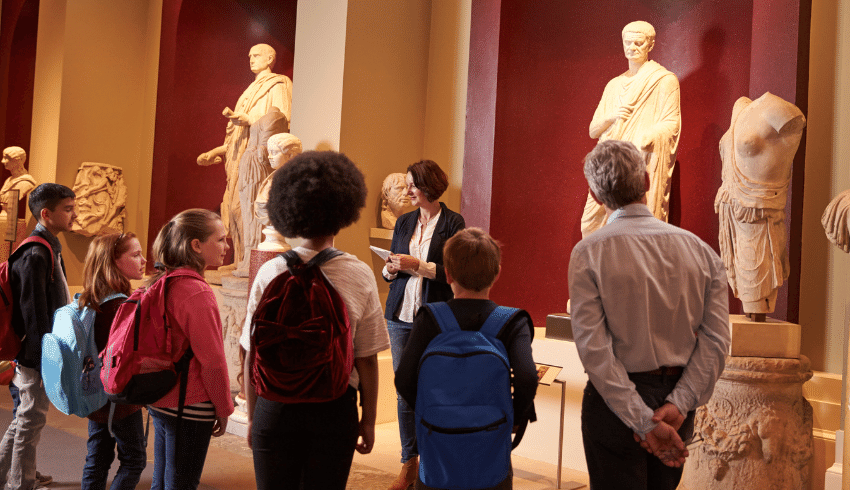
On school trips where venue staff are taking the lead in guiding students, don’t be tempted to switch off.
Grace says: “Some teachers think, ‘I’ll get to my workshop, then the workshop leader will have the children and I’ll get them back at the end.’
“Actually, you need to work with staff, because while they’re experts in their field, you’re the expert in your children. You’ve got to develop a partnership.”
Gill Harvey adds that to maximise the positive impact of your trip and help gain approval from parents and the school to run the trip in the first place, ask your operator how they can support you to promote the learning benefits of the trip to your stakeholders.
Planning a school trip checklist
The Association of Teachers and Lecturers lays out the following checklist for planning a school trip.
- Obtain approval from your school and the local authority, if applicable
- Undertake or obtain a risk assessment
- Detail staffing, supervision and training needs
- Ensure that the trip is adequately insured
- Plan transport
- Obtain written parental consent for medical treatment and brief parents
- Conduct an exploratory visit
- Prepare contingency and emergency arrangements
- Brief staff in preparation for the trip, including responsibilities and emergency arrangements
- Prepare children for the trip by discussing arrangements, expectations and safety
Inspection visits
Making time to head to your destination ahead of the trip proper can help clarify issues as trivial as where you need to park, as well as more important issues relating to health and safety.
In its National Guidance, the OEAP notes that while accreditations and other sources of information provide essential assurances, “they are not a substitute for a preliminary visit and being able to clarify issues face to face.”
Jamie Walls from YHA says that by arranging a pre-visit, group leaders can get a feel for the residential destination. “They can also talk to staff, get assistance with any paperwork necessary and see the activities first-hand,” he says.
If you’re planning a school trip residential, a visit will allow you to assess catering and sleeping arrangements. “Ensure that your groups have dedicated rooms and that the catering is not only offered but of good quality, with any dietary requirements catered for too”, suggests Jamie.
Adult-to-pupil ratios
According to NEU, there’s no precise formula for the ratio of adults required on a school trip. “It’s down to reasonable judgement”, it explains.
“You should take into account the nature of the expedition, and the number, age and aptitudes of the children. School trips which involve hazardous activities require more adults for a group.”
“There’s no precise formula for the ratio of adults required on a school trip”
Many venues will state their own ratios for school trips on their website.
Government guidance on ratios
On its website, the Health and Safety Executive states that pupil-to-staff ratios for school trips are not prescribed in law.
It states that “those planning a school trip, on the basis of risk assessment, should decide the ratios, taking into account the activity to be undertaken and the age and maturity of the pupils.”
Preparing the children
Before embarking on your trip, set out your expectations about behaviour and lay out your learning outcomes and how they will be used in the following weeks.
It’s also important to set out to children what will happen on their school trip – emphasising the times when they’ll need to focus and the opportunities for free time available.
Giving children a clear idea of what will happen on your trip and when can help to alleviate anxieties about the unknown, according to experts at PAC-UK .
They propose providing a timetable of the trip, breaking it down into its component elements, the more visual the better.
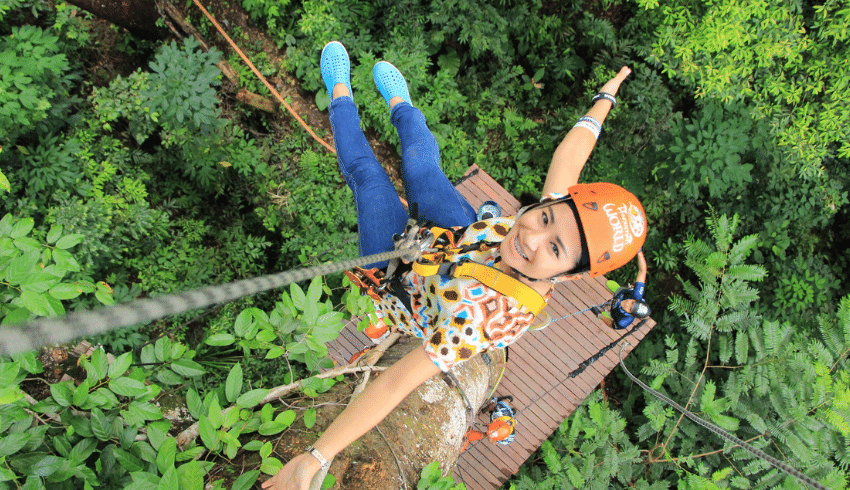
Other ways to help anxious children include:
- Looking at images or the website of your destination
- Arranging a pre-visit with a caregiver, if possible
- Giving pupils the chance to discuss any worries with a key person in school
Read more advice from PAC-UK about reducing trip trauma .
Another important aspect of preparing children for a trip is making sure that they already have a basic knowledge of the topic you’re looking to focus on.
Teacher Sylvia Holland says that many school trip venues “have a plethora of resources available online that are designed to support learning in the classroom, for use either prior to or after your visit.
“Use videos to set the scene and excite pupils ahead of their trip or use worksheets to help with follow-up lesson planning and allow them to apply new-found skills.”
Make time for reflection
Making the most of a school trip isn’t just about ensuring its smooth running on the day – the point, after all, is for the visit to have a measurable positive benefit on students’ learning when they return to the classroom.
As such, it’s equally important to give due consideration to how you plan to continue the learning – in some cases post-visit resources may be available to help you – and to reflect, in partnership with students, on the experience: evaluate its effectiveness in terms of improving educational outcomes, and learn lessons for next time.
Whether you’re looking for help planning a primary school trip, a secondary school trip, a free school trip or just something a little out-of-the-ordinary, we’ve got you covered with this mega list of school trip ideas!
JUMP TO A SECTION:
Pgl school trips, school trips in london.
- Science trips
Animal attractions
- New York City
- History trips
Theme parks and attractions
- Theatre and drama trips
- Outdoor activity day trips
Residential trips for schools
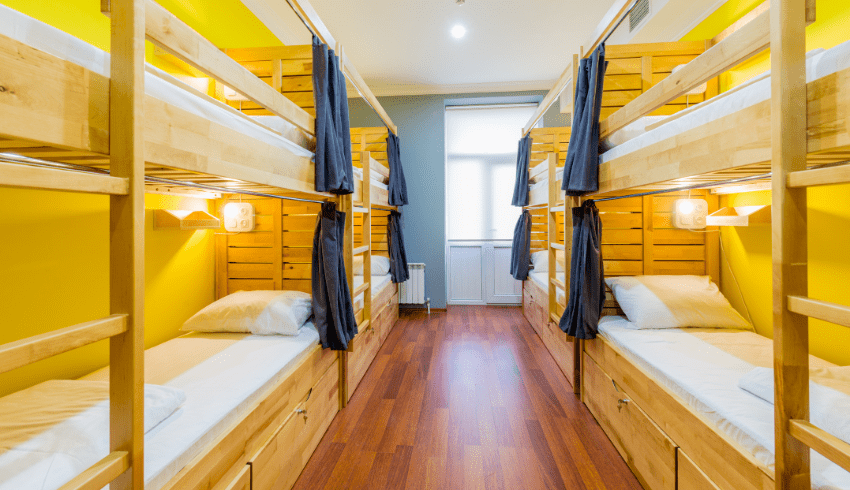
Manor House & Ashbury Hotels
The Manor House & Ashbury Hotels , in the heart of Devon, offer a fantastic choice of over 50 sport, craft, leisure and spa activities.
A dedicated schools coordinator can create a bespoke programme to meet your group’s individual requirements, plus all equipment and use of its fantastic facilities is included in the price.
All sessions are delivered by experienced tutors with a child-led approach. With workshops, accommodation, full-board dining and generous group discounts you’re guaranteed a great value break that ticks every box.
Rock UK has been working with schools for nearly 100 years. Its four nationwide activity centres offer tailor-made programmes of challenging activities to build resilience, confidence and independence – you can choose from over 40 instructed activities, from watersports to abseiling, bush craft to archery and much more.
All centres hold the LOtC quality badge, testament to the company’s high standards for safety, activity provision and learning outcomes.
Bursary places are available for children who would otherwise be left behind.
Ringsfield Hall
Ringsfield Hall is an innovative centre for outdoor learning and nature connection, with 14.5 acres of woods, meadow and a homely Victorian house.
On offer are crafted forest school and earth education programmes, infused with imagination, drama and magic, all delivered by experienced practitioners with a child-led and eco-therapeutic approach.
You can opt for a day visit or residentials, with facilities including an art barn, music studio and sports pitches.
Other highlights include farm animals, fantastic home-cooked food and the freedom to explore!
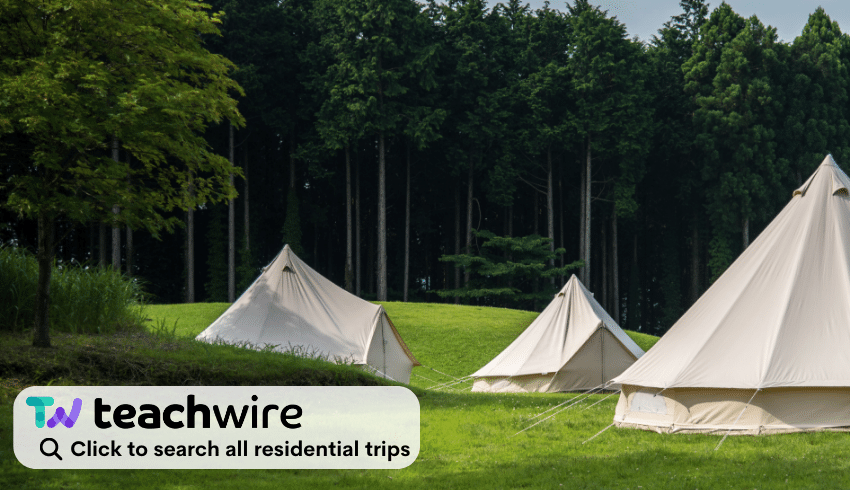
Go Wild Adventures
Bring your students out of the classroom and immerse them in the great outdoors at Go Wild Adventures .
Go Wild’s philosophy is that great things can happen in young people’s lives when their horizons are widened, and its team will work to help you achieve this.
Pupils are invited to embrace living under canvas and inspired to explore the world around them.
With campfires, woodlands, fields and an on-site field study classroom on offer, Go Wild can help you put together a package to suit your specific needs.
Cumulus Outdoors
Cumulus offers action-packed residential programmes on the stunning Jurassic coast in Dorset, tailored to your requirements and fully supported by a team who will guide you every step of the way.
You can choose either the exclusive Tented Village option for an authentic outdoor experience – featuring 24/7 pastoral care, spacious tents, a large communal tipi and dedicated teachers area – or the Residential Centre for dormitory accommodation, plus dedicated teacher and classroom facilities.
Programmes can include coasteering, a visit to a waterpark, a mud run, kayaking, mackerel fishing, rock climbing and abseiling, and more.
YHA School Trips
Whatever your subject and whatever your desired learning objectives, when you choose YHA School Trips you can be assured of a safe, fulfilling and unforgettable residential that will stay with your pupils long after their coach journey home.
What’s more, as a leading youth charity, YHA believes that every child should have the same chance to discover, explore and grow – to that end it creates unique opportunities for young people from all backgrounds to experience amazing places, share extraordinary journeys and take a different path through life.
TYF has been running for over 30 years, delivering adventure residential school trips for schools. Pupils are taken out of the confines of the classroom and immersed in adventurous and experiential learning in the natural world.
Its core activities are coasteering (which it pioneered in 1986), surfing, climbing and abseiling, and kayaking.
The programmes link adventure and problem solving, helping pupils to find meaning and inspiration whilst building the ‘backpack skills’ for a lifetime of adventurous play.
Mill on the Brue
Mill on the Brue Outdoor Activity Centre boasts over 40 activities in the idyllic river valley in Bruton, Somerset.
Each programme is individually written in consultation with the party leader, who can choose activities based around team-building, problem-solving, high energy or just plain fun, with experienced and qualified instructors who stay with the group throughout the week.
Food is also an important part of the trip, with child-friendly meals and all diets catered for.
Children are taught about the environment and teamwork, and gain a comprehension of healthy living and life skills.
The School Journey Association
The School Journey Association’ s activity school trips are suitable for all age groups and are a fantastic way to motivate pupils, whilst teaching them independence, self-belief and many other important life skills.
They offer both day and residential school trips to accredited activity centres throughout the UK and France, as well as visits to Belgium and Spain.
NST has been creating tours that inspire and educate children for more than 50 years. It chooses its destinations with school groups in mind. Safe, secure accommodation options and a range of engaging visits provide an ideal introduction to the world outside the classroom.
It’s the travel company of choice for over 35,000 group leaders, and NST is committed to doing its absolute best to provide schools with the experience and support they need to create school trips pupils will remember long after they return to the classroom.
Dunfield House
A proud LOtC-accredited provider, Dunfield House offers an outstanding residential experience – a place to call home where students can improve their confidence, resilience, wellbeing and life skills.
Its friendly team offer a personal service, with 24/7 onsite managers, three-star accommodation and healthy, wholesome meals with unlimited refreshments and biscuits.
Varied lesson plans, developed by teachers, are available for self-directed learning.
Dunfield caters for groups of 30–95, offering sole use of the house and/or stables accommodation.
Most importantly, it offers a sanctuary where young people develop their true potential, taking memories and new skills back to the classroom.
The Outward Bound Trust
As an educational charity, the Outward Bound Trust ’s mission is to make its residential programmes available to as many young people as possible.
With the philosophy that money shouldn’t stand in the way of opportunity and that everyone can achieve more than they think they can, it raises funds thanks to the generosity of donors, its fundraising events and early careers development programmes.
The trust puts this towards appropriate funding for schools, colleges and youth groups.
UKSA specialises in introducing people of all ages to the great outdoors through watersports and sailing.
Its water-based activities are a great way to build confidence, teamwork and resilience. On offer are a variety of disciplines, from dinghy sailing and kayaking, to windsurfing and standup paddleboarding.
Team building and multi-activity programmes are also available. UKSA’s 3.5-acre fully residential campus is based in Cowes, Isle of Wight – just a short hop over from Southampton, Portsmouth or Lymington.
There are regular complementary preview weekends for anyone who wishes to experience what’s on offer, first hand.
YMCA Lakeside
YMCA Lakeside is one of the largest and most scenic outdoor education centres in the UK. Set on the shores of Lake Windermere, this iconic centre has been hosting school residentials and transforming young lives for over 70 years.
Its state-of-the-art schools facility, opened in 2019, created an additional 200 beds and more opportunities to provide outstanding learning outside the classroom activities.
Belchamps Scout Activity Centre
If you’re looking for something different for your next educational venture outside the school grounds, try this activity centre set amid 30 acres of camping fields in the Essex countryside.
The site includes a choice of five indoor accommodations and two tented villages with a cooking hut, and a range of different experiences to try.
Available activities include abseiling, bridge building, bushcraft days (which involve fire lighting and shelter building) and indoor/outdoor climbing, among many others.
Essex Outdoors
Essex Outdoors is situated across four stunning locations in Essex, ideally located to provide an outstanding school trips experience.
Whether you’re looking for a residential stay or a day trip, its fully trained and dedicated staff will ensure that your students develop lifelong memories.
With over 40 different activities on offer – from archery to crabbing, quad bikes to zip wires – there’s certain to be something that will engage and inspire your pupils.
The wide range of accommodation options, including residential blocks, pods, cabins and tents, means you will be able to plan a trip that’s exactly what you’re looking for.
Active Escape
Active Escape is based in stunning North Devon and provides a variety of stimulating and unique experiences, including coasteering, stand-up paddleboarding, rafting, party SUPs and its very own ‘Adventure Challenge’.
All of the activities on offer encourage team-building, boost self-confidence and fulfill a number of educational purposes too.
You can choose to spend half a day with Active Escape or a whole week, thanks to a campsite equipped with bell tents for your students.
Conway Centres
With four locations across north Wales and Cheshire, Conway Centres are the perfect location for schools to come together and make life-long memories.
Conway Centres combines real-life outdoor adventure with unique creative and performing arts activities, which increase achievement and inspire individuals.
Whether children and young people are canoeing on the private dock in Anglesey (with the stunning Snowdonia mountain range as a backdrop), taking centre stage in the outdoor woodland theatre or exploring all that Delamere forest has to offer, there’s something to inspire everyone at Conway Centres.
Brathay Trust
Situated in the stunning Lake District National Park, Brathay Hall is home to Brathay Trust . Each year the site hosts hundreds of young people on immersive, memorable and life-changing residential programmes that promote resilience, leadership and wellbeing.
A Brathay residential programme offers a powerful learning experience in an inspiring location, using outdoor activities and a creative approach to enable a wide range of outcomes to be achieved.
As the director of services at Aspired Futures put it, “The changes we saw in young people on the residential would take us a year to achieve in our community setting.”
Epic Outdoors
Epic Outdoors is an adventure activities licensing service and Duke of Edinburgh approved adventure provider specialising in developing personal and group skills through multi activity programmes.
It currently delivers activities in the Lake District, North Wales and the Peak District – everything from gorge walking, canoe and climbing to mindfulness, wild camping and traditional storytelling – to over 2,500 young people each year.
Schools receive full support, from pre-visits for staff, students and parents to curriculum blending and post residential review trips – and most importantly, genuine adventures built around learning outcomes.
A Kingswood adventure brings out the potential in every child. With award-winning programmes focused on building confidence, boosting resilience and developing key life skills, your class will enjoy a breath of fresh air, a taste of independence and make memories to last a lifetime.
Choose from 11 adventure centres across the UK, where the Kingswood team will deliver activities from abseiling to zip wires, while providing learning outcomes and so much more.
Introduced in 2022, the new unique Confidence Tracker also helps you to measure and demonstrate the outcome of your trip.
Plus, you’ll be able to explore pre- and post-trip activities from Kingswood’s partners, Enrich Education, to help extend the value of your trip.
Oaker Wood Leisure
Oaker Wood Leisure Adventure Centre in Herefordshire specialises in school activity residentials for groups of up to 120 students.
Accommodation comes in the form of wooden ‘glamping’ pods based in glamping villages for the exclusive use of each school group, complete with campfire, barbecue hut, kitchen and dining facilities, showers and toilets.
On-site activities include team-building, high ropes, a zip wire, quick jump, paintball, raft-building, quad trekking and more.
You can book residentials for between one and four nights. Day trips and in-school team-building days also available.
Llain Activity Centre
Llain Activity Centre is a short drive from New Quay, West Wales and a short walk to the secluded Cei Bach beach.
The nine-acre former farm is packed with various accommodation options, a one-and-a-half-acre lake and a one-acre mud assault course as well as a climbing tower, high ropes and zip line.
Having specialised in residential school trips for over 20 years, the centre prides itself on its pre-visit communication and parent presentations.
Scout Adventures
With over 100 years’ experience in character education, Scout Adventures has helped thousands of young people enjoy a range of adventure activities while learning new skills and becoming active citizens of the future.
At Scout Adventures it’s all about helping young people to reach their potential – understanding that learning away can have a powerful, positive impact on young people’s academic achievement.
With its expertise in informal outdoor learning, and world famous Scouting heritage and values, Scout Adventures has inspired generations of young people to reach their potential and learn skills for life.
It also provides free resources to schools.
Calvert Trust Exmoor
Calvert Trust Exmoor offers a unique opportunity for students of any age and any disability to experience exciting, challenging and enjoyable adventure activities in a safe, accessible environment.
On a residential break, children can overcome challenges, build confidence and enrich their lives through improved self-esteem and a sense of achievement.
The Trust also promotes physical activity, helps with social interaction and gives pupils and staff a shared point of reference that can aid engagement when back in the classroom.
It works with numerous UK educational establishments, both specialist and mainstream, and can tailor breaks to meet your needs.
PGL has been successfully delivering high-quality learning experiences for 65 years, amassing a wealth of experience within outdoor education.
As the largest outdoor learning provider in the UK, over 350,000 young people benefit from a PGL trip each year.
With 15 centres across the UK, most schools are no more than two hours away from their next PGL adventure. There are also four centres in France and a ski programme in Europe.
Residential school trips offer unforgettable experiences at the well-equipped adventure centres and with PGL, you get round-the-clock support from experienced instructors and a dedicated member of staff to look after you and your group during your stay.
BACK TO TRIP IDEAS MENU

SEA LIFE London
Inspirational for all ages, SEA LIFE London offers pupils the opportunity to explore the creatures that live in our rivers and oceans.
They will walk in awe through Pacific Ocean tunnels, tropical rainforests and an Antarctic penguin point.
Younger children’s curiosity will be piqued as they become top rock pool explorers while older students can observe, first hand, ecosystems, environmental changes, evolution and marine conservation.
Pupils will learn about the different oceans around the world, explore creature characteristics and differences in their adaptations to survive, and compare and contrast the life stages of mammals, amphibians, insects and birds.
Tour for Muggles
Show your students the magical side of London with this award-winning Harry Potter tour . This is a really engaging way for students to delve into the Harry Potter series while learning about London’s rich history.
The Tour for Muggles team have worked with many school groups and their excellent guides will make it a memorable experience for you all.
The team reserves the best prices for school groups. Teachers can attend for free. Multi-award winner of the TripAdvisor Award of Excellence and Scoot Awards, this tour is truly Potterific!
Imperial War Museum London
IWM London tells the story of conflict from 1914 to the present day. School groups can choose to take part in one of IWM’s learning sessions with an expert educator, or opt to explore the museum on a self-guided visit. The Documentary Challenge gives students the chance to explore IWM’s galleries, find objects and tell the stories the world needs to hear by making short documentaries.
We Were There sessions provide a unique opportunity to meet veterans who have all experienced conflict first-hand.
Holocaust Learning sessions support students as they learn about one of the most difficult subjects in history. New technology guides pupils through IWM’s Holocaust Galleries, critically considering why the Holocaust happened, why we study it, and what it means in our world today.

Jewish Museum
At Jewish Museum London , students will learn about the history of Judaism and the culture of the Jewish community here in Britain.
All workshops are interactive and, depending on what you have planned, students might handle precious objects with important and personal stories, watch films, listen to stories and sound clips, or participate in craft activities. The museum also provides the opportunity for students to hear from a Holocaust survivor speaker who will tell their personal story.
The Living Communities gallery offers a space for craft activities and group work. Students may even get the chance to practise calligraphy skills and learn some Hebrew.
Asking questions is an important part of your visit – The Jewish Museum London offers a safe space to ask anything about Judaism or Jewish people that you ever wanted to know.
KidZania London
Visit KidZania London in Westfield, Shepherd’s Bush and your pupils will experience experiential learning at its best. KidZania is the indoor city for kids with endless, exciting, real-life career activities.
The range of activities available is designed to link back to the curriculum across PSHE, literacy and STEM.
KidZania also runs unique educational events throughout the year to bring careers learning to life. These include Parliament Week, STEM Week and its Careers Fair.
The Postal Museum
The Postal Museum explores how the post has changed the way we live. Interactive sessions explore communication stories across the curriculum for all key stages. Meanwhile, its exhibition galleries are jam-packed with intriguing objects charting 500 years of social history.
Pupils can hop aboard Mail Rail, travelling on a tiny train through the tunnels of London’s hidden postal railway and testing their engineering ingenuity in the original train depot.
Younger visitors can learn through play in Sorted! and have sack loads of fun delivering the post in the mini mail town.
Lee Valley Regional Park
Help your class to experience a range of outdoor adventure activities with a trip to a 10,000 acre classroom in Lee Valley Regional Park , spanning London, Essex and Hertfordshire.
The learning service provides real-word experience of topics on the KS1 and KS2 curriculum. Immerse pupils in the history of the Stone Age, help them discover the natural world, or teach mindfulness practices in the outdoors.
Looking for something more? The forest school activity programme is available in six-week blocks for children to develop physical and social skills. In-school programmes are also available.
Science trips for schools

Brooklands Museum
Brooklands Museum is a 32-acre site steeped in history and linked with world-famous achievements.
Its collections of historic cars, aircraft, motorcycles, bicycles and artefacts tell fascinating and inspirational stories.
From its creation in 1907, through two World Wars and for most of the 20th century, Brooklands was a centre for breaking speed records, motor racing and advances in science and technology. Thousands of aircraft were tested and flown.
Today, students can:
- sit inside real aircraft
- drive a Formula 1 simulator around Brooklands race track
- design their own aircraft
- step on board a real Concorde
Magna Science Adventure Centre
Magna Science Adventure Centre is a hands-on experience with interactive exhibits and fascinating displays.
Pupils can explore the wonders of science, technology and industrial history in four pavilions: Fire, Water, Earth and Air.
These are crammed with over 100 exciting activities. Invite your group to discover the amazing nature of water, operate real diggers, witness a fire tornado and even explode a rock face.
There’s also a chance to discover South Yorkshire & North East England’s steel-making heritage in ‘The Big Melt’ experience. This is a thunderous pyrotechnic show.
Kent Wildlife Trust
Kent Wildlife Trust is the leading wildlife charity in Kent. Its aim is to bring people closer to nature and ensure wildlife is protected and restored in the future.
Activities enable young people to connect with nature and learn outside the classroom.
Learners will explore different habitats, learn new skills and have fun while meeting curriculum objectives.
Expert tutors are on hand to deliver a wide range of interactive sessions at sites across Kent. These range from pond dipping to forest school programmes.
Staff are committed to ensuring high quality provision and have been awarded the Learning Outside the Classroom quality badge.

The Young People’s Trust for the Environment (YPTE) is a charity set up to support children’s understanding of the natural world.
Working with young people, schools and parents, it aims to give children a real awareness of environmental issues. These include:
- climate change
- deforestation
- the plight of endangered flora and fauna
Your pupils need to know all of the facts in order to make their own decisions about how they want to shape their world for the future. The YPTE helps to equip them with the knowledge they need.
The Field Studies Council
The Field Studies Council (FSC) is the UK’s leading charity sector provider of outdoor environmental education.
Much of its work is based at one of its 17 field centres. These have an international reputation for high standards of primary school, secondary school and university teaching by expert staff and associated facilities.
A broad range of courses are available, from fieldwork residentials and adventure school trips to one-day experiences. These Field Studies Council courses immerse pupils in the natural world, taking in its sights, sounds and smells by bringing subjects to life in the outdoor classroom.
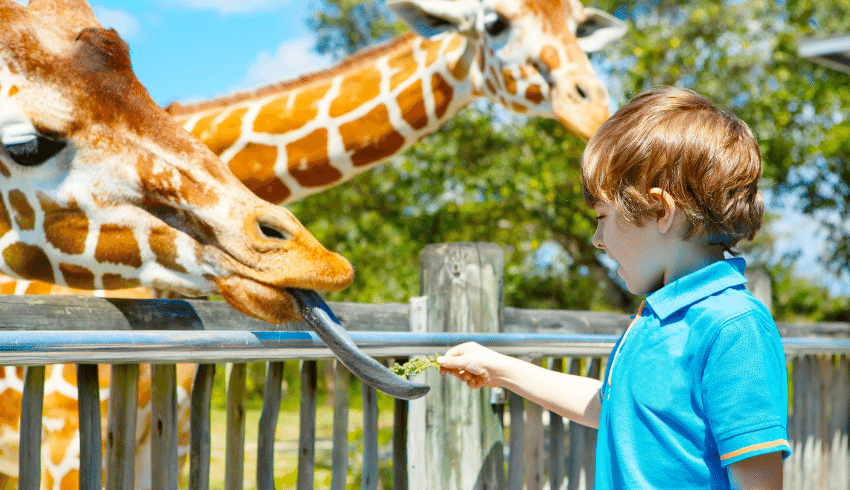
Godstone Farm
Godstone Farm opened its doors 40 years ago as an educational attraction for school children. Over the years it has developed into the farm countless visitors enjoy today.
Its schools programme has been designed to complement the statutory framework for the Early Years Foundation Stages and both the KS1 and 2 programmes of study, mixing in a whole heap of fun.
Children with SEND are welcomed, with semi-structured visits on offer.
Stratford-upon-Avon Butterfly Farm
A visit to Stratford-upon-Avon Butterfly Farm offers an excellent opportunity for children of all ages and abilities to become jungle explorers and learn about rainforest environments. They can also learn about the life cycle of a butterfly, and Mayans KS2 topics.
KS1 and 2 curriculum subjects are covered, with all tours tailored to meet your group’s needs.
Tours include an introductory talk and a ‘Meet the Mini-Beast’ handling session.
With plenty of hands-on, close observation and activity, this is an immersive and educational day out for your class.
Cotswold Wildlife Park & Gardens
From art to geography, science to literacy, whether you want an educational talk for your pupils or are just coming for a visit, Cotswold Wildlife Park has plenty to offer.
Home to over 260 different animal species, and comprising 120 acres of stunning gardens and parkland, it is the perfect place to bring the National Curriculum to life.
Your pupils can get eye to eye with giraffes, watch rhinos graze on the manor house lawns, walk with lemurs, take a ride on Bella the train or explore the adventure playground.
Free coach parking is available.
West Midland Safari Park
Located in Worcestershire, West Midland Safari Park has been welcoming educational groups for over 40 years. And with over 140 species of amazing animals on show, pupils can immerse themselves in a truly unique learning environment.
In 2017 the park’s purpose-built Safari Academy opened. This is a sustainable, state-of-the-art education centre, dedicated to providing learning opportunities for all ages.
A variety of educational sessions are on offer to complement the curriculum. These are delivered by an experienced education team who aim to inspire a future generation of conservationists.
Monkey World
Whether your pupils are learning about primate rescue work, the impact of deforestation or how woolly monkey use their tails, Monkey World ’s experienced education team can enhance your trip and support learning in the classroom.
As well as curriculum-linked sessions and workbooks, Monkey World offers visitors the chance to see over 250 monkeys and apes. This includes the largest group of chimpanzees outside of Africa, Europe’s only orangutan crèche and a breeding group of woolly monkeys – all in one day!
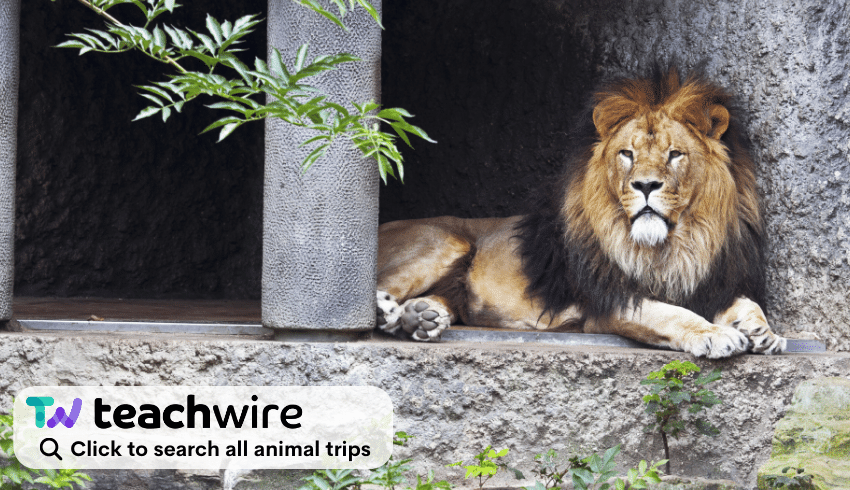
Amazona Zoo
Amazona Zoo in Cromer, Norfolk, is home to over 200 animals from tropical South America. These include:
The zoo features a 30-foot yurt for viewing educational films and other learning activities; an expansive outdoor play area, Rainforest Springs, with two large jumping pillows; and a spacious, well-equipped indoor play area, Jungle Tumbles.
There are opportunities for visitors to see the animals being fed, meet the zookeepers and learn about the history of South America and the rainforest.
Longleat is home to a wide range of attractions, so can easily tie in with a variety of topics, act as a case study, or be the inspirational starting point to a project.
Science and history have intrinsically strong connections but Longleat also presents wonderful opportunities for subjects such as English, maths, art and design. These can be given a real-life context.
There’s a huge selection of workshops and resources, for EYFS through to KS4+. Longleat is committed to continuously improving through expanding their variety of activities on offer.
Colchester Zoo
Colchester Zoo has an award-winning education programme and offers free sessions to support many subjects across the curriculum.
As well as covering traditional science and geography concepts such as adaptations and conservation, it also extends to English debating skills, art, maths and wildlife forensics. These support curriculum areas not traditionally associated with a zoo visit.
Schools looking for a general zoo visit are also very welcome to attend and use any of the zoo’s free online resources to focus self-guided or group learning.
Paignton Zoo
Paignton Zoo in Devon features 2,500 animals across 80 acres of natural habitat.
It has a comprehensive education offering to tempt schools. Primary students can access a range of interactive, curriculum-linked workshops. These take place in themed classrooms containing a host of artefacts and specimens.
Options include Evolution, Endangered animals and conservation, and habitats and adaptations. Qualified teaching staff will deliver these.
The team can also help visiting teachers to develop an itinerary for their visit. This can span a wide range of subjects, including maths, art, English, geography, and more.
The Deep is home to 3,500 fish and welcomes over 30,000 students every year to its purpose-built Learning Centre.
Start your amazing aquarium experience with the breath-taking coral reef in the Lagoon and some impressively large sharks in Endless Ocean. Or take a look at the creatures of the Amazon in the Flooded Forest.
A team of experienced in-house teachers deliver workshops, presentations and hands-on activities to school groups. They cover a wide selection of topics, including:
- citizenship
- customer care
- travel and tourism.
Flamingo Land Resort
Flamingo Land in North Yorkshire offers a great day out for school students. Your group will be able to enjoy the thrills of amazing theme park rides and explore an award-winning animal collection.
They can tour the zoo and attend keeper talks. These provide fascinating information about a variety of animals, including:
- Sumatran tigers
- African lions
- Black and white rhinoceroses
Business studies students can also take the opportunity to learn how a major leisure attraction operates, with information on a range of topics covering HR, customer services, finance and marketing.
National Marine Aquarium
The National Marine Aquarium is the largest public aquarium in the UK. It offers an amazing aquarium experience for more than 300,000 visitors per year (including 30,000 school students).
Its range of exhibits features marine animals from near and far. There are zones dedicated to the Atlantic Ocean, the Great Barrier Reef and Plymouth Sound.
Of particular interest will be JustAddH2O, the aquarium’s award-winning Learning Space. Its dedicated Discovery & Learning team operate in partnership with other education experts to provide a continuously developing programme that supports all teachers, from Foundation Stage to university and beyond.
Wingham Wildlife Park
There’s not an animal-based education destination in Kent that can offer more variety than Wingham Wildlife Park . At the park you’ll find:
- Over 170 species
- 190 talk topics. This includes everything from individual species to recycling, palm oil, dinosaurs, reptiles, invertebrates, nocturnal animals, birds and much more
- Pre-designed itineraries
- An outdoor play area
- Free lunch lockers
- Plenty of picnic areas (both open and under cover)
London & Whipsnade Zoos
If you’re looking to take your students on an inspirational school trip, look no further than ZSL’s two fantastic zoos .
London Zoo is the world’s oldest scientific zoo, home to over 650 species of animals. On the other hand, Whipsnade Zoo is the UK’s largest zoo. It’s set in 600 acres of beautiful scenery with some of the largest, rarest and most majestic animals alive.
Schools receive fantastic discounts for self-guided entry and educational sessions. You can choose from a range of curriculum-linked sessions, delivering a unique interactive learning experience. You can book these as part of your education visit.
A visit to either zoo is ideal for children of all ages, from Foundation through Key Stage 1, 2, 3 and 4.

The National Holocaust Centre and Museum
The National Holocaust Centre and Museum delivers educational programmes using digital technology, survivor testimonies, hate crime specialists and artefacts to challenge prejudice.
The MAD (Mechanical Art & Design) Museum
This venue displays over 60 motorised pieces of automata and kinetic art. These have all been handcrafted by outside-the-box thinkers and inventors from across the globe.
The museum encourages students to interact with and witness a diverse range of engineering and physics principles as well as clever design elements. The museum offers:
- hands-on learning
- discounted tickets
- support materials for teachers
- sketching and photography sessions
- KS3 activities and automata construction kits
Groups usually spend two hours experiencing everything on offer.
The National Football Museum
The National Football Museum teaches much more than just a game. Its fun and inspiring programme uses unique objects and amazing stories to enthuse and engage school students, employing football to bring the curriculum to life.
Pupils will journey back through time and chart the game’s development and place in society across the generations; score points with the museum’s approach to maths; get creative with words in poetry and commentary workshops; and get hands-on with real football artefacts in science and design sessions.

De Havilland Aircraft Museum
Your pupils can experience fun and engaging workshops at the UK’s oldest aviation museum , dedicated to the preservation of the de Havilland heritage.
They can get close up and inside many of the exhibits and aircraft, and enjoy bespoke workshops. You can tailor these to your topic, with many cross-curricular elements as well as opportunities to practise soft skills such as:
- critical thinking
- following instructions
British Motor Museum
The British Motor Museum offers a range of interactive museum walks, hands-on workshops and self-led activities that allow pupils to experience the sights, sounds and stories of the British motor industry. This is all while engaging in a fun learning programme linked to the National Curriculum.
There’s a coach drop-off point outside the museum entrance, accessible toilets and dedicated learning spaces, including a lunch area.
International tours

Halsbury Travel
Founded by former teachers, Halsbury Travel specialises in tailor-made tours for schools designed to inspire.
Its philosophy is that education should be an exciting adventure. And, as such, it offers some incredible activities that students will never forget.
You can walk on glaciers in Iceland, hike up volcanoes in Naples and Costa Rica, and explore the vastness of the Grand Canyon. There’s so many school trip destinations on offer.
You can travel to any number of far-flung destinations. These include India, Sri Lanka, Vietnam and China. Here your students will experience exotic landscapes and ancient, rich cultures.

Galina International Study Tours
Established in 1989, Galina is an independent, family-run tour operator providing curriculum-relevant primary and secondary school trips to destinations in the UK and Europe.
You can tailor the tours to cover your students’ specific learning objectives. Get in touch with a member of the team to discuss your requirements and start planning a school trip adventure.
WorldStrides
With WorldStrides you can experience the natural wonder of Iceland with your students, and use Geography Association-approved materials linked to the GCSE curriculum.
Begin in Reykjavik, then spend four days exploring the land of fire and ice – from explosive geysers and giant volcanoes, to glaciers and magnificent waterfalls.
Travel to Vik and the South Coast and then on to Gullfoss before enjoying a relaxing soak in the Blue Lagoon.
The team vets every hotel and restaurant to ensure it meets your expectations. And WorldStrides will work with you every step of the way to make your experience a smooth one.
School trips to New York City
European study tours.
European Study Tours is a leading educational tour operator trusted by teachers to organise educational tours and experiences since 1982.
Catering for destinations all around the world, European Study Tours also holds curriculum-focused conference events in New York. The LIVE! conferences bring students together with high-calibre industry professionals to provide subject insight and inspiration that can’t be found in text books or the classroom.
Art & Design LIVE! and Business LIVE! are held at the iconic MOMA museum, where students can hear first-hand accounts and exclusive insights from leading industry specialists. Q&A sessions give students the opportunity to put their questions to the experts. Then finish the day with a trip to Top of the Rock to see the city sparkle at night.
History school trips

Historic Royal Palaces
With 1,000 years of history to uncover, a visit to some of the country’s most iconic historic palaces offers pupils the unique opportunity to immerse themselves in history where it happened.
Children can take part in interactive sessions led by expert, costumed presenters, including: Tudor kitchens revealed at Hampton Court Palace; crime and punishment at the Tower of London; Queen Victoria’s toys at Kensington Palace; and the roles of servants uncovered at Hillsborough Castle and Gardens.
And for those wanting a self-led visit, activity trails linked to the national curriculum allow teachers to shape a visit to suit their students’ needs.
King Richard III Visitor Centre
Head to Leicester and you can discover the incredible story of a king’s life and death, and explore one of the greatest archaeological detective stories ever told.
Great for educational visits, the King Richard III Visitor Centre stands on the site where Richard III’s remains were buried for over 500 years.
A complementary learning programme is available for teachers. This provides different options for schools and educational organisations planning a visit to the centre. This includes a range of workshops for both history and science.
Warwick Castle
Warwick Castle has played a prominent role in English history for over 1,100 years. Today, schools can explore its Medieval towers and ramparts; roam grounds designed by famous landscaper Capability Brown; and marvel at the great hall and state rooms with their Tudor influences.
They can also be awed by the daily shows that can include an archery demonstration, a working trebuchet and a brand new bird of prey show, ‘The Falconer’s Quest’.
In addition, there is a plethora of curriculum-linked workshops that you can book to bring history vividly to life.

English Heritage
Whether you choose an expert-led tour at Kenilworth Castle; an interactive Discovery Visit at Battle of Hastings Abbey and Battlefield; or explore the rich history of sites such as Dover Castle, Carlisle Castle or Stonehenge, English Heritage school trips are guaranteed to bring learning to life.
You can also download free resources from the English Heritage website. A team of qualified teachers, educational experts and historians have developed these, in partnership with AQA and OCR.
Tonbridge Castle
Tonbridge Castle educational tours and workshops immerse students in the turbulent and fascinating history of this long-standing gatehouse. It offers a fun, informative and hands-on way to learn about the past.
Visiting pupils will experience a vivid recreation of the sights, sounds and excitement of the castle in the 13th century. This includes:
- a visit to the basement store and the armoury
- joining the garrison for supper
- climbing to the top of the battlements.
Arundel Castle
Arundel Castle provides fantastic opportunities for educational visits. Roger de Montgomery, Earl of Arundel, founded the castle at the end of the 11th century. Today it’s the family home of the 18th Duke of Norfolk.
Its colourful, near-1,000-year history lends itself to many aspects of the national curriculum, whether your group is in Key Stage 1, 2 or 3.
Staff have developed the Arundel Castle Educational Programme to help students with their study in an informative, enjoyable and memorable way.
At Beamish , students can engage in a real-life setting and, by asking real people, gain a deeper understanding than that offered by a textbook.
Its active learning experiences encompass investigation of both facts about the past and also attitudes.
Students must think critically, weigh evidence, make informed decisions and develop perspective in activities such as:
- Medicine Through Time
- Joe the Quilter Murder
- Suffragettes on the High Street
- Mayday Mayday
They must stand up and make their opinions known, argue, analyse and act out becoming informed, independent investigators.

Thorpe Park
Thorpe Park Resort Theme Park welcomes schools from all over the country for a school trip like no other.
At Thorpe Park you’ll find a full day’s worth of thrilling rides and attractions for students and teachers.
To make booking a trip as easy as possible, there’s a variety of resources on the resort’s website for download. These include checklists, risk assessments, permission slips and lesson plans.
The park also has a dedicated school team to help you every step of the way.
Cadbury World
With more than 30 years’ experience and more than 2,000 school groups attending each year, Cadbury World offers unique educational school trips that provide a fascinating insight into the nation’s favourite chocolate brand.
There’s an assortment of interactive chocolatey zones to explore and a variety of informative curriculum-linked talks and workshops. These include Marketing, Investigating Business and Geography.
The one-hour talks and workshops complement your group’s day out perfectly, expanding pupils’ knowledge on a huge range of topics. Self-guided tours are also available.
All of this makes Cadbury World the perfect destination for school trips.
Flambards Theme Park
Flambards Theme Park can be found in Helston, Cornwall. It combines a wide range of rides with indoor recreations of different historical eras. These include educational experiences aimed specifically at schools.
The latter include a life-size Victorian village featuring 50 explorable locations. There’s also a ‘Britain in the Blitz’ attraction. Schools can book ‘living history characters’ to help bring these to life, for example, an Air Raid Patrol warden.
Meanwhile your thrillseekers will enjoy the Skyraker and experience up to 3G with the giant white-knuckle experience that is ‘Sky-force’.

LEGOLAND® Windsor Resort
LEGO’s resort is an exciting venue for learning outside the classroom and most suitable for Key Stage 1 to Key Stage 4 pupils. There are also experiences available for preschool and younger school pupils.
Schools can use a National Curriculum Map to navigate their way around the resort. This ensures that it’s a simple matter to tie in all of your learning objectives whilst students enjoy the over 55 rides and attractions.
Alton Towers
The Alton Towers Resort Theme Park welcomes schools from all over the country.
Alton Towers Education has a dedicated schools team to help you every step of the way. This is from booking your trip to delivering memorable educational experiences.
There are even special Teacher VIP days that allow you to meet the team and explore what Alton Towers Resort has to offer your school.
Chessington W o rld of Adventures
Schools visiting the Chessington World of Adventures Resort can expect a truly wild adventure.
Students can enjoy expeditions around its zoo in ‘walkshops’, or embark on fact-finding missions to learn all about Chessington’s four new resident endangered Amur Tigers, who live in ‘Land of the Tiger’.
The fantastic Wild Learning Centre has five immersively themed zones. It’s sure to give your pupils their wildest lesson yet!
Paultons Park
Set within 140 acres of parkland on the edge of the New Forest, Paultons Park is a family theme park with an extensive educational offering.
School groups can take advantage of a range of interactive workshops (suitable for Key Stages 1 to 4) in Professor Blast’s lab. This is focused on topics such as rollercoaster physics, dinosaurs, animal encounters and even theme park marketing.
Teachers can apply for free tickets, to see what’s on offer in advance.
There are more than 70 rides to enjoy too, plus go karts and even some moving dinosaurs…
Theatre and drama school trips

Ambassador Theatre Group
ATG’s Creative Learning and Community Partnerships provide dynamic cultural education. It works with top West End professionals to encourage creative thinking, problem solving, resilience and the ability to find solutions via engaging bespoke workshops. These include acting, singing, stage combat, technical theatre and more.
Whether your trip is part of the curriculum or a well-earned treat, the workshops are grounded in subject knowledge and understanding. Pupils’ creative capacity will be nurtured and their personal, social and academic development greatly enriched.
Frozen the Musical
Escape into the wonder-filled world of Arendelle to experience stories of love, hope and self-discovery. This is all delivered with groundbreaking set design and special effects, exquisite costumes and sensational stagecraft from the producers of The Lion King and Aladdin.
Frozen is brought to the stage by a multi-award-winning creative team. This is led by Tony® and Olivier Award-winning director Michael Grandage, with a book from Academy® and BAFTA Award-winning Jennifer Lee. The show features the cherished songs from the original film, alongside a brand-new score from Kristen Anderson-Lopez and Robert Lopez. These are the Grammy® and Academy Award®-winning songwriters behind the global phenomenon ‘Let It Go’.
M&M Theatrical Productions
M&M Theatrical Productions ’ enchanting Classic Literature Adaptations are presented in an easily digestible and interactive format, creating an inspiring way to promote reading for pleasure and to learn about the past, while engaging the children in tales involving characters from many different social and cultural backgrounds.
These productions are followed by a Stagecraft workshop – an exciting way to further enhance the experience of the visit by offering older children a practical and unique view behind the scenes of the production they have just enjoyed, broadening their knowledge of the arts in combination with STEM subjects.
The Birmingham Stage Company
The Birmingham Stage Company is one of the world’s top companies creating theatre for children. Its award-winning productions tour the UK and internationally, most recently performing on Broadway, selling out the Sydney Opera House and regularly triumphing in London’s West End.
They work with Britain’s top children’s writers including David Walliams, Liz Pichon, Terry Deary, Michael Morpurgo and Philip Pullman.
Nominated for the Best Entertainment and Family Olivier Award, the company stages spectacular shows that are tailored specifically for children. There’s amazing sets and costumes, plus fantastic effects. The company aims to make every production a truly memorable event.
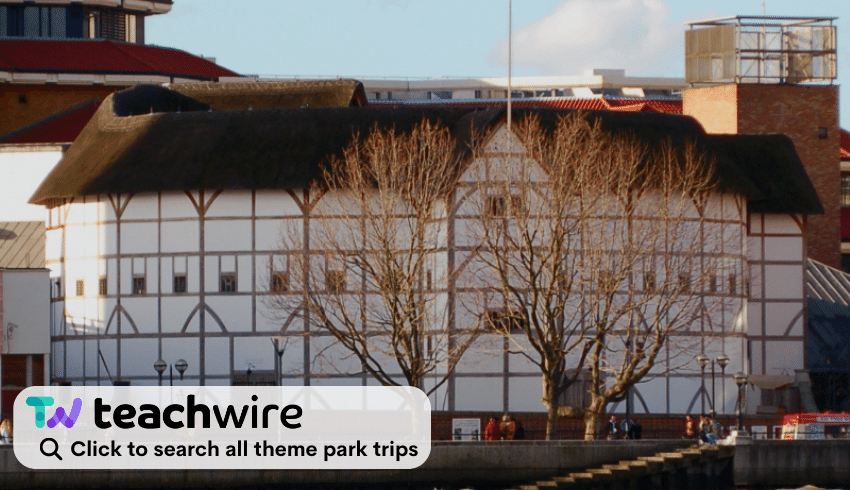
Galloway School Tours
Did you know your local coach operator may be able to organise a complete day out? This includes travel and attraction tickets.
East Anglian operator Galloway School Tours , for example, offers packages for groups looking to visit London’s West End.
Using its extensive experience and network of contacts, Galloway can provide schools travelling from East Anglia a package including travel, show tickets and a theatre workshop.
It’s a great opportunity for students to work with professionals and enjoy top quality entertainment.
Royal Court Theatre
The Royal Court is a leading force in world theatre for finding writers and producing new plays that are original, contemporary and provocative.
Its education programme encourages young people to investigate, enjoy and participate in the craft of making theatre. It opens up the world of the rehearsal room as well as backstage, and offers practical learning opportunities for students.
From study days, production workshops, INSET sessions and community projects, the organisation offers a fascinating insight into the professional process of staging Royal Court productions.
Disney’s Aladdin
Breathtaking sets, mindblowing special effects, over 350 lavish costumes and a fabulous cast and orchestra bring the magic of Disney’s Aladdin to life on the West End stage.
This spectacular show, which is packed full of dancing, music and storytelling, is a fantastic stimulus for creative work. It will inspire primary and secondary pupils alike.
You can enhance your visit with free online resources. These include a nine-part video library.
Or take advantage of a range of pre-show workshops led by Disney Theatrical Teaching Artists. Prepare to escape to a whole new world!
Shakespeare’s Globe
Every day hundreds of students take part in curriculum-linked workshops and lectures at, or delivered, by Shakespeare’s Globe .
Visit with your group and you’ll also be able to benefit from an exploratory tour of the theatre.
Workshop options include interactive storytelling sessions for Key Stages 3 to 5. These include a 45-minute performance by a Globe Education practitioner.
Longer study days, exploring topics such as language or contextual influences on performance, for Key Stages 4 and 5, and GCSE study days are also available.
The Globe has extensive experience of working with children with SEN and EAL, too.
Told By An Idiot
Told by an Idiot is an acclaimed professional theatre company and an Arts Council England NPO organisation.
The company has 25 years’ experience of creating exciting, innovative productions and participation projects across the UK and internationally. Venues include north west England’s Manchester Royal Exchange, Theatre Royal Plymouth, Lyric Hammersmith London and National Theatre Wales.
It also offers a range of exciting, highly practical drama workshops for teachers and students. These are led by experienced practitioners who are all professional theatre performers and directors.
Themes include Working with Mask, Devising, Commedia dell’arte and Physical Theatre, as well as CPD sessions for teachers.
The Emmerdale Studio Experience
The Emmerdale Studio Experience takes place at the former ITV studios in Leeds, where selected filming still takes place. It allows students to step into the drama and experience the television production process from ‘Script to Screen’.
The education programme is tailored for Key Stages 2–5. There are links to the national curriculum and exam board specifications for English, film and media studies.
ATG Creative Learning Workshops
ATG’s Creative Learning team understands the value of learning through a creative process and the many ways in which it can engage and inspire students, bolstering the hard work of teachers and their schools.
All of ATG’s group workshops are bespoke. They can be tailored to offer an exploration of any English or drama text, on the GCSE and A Level curriculum or otherwise.
Best of all, students taking part will be working with truly inspiring West End professionals at a competitive cost.
Wicked The Musical
Voted ‘Best Theatre Production for Schools’ by teachers at the School Travel Awards two years running, Wicked ’s topical story of friendship, acceptance, integrity, peer pressure and propaganda is relevant for PSHE and citizenship teaching, and whole-school anti-bullying strategies.
The show is highly pertinent for all students studying BTEC Nationals in Performing Arts, as well as a wealth of additional subjects. The song ‘Defying Gravity’ is also a set work for the Edexcel GCSE Music qualification.
Visit the website for details of the schools’ workshop programme. These are run by current and former members of the cast and creative team.
Curve is a state-of-the-art theatre based in the heart of Leicester’s vibrant Cultural Quarter.
As well as live performances, it offers a wide range of inspiring educational workshops. These are designed to open up the world of theatre and reveal the hidden process of a rehearsal room.
Students are afforded the opportunity to engage more deeply with the artists, subject matter and processes in the theatre’s artistic programme. Links are made to the curriculum.
Mayflower Theatre
Mayflower Theatre delivers a diverse range of creative workshops, theatre tours and events tailor made for schools, colleges or groups. They can take place either at the theatre or at your own setting.
It also supports talks and workshops on a variety of creative careers. Conference-style events for young people explore entering the industry, in particular non-performance based careers. These draw on the expertise within the marketing, sales, technical and FOH departments, as well as industry professionals.
Outdoor activities and experience day trips
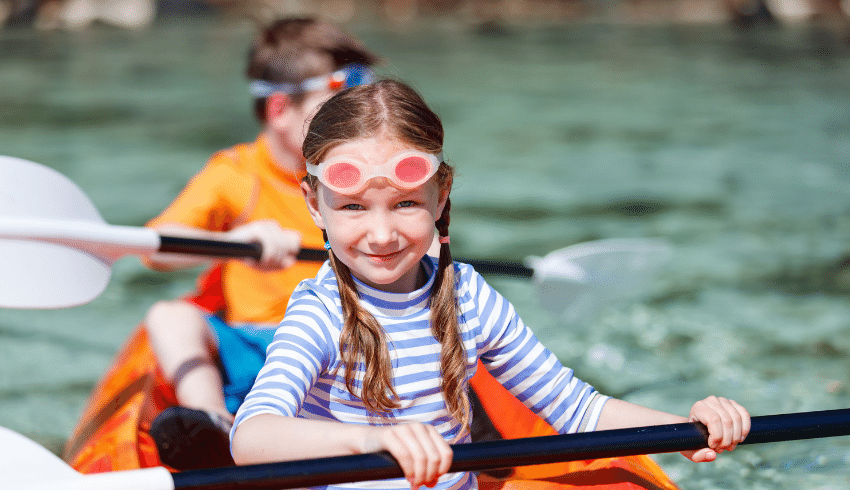
Willen Lake
Looking for a trip in central England? There’s no better place than one of Milton Keynes’ most popular destinations, Willen Lake . Whether you’re looking to visit as part of your enrichment programme or as part of an activity day or physical education session, there’s something for everyone.
The land and water-based activities on offer are run by qualified instructors and cater for students aged eight and above.
An extensive range of packages covers everything from a single activity through to a full schedule of multiple activities. Plus, groups of all sizes are welcome.
Chill Factore Indoor Snow Centre
Chill Factore , Manchester, runs an exciting range of unique adventure days based around skills development, puzzle solving and team building, to offer an exciting new alternative to summer reward trips and transition initiatives.
The most popular package, the Chill Adventure Day, gives students an adrenaline-filled indoor adventure experience. Here they can enjoy rock climbing, sledging, tobogganing, snow tubing and ski or snowboard tuition.
Icebreaker Challenge is an indoor, snow-based sports day. Alternatively, the Arctic Explorer Package is a snow-based problem solving break out game.
Stubbers Adventure Centre
Based on a picturesque 130-acre site, Stubbers Adventure Centre is a registered not-for-profit organisation that has helped hundreds of schools provide students with the opportunity to develop social and interpersonal skills and build confidence. This is done through participation in adventurous activities.
The centre offers lots of water sports. This includes kayaking, jet skiing, sailing and raft building. Other activities include archery, fencing, orienteering, laser tag and rifle shooting.
‘The Towers’ section, meanwhile, offers climbing, abseiling, high ropes and zip wire, and motorsports including quad bikes and 4×4 driving.
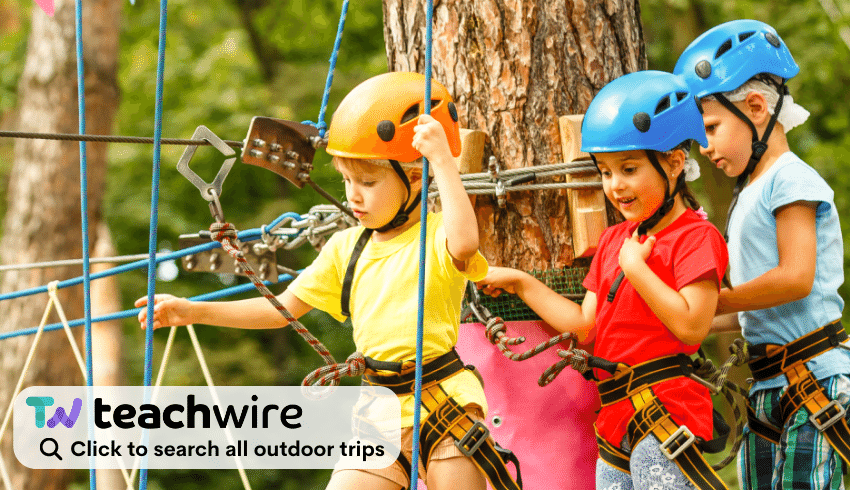
Shropshire Raft Tours
Shropshire Raft Tours offers services to accommodate school trips, as well as facilities to receive coaches in the Wharfage car park where its Little Green Kiosk is based.
Its River Severn Tours are a compelling educational experience, and lots of fun too. Passing through the Ironbridge Gorge, they provide a fantastic opportunity for students to learn the history of the river during the Industrial Revolution. Students will also acquire river safety skills, explore how the Severn valley gorge was formed, and much more.
- Browse hundreds of school trip ideas Check out our directory where you can browse venues and filter them via trip type, subject, location and more.
- Council for Learning Outside the Classroom CLOtC’s website is a trove of information, inspiration, resources and training, including details on how the LOtC Quality Badge accreditation can help you plan your next school trip. It also offers a range of CPD opportunities and the LOtC Mark, for schools that want to demonstrate their commitment.
- Outdoor Education Advisers’ Panel OEAP ‘s National Guidance is a must-read for any teacher planning a school trip. Downloadable checklists and training are available.
- Department for Education View the DfE’s latest health and safety guidance .
- School Travel Forum STF offers information for the organisers of school trips as well research on the benefits of learning outside the classroom.
- Learning Away For help with planning a brilliant residential, visit learningaway.org.uk .
A-Z guide on completing a risk assessment

Download a school trip proposal template

Find a school trip near me
You might also be interested in....

Why join Teachwire?
Get what you need to become a better teacher with unlimited access to exclusive free classroom resources and expert CPD downloads.
Exclusive classroom resource downloads
Free worksheets and lesson plans
CPD downloads, written by experts
Resource packs to supercharge your planning
Special web-only magazine editions
Educational podcasts & resources
Access to free literacy webinars
Newsletters and offers
Create free account
By signing up you agree to our terms and conditions and privacy policy .
Already have an account? Log in here
Thanks, you're almost there
To help us show you teaching resources, downloads and more you’ll love, complete your profile below.
Welcome to Teachwire!
Set up your account.
Lorem ipsum dolor sit amet consectetur adipisicing elit. Commodi nulla quos inventore beatae tenetur.
I would like to receive regular updates from Teachwire with free lesson plans, great new teaching ideas, offers and more. (You can unsubscribe at any time.)
Log in to Teachwire
Not registered with Teachwire? Sign up for free
Reset Password
Remembered your password? Login here

- Grades 6-12
- School Leaders
Have you gotten your free poster delivered? ✨
260+ Field Trip Ideas for Grades Pre-K Through 12 (In-Person and Virtual)
Get out of the classroom and explore the world!
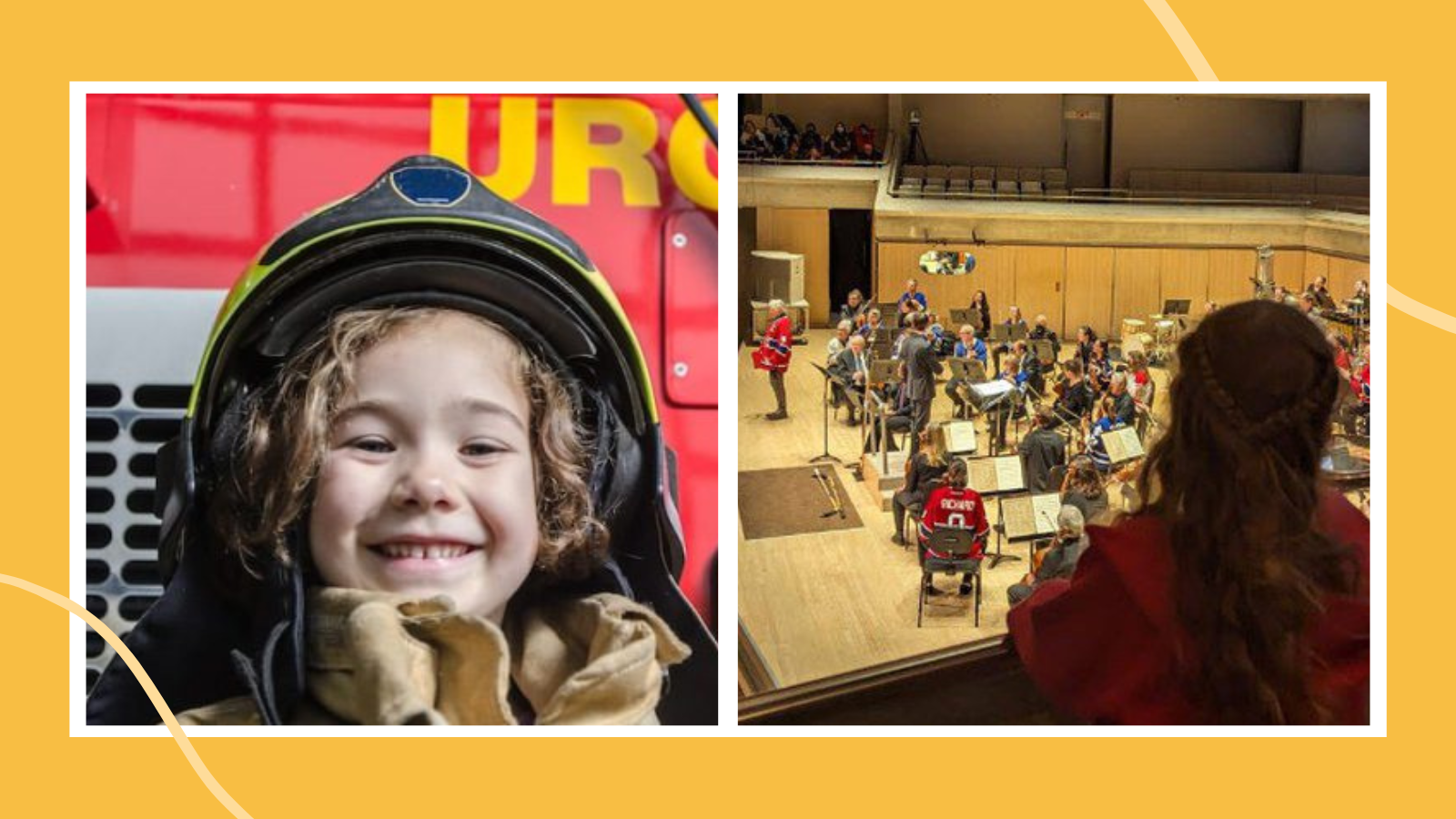
Field trips are a quintessential school experience. You usually only get one or two a year so it’s important to do it right! Our roundups of unique field trip ideas have something for every age, subject, and interest. We’ve even got resources like permission slip forms and chaperone tips. Get ready to leave the classroom behind to take learning on the road!
Preschool Field Trip Ideas
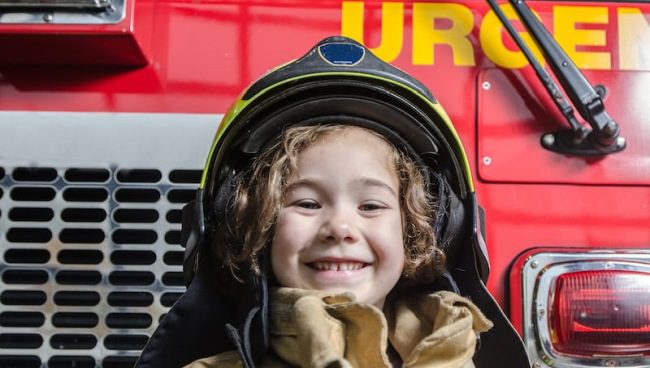
Early-grade field trips help kids learn about the world and also teach them good field trip behavior. These are our top picks for the pre-K crowd, but many of the options on our kindergarten list are perfect for this age group too.
- Library: Not every student’s parents take them to story time. Schedule your own trip, and show kids that having fun isn’t hard when you have a library card!
- Farm: Whether you learn how vegetables are grown or where milk and eggs come from, the farm is always a hit.
- Grocery store: Go behind the scenes at the supermarket, and use this trip as the foundation for lessons on healthy eating.
- Park: From local playgrounds to majestic national parks, it’s always worth getting kids into the great outdoors.
- Children’s museum: This is the age group most children’s museums were designed for! They’ll love all the hands-on fun and excitement.
- Post office: Learn how mail is sorted and shipped, and teach students about stamps and other mail-related items.
- Bank: Money is a new concept for these kiddos, and they’ll be fascinated to step inside the vault and learn other bank secrets.
- Fire station: There’s just something about a fire truck that gets every little one excited.
- Nursing home: Is there anything sweeter than watching seniors and wee ones spend time together?
- Animal shelter: For kids who don’t have pets at home, this can be a good introduction to animals. Others will just enjoy the time with dogs and cats waiting for their forever homes.
Elementary School Field Trip Ideas

@mjdstoronto
These are the prime field trip years! Here are our favorite trips for every grade.
- 14 Kindergarten Field Trips (Virtual and In-Person)
- 15 First Grade Field Trips (Virtual and In-Person)
- 15 Second Grade Field Trips (Virtual and In-Person)
- 15 Third Grade Field Trips (Virtual and In-Person)
- 23 Fourth Grade Field Trips (Virtual and In-Person)
- 22 Fifth Grade Field Trips (Virtual and In-Person)
Middle and High School Field Trip Ideas

@salinasvalleybasingsa
For this age group, you’ll need to step up your game a bit. (They’ve probably already been to the zoo, the aquarium, and the art museum.) Try some of these locations, which offer educational, social-emotional, and real-life learning opportunities.
- Food bank: Hold a food drive, then arrange a trip to your local soup kitchen or food pantry. Volunteering makes for truly meaningful field trips.
- Recycling facility: In a time when reducing landfill waste is more important than ever, a trip to a recycling facility can help drive home the message.
- Theater: Many theaters offer behind-the-scenes tours for schools and discount pricing when you buy tickets in bulk. (Want to go virtual? Check out the Hamilton Education Program !)
- Community college: Parents sometimes take kids on college visits, but a community college trip offers opportunities for even more students to see themselves getting a higher education.
- TV station: Kids interested in communications or technology will find this completely fascinating.
- Courtroom: There’s no better way to understand the justice system than to see it in action.
- State or county capitol: Every government class should visit a local capitol to meet with officials and see how the government works.
- Local business: This can be a cool way to learn about managing a business, working with customers, or discovering how products are made.
- Wildlife rehab facility: Introduce students to the people who help injured wild animals recover and live free once again.
Virtual Field Trip Ideas
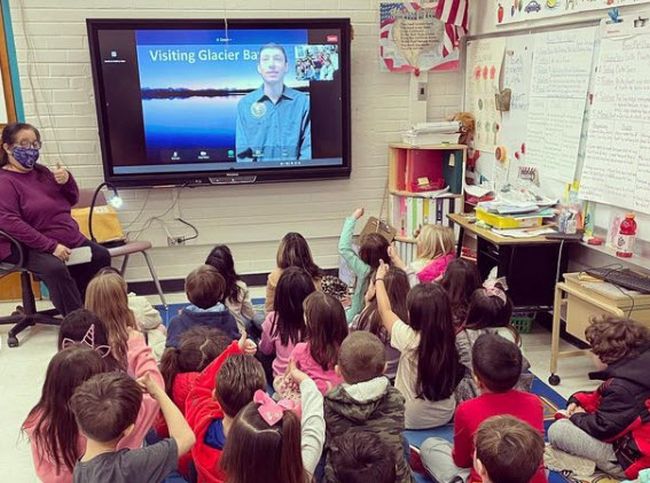
@edtech_tusd
The terrific thing about virtual field trips is that they eliminate so much of the hassle. No need to collect permission slips, arrange for buses, or recruit chaperones. Plus, they’re usually free!
- 40 Amazing Educational Virtual Field Trips
- 20 Terrific Virtual Art Museum Field Trips
- 18 Incredible Virtual Zoo Field Trips
- 15 Fascinating Aquarium Virtual Field Trips
- 3 Science Virtual Field Trips Let Kids Travel the World
Field Trips by Location
If you live in one of these cities, check out some of our favorite spots.
- 16 Cool Field Trips in Houston, Texas
- 21 Terrific Field Trips in Chicago, Illinois
- Top 10 Washington D.C. Field Trip Ideas
Field Trip Tips and Resources

There’s a lot to do when you’re organizing an off-site field trip. These resources are here to help.
- Preparing Parent Chaperones for a Field Trip
- Free Printable Field Trip and School Permission Forms To Make Your Life Easier
- Things To Do Before Taking Your Students on a Major Field Trip
- Mistakes To Avoid When Planning a Field Trip for Students
- Why I Hate Field Trips (And How I Learned To Deal)
- Help! Is There Any Way I Can Get Out of Our End of the Year Field Trip?
Bonus: Looking for a laugh? Check out Ways School Field Trips Are Like The Wizard of Oz !
What are your favorite field trip ideas? Come share your thoughts in the We Are Teachers HELPLINE group on Facebook !
Plus, virtual college campus tours to explore from home ..
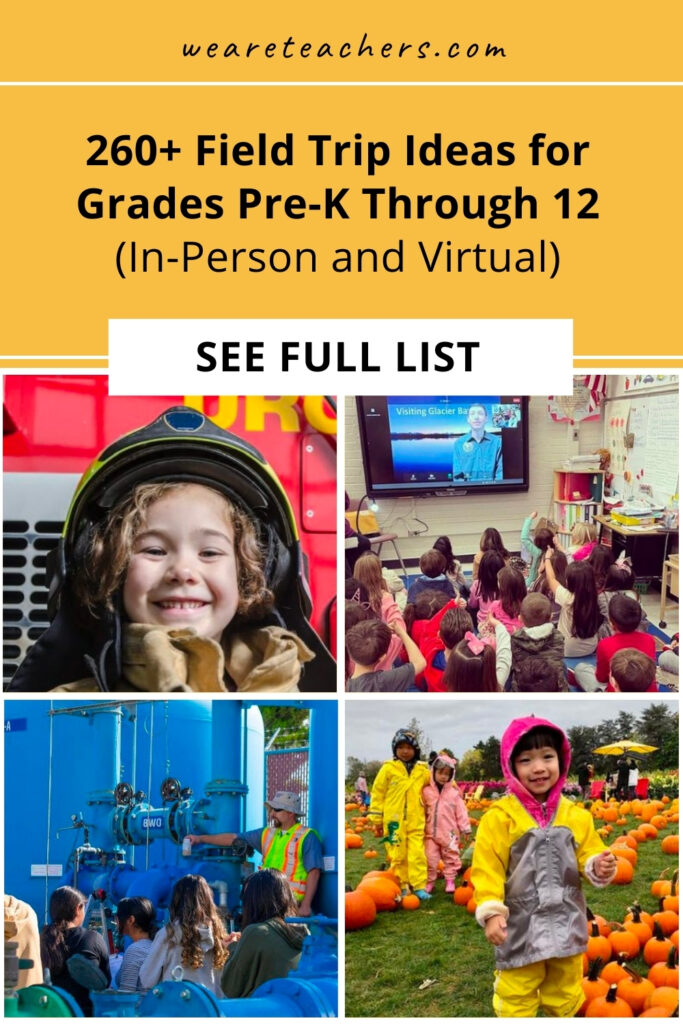
You Might Also Like

103 Fantastic Fall Activities Kids Will Love
Get your cozy on! Continue Reading
Copyright © 2024. All rights reserved. 5335 Gate Parkway, Jacksonville, FL 32256
School Travel

Getting Started
- Familiarise yourself with your school’s procedure for organising days away, ensuring that you have all of the necessary approvals and forms on hand. To avoid anything from slipping through the cracks, it’s worth going over the administrative process with another colleague.
- Write down the objectives of the visit to convince parents or guardians of its educational (or other) value for their children. Make sure that you ask for written consent from all parents.
- Develop an itinerary and a packing checklist. While this can be time consuming, it’s not if you let us do this for you! You’ll share this schedule of events with parents, students and colleagues.
- Make a list of every pupil attending the trip, and create folders that contain their parents’ or guardians’ written consent, their medical and dietary requirements and other important information, such as their behavioural tendencies.
- It’s always a good idea to visit the location beforehand. At the School Travel Company we can organise an inspection visit prior to the trip, allowing you to conduct risk assessments, try out your chosen accommodation and check out local transport options before your class steps foot off the bus.

Preparing Your Pupils
- Showing pupils a film about the destination
- Having students who went on past trips talk about what they most enjoyed
- Going over the itinerary in class, and – if the outing is educational – highlighting opportunities for downtime
- If applicable, giving them a checklist of items (and/or questions about them) to look out for during their trip, such as historical monuments or flora and fauna. The first person to see everything on the list wins a prize!
Of course, these tips for planning your outing are only a drop in the ocean compared to our experienced team’s wealth of insider knowledge. Whether you’re looking for school trip ideas or already have a specific excursion in mind, we at The School Travel Company are here to lift the logistical weight off of your shoulders. To find out more about our inspiring itineraries, get in touch with us today.
“Bringing the Classroom to Life”
The School Travel Company Blog is a treasure trove of tips and titbits, ideas and inspirations, suggestions and surprises to expect when planning your school trip!
Have a browse through and take advantage of the experience of our expert tour managers.
Need help planning your next trip?
Get in touch.
Call us: 01384 398 893
Email us: CLICK HERE
Take a look at some of our favourite tours…

Cornwall 4 Nights
Request a quote.
- Mainland China
- South Korea
- Hong Kong, Macau and Taiwan
- South Africa
- South America
- New Zealand
- Art & Design
- Ancient Romans
- Performing Arts
- Politics & Law
- Volunteering Service
- Week Without Walls
- Ski School Trips
- Rugby School Tours
- Why Choose Us
- Health & Safety
- DMC Services
- Financial Security
- Terms and Conditions
- +44 (0)20 8064 0592
Planning a School Trip: What to Consider and How to Plan
Lauren jeffries.
- Categories: Trip Planning , UK
- 3 mins read
- December 30, 2021
- (Updated June 25, 2024)
Table of Contents
Planning a school trip can be daunting, but with the right company and a good checklist it can even be enjoyable! Follow this guide and you can embrace the excitement of taking your students anywhere in the world.
Start planning early.
There are numerous things to consider with a school trip, and to ensure the trip runs smoothly it is essential to start planning early on. A year in advance for the majority of trips is plenty, however if you are going further afield then there is no harm in planning around 18 months in advance.
Not only will this reduce the stress surrounding the trip, but it means the teachers and students can get excited about the prospect of the travels without worrying or stressing !
Find a Good Tour Operator
A good tour operator is essential to your school trip. They can make or break the experience, and you want to be able to trust them to get the most out of the trip you can!
A good tour operator will plan a full itinerary for you based on yours and the students’ needs. This can include taking into consideration the subjects studied, the amount of students and what you want to get out of the trip.
The Learning Adventure personalises every schools’ itinerary and creates an original, fun and unique trip experience. We listen to exactly what you are looking for and deliver!
Risk Assessment
A detailed and well thought out risk assessment is essential to planning a school trip. This is when the tour group operator can really help. Operators usually offer 24 hour emergency support throughout the trip, however it is good to ask a few questions to make sure you are with the right operator:
How do you deal with emergency situations?
Are there testimonials from schools that have used you in the past?
Do you offer 24 hour emergency support?
There are plenty of resources online to help you build a risk assessment, take a look HERE for a good comprehensive guide to risk assessments.
Consider Additional Costs
When you receive a quote from a tour operator, look in depth at what is covered and what is not, for example: meals, entrance costs, travel, ETC.
By knowing your budget inside and out and what is being spent and where, you will be able to cover unexpected costs that inevitably crop up.
It is also a good idea to ask your operator about currency. As the exchange rate fluctuates the price of the tour can as well, so it’s good for the operator to buy currency in advance.
Be Experimental
We know it’s easy and tempting to run the same school trips year after year, but there are endless possibilities for your school and its students! Be experimental and brave, push the boat out because it will be well worth it.
We offer school trips all around the world, so drop us an email or give us a call if you want to discuss your ideas and we can work together!
We offer a wide range of trips for schools and universities. We tailor the adventure to your school’s priorities and the subjects being studied, so if you’d like to start planning drop us an email or give us a call! In the meantime take look at our services here!
Ready for an educational adventure.
Contact our team to design a custom itinerary for any destination or subject, tailored to your objectives.
Written by Lauren Jeffries
Educational tours specialist, related posts, chinese culture trip in malaysia and singapore, our first ever uk school trip: a day trip in london, how to design the perfect school trip: alex seigel.
Chat to us commitment-free, about how The Learning Adventure can help you organise an unforgettable, life-changing educational tour, complete our enquiry form and a member of our team will be in touch.
- [email protected]
- All regional office contacts
Quick links
Destinations, education levels.
- College school trips
- Primary school trips
- Residential trips
- Secondary school trips
- University trips
Get In Touch
- UK & Europe +44 (0)20 8064 0592
- USA +1 (617) 334 7755
- Vietnam +84 76 800 9728
- China +86 139 1651 9541
- Middle East +971 50 867 4801
Part of Transforma Travel Group
Sign up to our newsletter
Hear about our new adventures before anyone else
© 2024 The Learning Adventure. All rights reserved. Privacy Policy | Terms & Conditions | Designed by Creative Clinic
How to Plan a Successful School Trip: Step-by-Step Guide
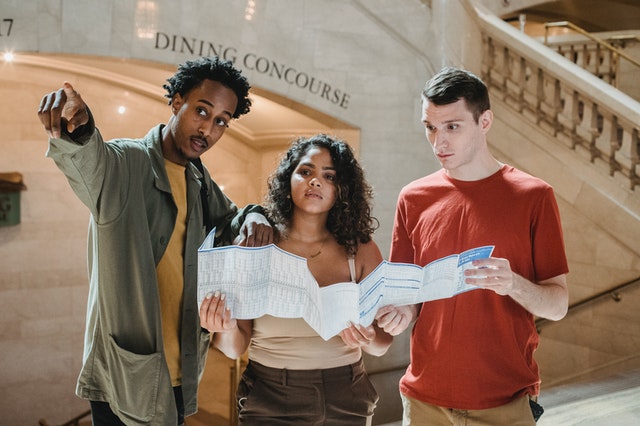
School trips have numerous educational benefits for students.
Let’s consider some of them below!
The Advantages of School Trips
Start as early as possible, turn to an educational tour operator, instruct students and parents, include the trip into your curriculum, set the rules, find volunteers, final thoughts.
First of all, going for school tours reinforces knowledge gained in a classroom.
Why so? Probably because the material comes to life, so students can visualize, experience, and discuss it.
For sure, this contributes to effective studying.
Also, multimedia used in some educational tours grabs students’ attention and encourages them to partake in exciting learning experiences, which is beneficial for the assimilation of novel information.
Another advantage of school trips is that they provide a cultural experience necessary for the understanding of subjects like History, Arts, Sociology, etc.
And last but not least, such activities allow students to communicate with peers outside the classroom and create nice lifelong memories.
Despite a large number of advantages, students rarely go on school trips.
Why so? Maybe, because of the big school workload that doesn’t leave time for anything else except for learning.
Teenagers often get absorbed with the study as it requires complete devotion.
Hence, if you decide to travel, make sure that it won’t harm your academic outcomes.
You should submit all your assignments or pay someone to write essay before leaving your study setting.
This way, you can enjoy your educational trip to the fullest, without worrying about upcoming assessments.

How to Plan a School Trip Step by Step
Planning in advance increases your chances to have a successful trip.
You should start organizing and fundraising as early as possible.
Usually, it takes up to a few months to agree on a destination with students, get necessary permissions from school administration, and find volunteers.
Therefore, give yourself plenty of time to get all the details in place.
There is no need to plan the whole trip on your own.
To save your money and time, you can consult a company that specializes in educational tours for students.
An agent can help you with choosing the right options for your teaching purposes.
Tour operators usually offer a wide range of possibilities you may have never considered before.
They can provide you with great support, answering any questions and addressing your concerns.
After planning out the basics of your trip and receiving administrative approval, it’s time to hold informational meetings for students and parents.
To track who attends the gatherings, you can create a sign-in sheet.
Also, a great idea could be to distribute registration forms to students and parents at the meeting.
No matter what kind of tour you are going to organize, it’s important to integrate it into your curriculum.
To make the most out of your trip, plan a few lessons beforehand that are directly related to it.
Most education experts believe that this helps students build more associations about the topic and effectively assimilate knowledge.
You can also ask pupils to do background research on the places you are going to visit and share their insights with classmates during the lesson.
Create a list of rules prior to the trip and send it to students and their parents.
Make sure that pupils know what clothing to pack for the trip and what things they are not allowed to bring with them.
Also, remind parents that you cannot be with the kids every single minute, so they must teach their children responsibility and explain some code of conduct.
You can even ask them to sign a contract before taking part in a tour.
This will help you avoid accidents.
It’s really a big challenge to keep an eye on all the students and take control of the tour organization at the same time.
Hence, you might need some help from volunteers and chaperones.
Importantly, you should find them and assign particular responsibilities in advance, so there will be no confusion when you arrive at the destination.
Ensure that everyone clearly understands their roles.
Pedagogical experts state that doing some learning activities in the educational environment helps learners retain more information.
Therefore, school tours must be an integral part of the study curriculum.
They are not only an enjoyable way to spend time out of the classroom but a great teaching tool as well.
Hopefully, the recommendations given in this article helped you understand how to plan a trip for students in the easiest and most effective way possible.
Additional Resources

Leave a Comment Cancel reply
Popular destinations.

Safety Index
Recent reviews & comments.
- Anonymous on Venezuela
- Sam on Stockholm
- Jose Canete on Vietnam
- Kentson Anttila on 16 Pros and Cons of Living in Finland
- Michael Shapiso on Davidson
Popular US States
- Pennsylvania
Open today, 9am - 5pm
Our opening hours are:
Monday – Friday
Call us: 01737 218 807
Search Discover the World Education
Step by step guide to planning your school trip.
Whether you are a seasoned pro or brand new to planning a school trip, the process can feel daunting. But it doesn’t have to be.
We have put together these 9 simple steps to ensure that it is a smooth and straightforward process for you, leaving you to get exciting about planning your next adventure.
After browsing our website, you’ll have a good idea of where you want to go, but as you probably know by now, our itineraries are purely inspirations we use as a starting point. That’s why it’s best to contact our Travel Specialists who can help tailor your trip to your school’s needs.
Once we’ve got a better idea of the activities and learning goals you have in mind, our Travel team will send you an initial quote based on your bespoke itinerary, anticipated numbers, and flight costs. At this point, nothing is set in stone and we’re flexible if you wish to change any details.
Next, you’ll complete a provisional booking form which secures your accommodation and adds you to our flight waiting list. At this stage, you can change numbers or cancel at any time. Your Travel Specialist will let you know as soon as your flights become available and your deposit is due.
Now it’s time to launch your trip to students and parents! We’ll support you by sharing customisable presentations and helpful letter templates to help things go smoothly.
Once you’ve let us know your final numbers and paid your deposits, you’ll be supported by our Operations team who will be on hand to answer any questions you have before, during, and after you return from your trip.
What happens next?
So, you have launched your school trip to your school, final numbers are collected and the trip is now confirmed. But what happens next?
As your trip is fully bespoke, your travel specialist will be in touch throughout these steps to ensure you have everything sorted for your exciting adventure.
Speak to a specialist
Latest News

Embraer celebrates 55th anniversary and 35 years of public listing with event at Brazilian stock market

Record Fall travel costs increase popularity of budget-friendly destinations, finds Squaremouth.com

Positive operating result for Havila Voyages, revenues at 369m. NOK in the 2nd quarter 2024

Viewline Resort Snowmass appoints new General Manager, Gregg Fracassa

Wilderness opens eeimagined Desert Rhino – Damaraland, Namibia

Air Canada helps welcome new Canadians during citizenship ceremony at Calgary’s GlobalFest

Discovering my travel secrets: London’s hidden treasure – The Zetter Clerkenwell

Seatrade Cruise Med announces 2024 state of the Mediterranean cruise industry keynote

Quebec becomes 12th Michelin Guide destination in North America

Old Sod Collection announces launch of Sancho Panza Travel

Teacher’s guide: How to plan a school trip
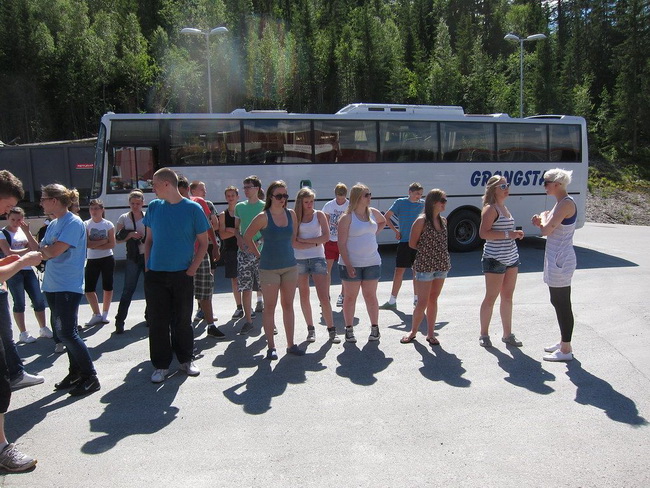
To carry out a school trip effectively, you must have a robust plan for all contingencies. This guide details the most critical elements in planning for school trips. If you can tick the following boxes, you have a very high chance of creating memorable experiences for your students.
Field trips can be an important instructional tool for students. They help students interact and absorb information in a practical way. Most studies show that students get higher information retention and critical thinking when exposed to educational materials during trips.
With all these in mind, it’s only natural that every good teacher wants to plan a trip or two for their students. However, the planning and safety concerns mean that school boards are often reluctant to sign off on trips for students. Coordinating a large group of young children or teenagers in a public place can be complicated, and any accidents will likely result in a lawsuit for the school.
To carry out a school trip effectively, you must have a robust plan for all contingencies. This guide details the most critical elements in planning for school trips. If you can tick the following boxes, you have a very high chance of creating memorable experiences for your students:
Talk to the school administrator The school administrator is the biggest hindrance between you and planning your trip. Getting them to approve the trip can require some persistence, especially if you weren't previously scheduled for a field trip. One way to achieve this is to tie the trip to your curriculum. That way, you can explain in detail how the tour will be beneficial to the students.
Make sure to run them through all the details of your ideas, but be prepared to make some adjustments. They may require you to wait until a later date than you had in mind or want a reduction in the number of students you'll be taking. They will also walk you through the process for organizing a trip within the school, especially the needed forms for permissions.
Arrange transportation Depending on where you're going and how many students are going on the trip, the mode of transportation will differ. If the site is close to the school, then the option of walking there may be more appealing.
If, however, the site is far away, you'll need to plan for a vehicle, which can be a bit complicated. If you're going with a lot of students, the school bus will be the best option. You may, however, have to fill specific forms to be able to access it. You'll also have to inform the transport department on time to find a driver with an available bus.
If the class size is small, then a teacher’s car or minivan may be enough.
Decide on a food plan One of the most underrated aspects of field trips is the children's meals. You should plan for meals if you're going to spend a long time on the trip. Hungry children aren't typically very attentive and can get grouchy. There are three main ways people plan for food on field trips, and they are:
• On-site cafeteria: If the site you’re visiting has a cafeteria or restaurant, you might be able to plan with them to feed the children. This option is easier to coordinate and typically assures you quality meals. It may, however, significantly add to the cost of your trip. • Off-site restaurant: You can choose to eat out at a different restaurant, but there are typically no guarantees on food quality or supervision. The students generally love this option, though. • Children bring their lunch: This option requires no spending and is the cheapest option available. However, you run the risk of some children not bringing food. Children who don't bring food can become irritable from hunger, and that can be bad for your trip.
Create a schedule Children have a relatively short attention span, so you have to be smart about planning trips, especially when they involve long travels. Break the day into small activities that can keep the kids engaged. For instance, while on the bus, you can engage them with puzzles.
You can also schedule some fun time before or after your main visit to help the kids cool off and have fun. The idea is to make sure that all the students perform activities that they enjoy and stay engaged.
Arrange for supervision If you're dealing with a large number of students for the trip, then you'll need extra hands. Some states have local laws that set minimum chaperone to student ratios. It's crucial to consider the local laws while planning for the trip. Regardless of if there are local laws or not, once the students exceed 15 per supervisor, ask for help.
You might be able to get other teachers to tag along as supervisors on the trip or get parent-volunteers to come.
If you aren’t going with all your students, you have to make sure that those that are left behind have adult supervision. All children must be accounted for by adults.
Send out a permission form Permission forms are important to gain the consent of the parents before taking the children on trips. Most schools won't allow a child who hasn't been granted express permission to go on the journey as a matter of policy.
The letter is usually a very straightforward one detailing the information around the trip. It should contain:
– The destination address – The purpose of the trip – Timeline of the trip – School contact information and contact person for the trip – What the students will need (clothes, money, etc.) – Feeding and transportation arrangements – Latest date for the return of the form – Permission segment (where their parents authorize the trip)
Keep in mind that you'll have to remind the children to return the signed forms. Anyone who doesn't return theirs won't be able to go on the trip.
Conclusion The biggest concern with organizing class trips is the safety of the children. You should endeavor to carry a first aid kit along in case any of the kids get injured during the trip.
If you can, you should also try to get uniforms for the kids. Uniforms can help build a sense of familiarity among the children, and also makes it easier to spot them. Screenprinted t-shirts are an excellent option for school trip uniforms. Check them out here: https://thrivescreenprinting.com/wholesale-screen-printing/

Stavros Andriopoulos
- Online casino tourism: The advantages of playing online slots abroad for UK players
- Four compelling reasons to blog while traveling
- From fitness to fun: How electric bikes enhance your outdoor adventures
- Casinos on cruises: A new line of luxury and thrill
Related posts

Five irresistible reasons to choose lake rentals for your next family vacation

Five road trip statistics to know about

How to make flight time fly by

Popular games in Brazil
Previous post, sita announces new leadership appointments overseeing sita’s key product portfolios, europe’s hotel construction pipeline continues to expand in the 1st quarter of 2020 despite covid-19 pandemic.

Holland America Line’s 2026 Alaska cruise season offers front-row seat to the wild wonders of the great land

What constitutes a personal injury in California

Celebrating 25 years of Speciality & Fine Food Fair at Olympia

Trip.com Group highlights ESG progress and key actions in latest Sustainability Report

Lufthansa Innovation Hub marks 10th anniversary with new venture clienting arm, venture launch and latest startup spin-off

Regenerative Travel unveils speaker lineup and program for 2024 Summit at Climate Week NYC

ICAO: Aviation safety improved despite the challenges of pandemic recovery

Budapest Airport reconnects to Lyon with easyJet

Dunluce Lodge and Seaton House enhance guest experience with Journey

IAPCO and FIEXPO Exhibitions Group partner to elevate professional development in Latin America

Brunfels Hotel opens as part of The Unbound Collection by Hyatt

DXB Live delivers outstanding results in H1, expands regional presence with Riyadh Office

Marriott International and Grupo Fametro sign agreement to bring the Tribute Portfolio brand to Manaus, Amazonas

Custom Travel Solutions launches membership engagement team

RAI Amsterdam ready for the future with two permanent AV partners

Way2VAT boosts revenue through enterprise wins and readies commercial launch of APAI

UFI delegation explores India’s expanding exhibition venues

Electra names B. Marc Allen as Chief Executive Officer

Swedish entrepreneurs launch GotPouches: Bringing premium nicotine Pouches to the U.S. market

Ryanair calls for urgent ATC reform in Europe following closure of Eindhoven Airport

Blue Parallel announces new offerings in Iceland and Panama

IATA: International demand rose 10.1% in July

Appellation welcomes new Chief Culinary Director

Aman appoints Novak Djokovic as Global Wellness Advisor

Ethiopian Airlines’ STEM initiative marks another year of triumph

Lee Rekas is named Area Director of Sales & Marketing of Pier House Resort & Spa

Innovative legal strategies in recent wrongful death cases
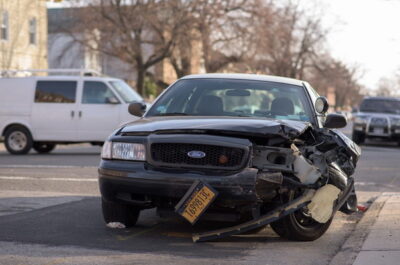
The importance of hiring a car accident lawyer in new Hyde Park

Neptune Luxury Resort: Supporting the community through local small businesses

Scandinavian luxury travel Curator Up Norway announces executive changes

TSNN and IAEE forge multi-year partnership

Royal Lahaina reopens with new culinary venues and renovated bungalows

WTTC appoints Gaurav Bhatnagar to Regional Vice Chair for India

SAS announces designated Board of Directors

Saudia and Mastercard partner to launch Mastercard’s “Her Voice” Season 3

Oceania Cruises becomes first ultra-premium line to sail out of Tampa

IHG Hotels & Resorts welcomes back InterContinental to Serbia

Lemongrass welcomes seven travel clients to its portfolio

Europalco’s Kuka robot steal the show at the Deloitte IRGAwards

API Hospitality & Residences Forum: Investment, innovation and strategic partnerships

Hospitality veteran Wendy Hoekwater launches Net Growth Marketing, LLC

HOSPA Professional Development sees a 20% increase in learners as hospitality embraces education

The first airport capsule hotel in the Baltics, Kepler Club, has opened at Riga Airport

International SOS announces appointment of Giles Hill as Head of Global Security Services

Global Blue reports strong Q1 FY24/25 financial results with continued substantial revenue growth

Dusit Hotels and Resorts, Generator and Freehand Hotels form strategic partnership

Datalex announces H1 2024 interim results: Revenue in H1 2024 at $13.2m.

Unveiling Dallas: The ultimate destination for business conferences and beyond

Common types of car accidents on Florida roads

New national strategy for cruise tourism in Cyprus

Saudia ranks first globally in on-time performance for July 2024

Second IATA World Sustainability Symposium to take place in Miami

SAS enters a new era following successful emergence from restructuring proceedings

Debuting more new itineraries for 2026/27, Carnival Cruise Line will bring more guests to Half Moon Cay

Destination DC unveils strategies for further tourism push

The Phoenicia Malta joins Historic Hotels Worldwide

Over 15,000 hotel staff have now upskilled with Mews University

Alain St.Ange: “My Journey, an autobiography”, a new book by Seychelles former Minister for Tourism

Tourist arrivals remain steady throughout the Summer, says Israel Ministry of Tourism

MGM Collection unveils first fountains of Bellagio Show choreographed by a guest

Shaping the skies of tomorrow: ICAO conference sets bold agenda for global air navigation

Air Canada comments on the end of federal conciliation in negotiations with Air Line Pilots Association

Construction of general aviation hangar under way at Katowice Airport

airBaltic to receive second Airbus A220 full flight simulator in 2024

Fairmont Waterfront welcomes new General Manager, Randall Williams

Corp Yanbu Hotel transforms Yanbu’s hospitality landscape

Moxy Tromsø has appointed Maria Kristiansen as General Manager from November

Forbes Travel Guide to announce luxury Air Travel Awards

Golf by Journey: driving commercial success for UK resorts

Jet2CityBreaks’ Discover More range expanded to Marrakech and Krakow

UFI announces upcoming departure of CEO Kai Hattendorf
Royal Caribbean Group signs agreement with Meyer Turku for the next ship in its revolutionary Icon Class

Munich Airport welcomes its 50 millionth passenger on flights to and from the U.S.

Escape to Scandinavia: Explore its enchanting waterways

Six Senses Telluride to offer slopeside elegance and warm, residential ambiance among idyllic peaks

Expedia Fall Travel Outlook: International destinations heat up while Summer airfare prices cool

Saudia announces addition of Phuket to seasonal destinations

Hyatt Place Rouen celebrates official opening

Leisure demand continues to surge, reports Cheval

SAS reaches agreement with Norwegian cabin crew unions

Trailborn expands with new hotel in North Carolina’s Blue Ridge Mountains

La Concha Key West unveils Grand Dame Villas at the Rooftop


Japan Airlines and Liverpool Football Club celebrate the grand opening of the Japan Airlines Lounge at Anfield Stadium

New conservation-focused safari brand launch in Kenya: Saruni Basecamp

Generator and Freehand Hotels announce record-breaking first half of 2024 numbers

Hamburg Tourism: 7.54 million overnight stays in the first half of 2024

Holland America Line offers cruisers the chance to sample a Grand Voyage

Elixr Coffee Roasters opens at Philadelphia International Airport

Twenty Four Seven Hotels grows leadership team to accommodate new market and segment expansion

Foundation completed at ONE Park Tower by Turnberry

Civitatis and Flybondi partner to bring memorable experiences to travellers

Sobha Realty elevates Ravi Menon as the Chairman of Sobha Group, PNC Menon to continue as the Founder

Travel retail shopper priorities shift from price to experience, finds m1nd-set research

Aero launches the only scheduled flights between Van Nuys and Napa County Airport

JetBlue adds flights and introduces Mint service to Bozeman this Winter

Hotels could generate up to 2% additional income this summer by selling extras

The Shannon Airport Group welcomes TUI decision to operate new service from Shannon Airport to Majorca

Milan Bergamo Airport marks five years of enhanced passenger connectivity with Bergamolynk

A local guide to London’s Hyde Park

Guide to traveling to Greek paradise

Romantic escapes in Cheshire: Ideal stays and activities for couples

Hawai‘i vacation rental market: ADR was higher in July but vacation rental supply, demand and occupancy were lower

Saudi travelers’ Summer booking habits: Wego insights

Ryanair announces approved OTA partnership with Trip.com

Princess Cruises sails to all regions of the Caribbean for the first time ever in Summer 2026

Discover the unforgettable tourist attractions of Tanzania

Two men and a moving van is a reliable Bellevue movers company with extensive experience and an impeccable reputation

Norwegian Cruise Line offers more options for port-immersive Europe itineraries for its 2026 Spring/Summer season

London Gatwick reports strong start to 2024

6.3 million passengers flew to, from or via Schiphol in July 2024

Construction officially underway for Galveston’s fourth cruise terminal – future home of MSC Seascape

Oman Air fleet receives first of three new Boeing 787-9 deliveries for 2024

ADA Cosmetics and Yon-Ka unveil first-ever hotel amenities line designed for relaxation and sleep

Profitroom offering hoteliers free digital health check amid 100,000 staffing shortage crisis

magniX launches next phase in NASA program to electrify aviation

Edinburgh Airport achieves global carbon accreditation

easyJet puts 13 new routes on sale for winter 2024 and summer 2025

In Latin America, UN Tourism drives growth through investment

Delta Air Lines named official airline of the WNBA

Qatar Airways’ announces latest interline partnership with Maldivian

Crescent Hotels & Resorts welcomes Vanessa Claspill as Chief Commercial Officer

Travel sector can control its digital presence with modern solutions from Reputation House

Nicholas Kuhns appointed General Manager of Royal Lahaina Resort

Populus hotel introduces One Night, One Tree program

Wyndham Rewards ranked Best Hotel Loyalty Program by readers of USA Today

CarTrawler reports revenue up 5%

The Meritage Resort and Spa officially opens Napa’s newest fine dining concept, Ember Steak

HomeToGo unveils 2024 Fall travel forecast, revealing the season’s top trending destinations

Emirates’ Unaccompanied Minors Service prepares for busy period
Ryanair calls on government to cut germany’s access costs or risk 10% further flight cuts.

Hilton signs new agreement for iconic Hilton Munich Park Hotel

SWISS extends suspension of flights to and from Tel Aviv and Beirut until 26 August

Oman Air introduces next-level business travel with Business Studio

Enso Connect announced a major update to their AI-powered Unified Inbox

Cabin crew associations in SAS Norway, NKF and SNK, go on strike

AHLA statement on court ruling against FTC noncompete rule

Jamaica and Brazil forge partnership to promote tourism resilience

HSMAI charters two new Chapters: Greater Denver and Tennessee Valley

Garden of the Gods Resort and Club announces Janell Paris new Director of Membership

Southwest Airlines extends flight schedule through early April 2025

The Metropolitan Nashville Airport Authority welcomes Brian Findlen as new Chief of Police

Canada hotels record first occupancy decline in three months

How to find the perfect corporate event space for your needs

Rental Escapes unveils curated selection of villas in top Caribbean destinations for holiday travel

The best gambling destinations in Canada

JetBlue Partners with Little Free Library to bring “Soar with Reading” initiative to Puerto Rico

Biggest ever Winter City Breaks programme from Jet2.com and Jet2CityBreaks goes on sale for 25/26

Iberia and SEPLA reach an agreement that makes it possible to share profits with the pilots

Planeterra announces the recipients of the 2024 Global Community Tourism Fund

EU set to launch new Entry/Exit system for non-EU travelers this November

Satisfi Labs expands DMOs client-base with integrated experiences

Universal Helios Grand Hotel, a Loews Hotel opens at Universal Epic Universe in 2025

11 million Brits planning a holiday at home this August Bank Holiday, bringing estimated £3.1 billion economic boost

“Only in Oxfordshire” campaign reaches 33 million potential visitors

Delta Business Traveler debuts with tailored offers for every kind of business flier

SHR deepens partnership with Sweden’s iconic Gothia Towers

AC Hotel Columbus Dublin appoints new General Manager

Shape the future of adventure travel at the 2024 Adventure Travel World Summit in Panama City

Events Industry Council launches Futures Landscape Study survey

Cendyn names Jeff Cross new Chief Financial Officer

Katowice Airport – Budimex SA to build new base for transportation and airport operations departments

TourReview signs new collaboration with Fareharbor

Global travel and tourism sector deal activity down by 10.4% YoY during January-July 2024, finds GlobalData

Yalago joins Peakwork leisure travel network amidst growth in travel from Germany

flynas launches a new mobile app with innovative features

- Latest Guide
- Previous Editions
- NorthEast Field Trip Guide
- Southeast Field Trip Guide
- Band & Choir Trips
- Where to Go
- Site InSpections
- Field Trip Ideas
- Virtual Field Trips
- Planning Advice
- Los Angeles
- New York City
- Philadelphia
- Rome, Italy
- San Francisco
- San José, Costa Rica
- Washington D.C.
- Whitepapers
Select Page
How to Plan an Educational Field Trip for Students
Features , Planning Advice
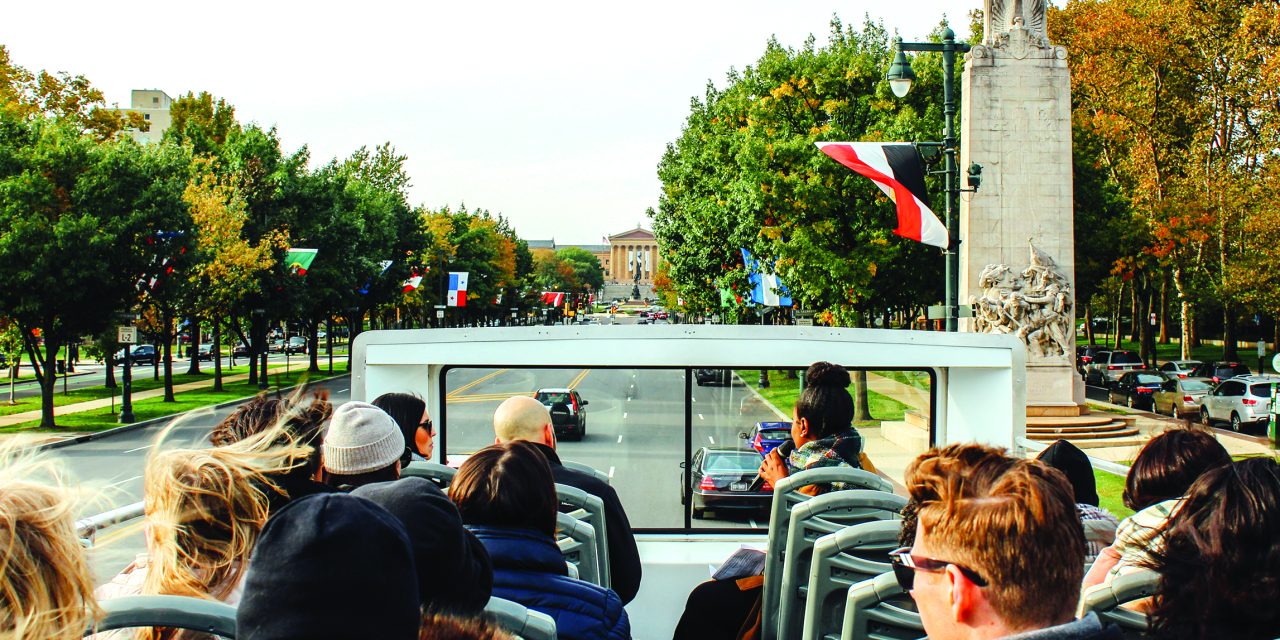
We help you craft a fun and engaging educational student itinerary packed with exciting learning in real-time settings outside the classroom
As an educator or trip organizer, educational field trip planning can be a rewarding experience if you have a clear roadmap and tips for creating an engaging itinerary. It’s crucial to design field trip itineraries that not only offer fun activities but also provide intellectual stimulation and opportunities for experiential learning. This approach fosters a deeper understanding and retention of knowledge among students.
Discover more amazing resources for student travel planners and educators when you Subscribe for FREE to Student Travel Planning Guide today.
By strategically planning your field trips, you can create a balance between educational value and exciting adventures. This approach ensures that students not only enjoy the trip but also gain maximum educational value, turning field trips into immersive and memorable learning experiences.
Here is a guide on how to craft student itineraries for field trips that are not only entertaining but truly enriching, intellectually stimulating and unforgettable.
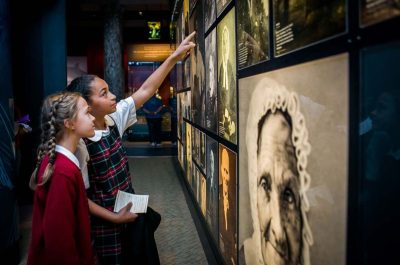
Connect Student Field Trip Activities to the Curriculum
One of the most impactful strategies to boost the educational value of a school field trip is to integrate the itinerary with your classroom curriculum. By planning your field trip in conjunction with your curriculum, you ensure that the trips content directly complements what students are studying, making their learning experience more comprehensive and meaningful.
Planning your curriculum and educational field trips together allows you to seek out destinations, landmarks, museums, parks, and experiences that directly relate to and expand upon what students are learning in the classroom. Not only are you saving yourself time by planning both together, but your curriculum can also provide a crystal-clear map for topical and sensical field trip planning.
For example, a history class studying the American Revolution will get far more educational value out of a trip to Boston steeped in significant historical sites versus a more generic itinerary that visits a history museum, which provides little experiential components.
Example itinerary for student groups:
Day 1: Start at the Boston Massacre site for an immersive historical reenactment. Then, visit the Old South Meeting House, the staging ground for protests like the Boston Tea Party. End the day at the Boston Tea Party Ships & Museum, where you can participate in interactive multimedia experiences.
Day 2: Walk the famous Freedom Trail, passing sites like the Paul Revere House, Old North Church and Bunker Hill Monument. Tour Harvard University’s historic colonial-era buildings. Have lunch in America’s oldest public park, Boston Common.
Day 3: Travel to Lexington & Concord’s Minute Man National Historical Park, witnessing the hallowed grounds where the first Revolutionary War battles occurred. Tour the Hancock-Clarke House where Hancock and Adams took refuge. Conclude at Emerson’s house and Old Manse, two historic Concord sites intertwined with the Revolutionary era.
By carefully curating a field trip itinerary that directly aligns with their curriculum, students can experience history in a tangible way. This reinforces their classroom learning and creates lasting memories that will solidify their understanding of this pivotal era in American history.
Integrate Reflective Learning for Students
Students absorb and retain more information through experiences, and reflection is a key component of experiential learning. Consider building time into the itinerary for students to reflect on what they’re seeing, doing, and learning while on the trip, while the information and experiences are still fresh.
This could take the form of journaling prompts, small group discussions, or a creative activity like drawing or photography accompanied by student impressions. Encouraging students to actively process their experiences in real-time with an activity will help them solidify what they’ve learned and integrate it into their classwork later.
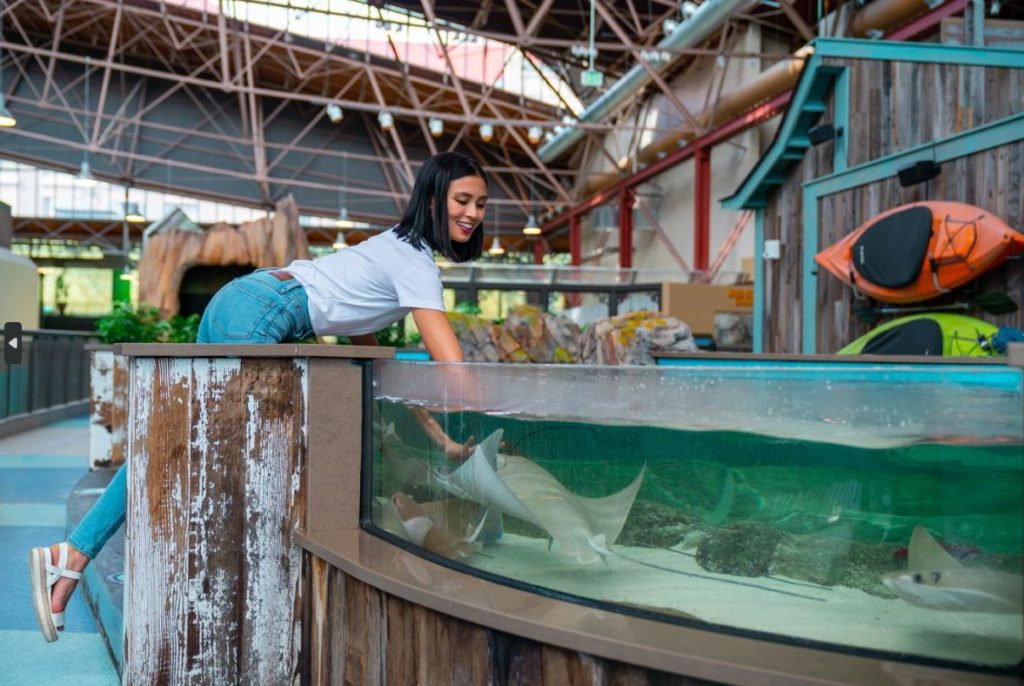
Include Cultural Immersion on an Educational Field Trip
Travel offers students incredible opportunities to experience different cultures firsthand. Whenever possible, consider including authentic cultural activities or interactions with the local community on your itinerary.
This could be a hosted meal at a local family restaurant, a neighborhood walking tour led by residents, or a school visit to meet and engage with local students. Cultural immersion fosters greater global understanding and social skills in all facets of a student’s life.
Perhaps there are cultural landmarks or museums showcasing artifacts related to the area and its people past and present. Many places of cultural significance have regional museums that provide guided tours and lectures for classes, providing an enriching experience for students while supplementing their classroom education.
Plan Hands-On Workshops for Students
Lectures and tours certainly have their place on class field trips, but students learn best by doing and engaging their left and right brains at the same time. Look for interactive workshops and classes relevant to the trip’s educational themes.
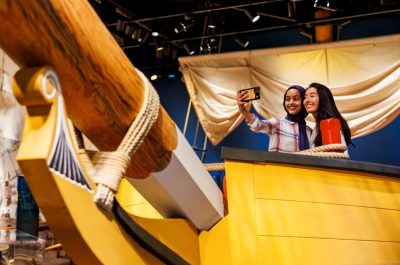
- For a marine biology-focused itinerary, check if the local aquarium offers a dissection lab for high school groups.
- Culinary arts students will gain much from a hands-on cooking class in regional cuisine for grades 8-12.
- At Plimoth Patuxet Museums in Massachusetts, students can partake in Wampanoag Workshops, learning traditional skills like hide tanning, pottery, and gardening directly from Native educators. They offer workshops for pre-k to college students .
- The National World War II Museum in New Orleans features many STEM workshops and student programs for multiple grades. They also provide Field Trip Plus for an immersive 45-minute, museum educator-led interaction for student groups grades 3-12.
- At the Museum of Science in Boston, students can participate in hands-on engineering workshops where they design, build, and test prototypes like wind turbines, ensuring an immersive STEM learning experience.
- George Washington’s Mount Vernon estate offers an interactive Colonial Classroom program, allowing students to step into the roles of students from the 18th century, practicing penmanship with quill pens and exploring early American curriculum.
The more hands-on the experience, the more impactful and memorable the learning is for your students. These are just some examples of the myriad workshops available for student groups on field trips.
Tap Local Experts for Student Groups
Enlisting local experts as speakers, guides or facilitators can elevate an itinerary’s educational quality. Reach out to university scholars, scientists, artisans, and community leaders at your destination who can share their niche expertise with students. A great place to start is your destination’s local visitors bureau.
Some examples might include:
- A geologist’s guided hike that will illuminate more than just the typical sights.
- An oceanographer could do a hands-on workshop at the lab or on the beach where children can interact with wildlife and ask questions.
- An archaeologist may organize a mock dig site and bring artifacts for students to examine while teaching excavation and preservation techniques.
- A meteorologist might conduct an interactive workshop on weather and atmospheric science.
Leave Room for Student-Led Discovery
While it’s good to have a thorough student itinerary, be sure to also give children some freedom to follow their own curiosity. Unscheduled time to explore a museum, gallery or neighborhood lets students delve into what interests them most.
Having a choice in their own learning path boosts engagement and takeaways. If a child or group of children show a keen interest in sharks while at the aquarium, have a parent or teacher stay with them for some extra time at the shark exhibit to ask questions and interact with the sharks along with the staff.

Choose Suppliers with an Educational Ethos
The vendors and suppliers you select can greatly influence a student itinerary’s educational value. Seek out accommodations, restaurants, tour providers and activity partners that share your learning objectives. Many vendors and suppliers offer educational programs or content designed specifically for student groups. Ask about customized classes or tours aligned with your curriculum.
With a learning-centric approach to student itinerary design, class trips become more than just a fun getaway—they’re a meaningful extension of the classroom. Educational travel helps students develop critical thinking, cultural sensitivity, a broadened worldview and curiosity that will serve them well at school and beyond for years to come.
Did you enjoy this content? For more tips on crafting impactful student itineraries, Subscribe for FREE to our Student Travel Planning Guide today.
By Ashley Dale, Contributing Writer and Homeschooler
Header photo: Big Bus Tour courtesy of PHLCVB/K. Huff
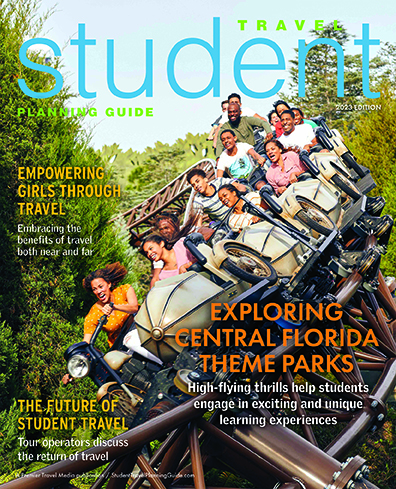
RECENT STUDENT TRAVEL PLANNING GUIDE ARTICLES


Top 20 School Trip Ideas
Written by Dan
Last updated February 13, 2024
Teaching can be a gratifying job, and it’s even more fun when you get the chance to take your students on a school trip. Trips are a great way to connect with your students while they learn something new outside the classroom—something that will stay with them for years to come.
But as any teacher knows, planning a successful school trip can be challenging in terms of organizing transport and activities and finding one that fits your budget.
That’s why we’ve put together this list of top 20 school trip ideas, which are full of fun learning opportunities for all ages at different price points so teachers everywhere can take their classes on an unforgettable educational journey!
Related : For more, check out our article on Top 20 Assembly Ideas here.
Table of Contents
School Trip Idea 1: Local Museums.
A day spent exploring a local history museum, art museum, science centre, or planetarium can be both educational and fun. Students can learn about different cultures and periods, as well as gain an appreciation for the work of artists and scientists past and present.
School Trip Idea 2: Outdoor Adventures.
Nothing gets students outdoors like a school trip to a campground or state park. Kids can explore nature while learning about the environment, and they’ll get to try new activities like canoeing, rock climbing, zip-lining and more!
School Trip Idea 3: Cultural Destinations.
Embark on an educational adventure at a cultural destination such as a historic site, a cultural centre, or an archaeological site. Students can explore the customs and beliefs of different cultures, gain insights into people’s lifestyles in other countries and periods, or even participate in interactive workshops to learn about various topics.
School Trip Idea 4: Farm Visits.
One for younger kids! Farms offer the perfect opportunity to explore nature up close and personal. On a farm trip, students will learn about the importance of sustainable farming practices, animal husbandry, and healthy food choices. Plus, they can have plenty of fun collecting eggs or feeding animals!
School Trip Idea 5: Aquariums & Zoos.
Aquariums and zoos offer a wealth of educational opportunities for students. Kids can learn about animals in their natural habitats and uncover the ocean’s mysteries and inhabitants. Plus, it’s always a treat to see some incredible wildlife up close!
School Trip Idea 6: Art Galleries & Historic Sites.
Immerse yourself in art and history by visiting an art gallery or historic site. Here, students can explore the works of famous artists, view unique artefacts from centuries past, and gain a greater understanding of different cultures and traditions worldwide.
School Trip Idea 7: Theater & Dance Performances.
Encourage appreciation of the performing arts by taking your students to a theatre or dance performance. Not only will they be exposed to different forms of art, but they’ll also pick up on important lessons about collaboration, communication, and expression.
School Trip Idea 8: Amusement & Theme Parks.
Give your students a thrilling educational experience at an amusement or theme park. Here they can learn about physics and engineering while riding rollercoasters, find out what it takes to run a successful business by exploring different attractions and practice mathematics by figuring out the cost of rides and food.
School Trip Idea 9: Sports & Recreation Facilities.
Take your students to the sports facility for a day of physical activities. Not only can they get some exercise, but they’ll also learn about teamwork, competition and fair play. Plus, it’s an excellent opportunity for kids to develop skills like problem-solving and coordination.
School Trip Idea 10: Factories & Industrial Sites.
Bring your students to a factory or industrial site and watch how things are made. Here they’ll learn about the manufacturing process, discover the importance of safety measures, and gain insights into the production of everyday items.
It’s an eye-opening experience that can help them understand the value of hard work and effort.
School Trip Idea 11: STEM Centers.
A trip to a STEM centre is an excellent opportunity for students to explore science, technology, engineering and mathematics in a hands-on environment. Kids can participate in interactive workshops, build robots or learn about coding—all while having fun!
School Trip Idea 12: National Parks.
Give your students a chance to experience nature in all its glory at a national park. Here, they can observe the wildlife, explore different ecosystems and gain insights into conservation efforts. Plus, there are usually plenty of activities for them to try, like camping, hiking and canoeing.
School Trip Idea 13: Local Rivers and Streams.
To help kids understand the importance of conservation, take them on a trip to a nearby river or stream. Once there, they can collect data about water quality and identify different species of fish and plants. Plus, it’s always fun fishing or playing water games!
School Trip Idea 14: Transport Museums.
Give your students a fascinating glimpse into transportation by taking them to a transport museum. Here they can learn about the history of different modes of transport, explore how vehicles are made and operated, and gain insights into the science behind motion and energy.
School Trip Idea 15: Planetariums & Observatories.
Take your students to a planetarium and observatory for an unforgettable experience. Here they can learn about the stars, planets and galaxies, as well as fascinating facts about solar systems and astrology. Plus, they’ll have a chance to use telescopes and gaze up at the night sky!
School Trip Idea 16: World War Historical Sites.
To help your students understand the impact of World War II, take them to a nearby historical site. Here they can learn about important battles and key figures from that era, better understand different political ideologies and gain insights into how wars are fought and won.
School Trip Idea 17: International Trips.
Take your students on an international trip and give them a taste of another culture. Here they can explore different customs, sample exotic cuisines, learn about foreign languages and appreciate the beauty of other countries. It’s sure to be an unforgettable experience for everyone!
School Trip Idea 18: Profesional Sports Games.
Bring your students to a professional sports game and give them a chance to cheer for their favourite teams. Not only can they learn about the game’s rules, but they’ll also experience the energy and excitement of watching live sporting events. It’s sure to be an unforgettable experience!
School Trip Idea 19: Charity Events & Fundraisers.
Let your students give back by taking them to a charity event or fundraiser. Here they’ll learn the importance of helping others and gain insights into how even small contributions can make a big difference.
Plus, it’s an excellent opportunity for kids to develop teamwork, competition and public speaking skills.
School Trip Idea 20: Business Tours.
Take your students on a business tour and let them explore the world of entrepreneurship first-hand. Here they can learn about different industries, gain insights into how businesses are run and even meet entrepreneurs who can share their inspiring stories. It’sIt’se to be an invaluable experience for all!
School trips are an excellent way to help students develop essential skills and gain fresh perspectives. From national parks and observatories to charity events and business tours, plenty of exciting options can create an educational and unforgettable experience.
With careful planning and consideration, you can make a successful school trip that will benefit your students in many ways.
So what are you waiting for? Start planning your next school trip today!
Related Posts

About The Author
I'm Dan Higgins, one of the faces behind The Teaching Couple. With 15 years in the education sector and a decade as a teacher, I've witnessed the highs and lows of school life. Over the years, my passion for supporting fellow teachers and making school more bearable has grown. The Teaching Couple is my platform to share strategies, tips, and insights from my journey. Together, we can shape a better school experience for all.

Join our email list to receive the latest updates.
Add your form here

Step by Step Guide to Planning a School Trip
It's no secret that teaching is a stressful job and you put in countless hours outside the classroom that goes unnoticed by many.
If you've taken on the extra responsibility of planning a school trip, this step-by-step process will make this as simple and pain-free as possible.
Step 1: Decide where to go and what the focus of the trip will be
Understanding the curriculum and educational goals of your trip as well as the interests of your students is the first important step. Shortlist two or three destinations that fit your educational goals while keeping in mind that it needs to be something parents will support, and students will want to go on.
Step 2: Obtain Approval
Getting approval is an essential step, and if you’ve done a thorough job with step one, this will assist you now. Going to your relevant school officials with an outline of what you achieve and a sample itinerary is the best way to do this. You can download one of our sample itineraries here .
Step 3: Set a Budget
Once approval has been granted request a quote for the itinerary that you have selected, keeping in mind that you can make changes to it to suit your school’s individual interests. To get the most accurate quote, have approximate dates ready and your best guess at teacher and student numbers. It makes sense to add a buffer to the price you quote to parents as numbers can unexpectedly change.
Step 4: Information Evening
An information evening is the best way to gauge an idea of how many students are going to sign up for this trip. You will be joined either online or in person by our expert team who will be able to answer any question that parents or teachers have. This evening is pivotal to the success of the trip and it is best to right away ask for expressions of interest once the evening is complete.
Step 5: Make the Booking
Once you have a clear idea of the numbers it is time to make the booking. You just let us know you want to proceed and we will make all your bookings from flights, accommodation, attractions, and specified meals. Any information that we need from you will be clearly communicated with timelines outlined so there are no surprises along the way.
Step 7: Risk Assessment
Plan for safety and emergencies by creating a detailed risk management plan. Your school will likely have a template for you to work off and should include such things as emergency contact information, medical needs, and contingency plans.
Step 8: Enjoy Your Trip
While it may not quite be a holiday for you, it is still rewarding to get out of the classroom and get to know your students in a different environment. All the planning and work will be worth it as you see the trip come to life. Also, you’ll have our tour manager with you the whole time, which means less stress and more time to take in the experience.
Get 17 Inspiring School Trip Ideas When You Join Our Mailing List
When you sign up to our mailing list, you will taken to our school trip brochure web page immediately, and you agree to your details being used for marketing in line with our Terms & Privacy Policy .
Don't miss these stories:
Tips and tricks on planning an educational school tour
The top space experiences students can experience on a school trip
The ultimate top five experiences that a student can experience on a school trip.
Get fascinating insights on planning and running a school trip!

The air holidays and flights shown are ATOL Protected by the Civil Aviation Authority. Our ATOL number is ATOL 9231. www.atol.org.uk

Educating Adventures™ is part of the Educating Adventures™ Group

03 December 2021
The Ultimate Guide to Organising School Trips
Our ultimate guide to organising school trips will tell you everything you need to know about organising your own school trip..

We’ve been helping busy teachers (like you) to arrange school trips for nearly 40 years. So, we know that school trips take a lot of work to organise.
We’ve put this guide together to take you through all the key steps in planning your school trip. And we’ve included some useful hints and tips that we’ve picked up over the years.
We hope you find it useful. And don’t forget, we’re here to support you every step of the way – so, just get in touch if you need us.
What are the main steps to organising a school trip?
- Think about your school trip
- Get your school trip approved
Get parents on board
- Launch your school trip
- Start your trip admin
- Plan the finer details
- Make the final arrangements
- Get ready for your school trip
In this guide, we cover all of these steps and more.
Think about your trip (usually 12-18 months before departure)
Start planning early.
Our number one tip for planning school trips is to start planning as early as possible .
Here’s why:
- You'll have a better chance of securing your preferred dates, transport, accommodation etc.
- It'll make your trip more affordable for your students (by giving them longer to pay for it).
- It'll make your life much easier by giving you plenty of time to plan your trip (and collect all the information you need from students and their parents).
- You'll get a head start on the competition from other trips - if another department is likely to run a trip targeting the same pool of students, planning early will mean you get in there first.
Decide what you want from the trip
Of course, you know why you want to run this trip. But making sure you have really clear objectives can save time (and avoid headaches) when planning the itinerary.
Obviously, you’ll also need to be clear on your budget, the dates you can go and the duration (all of which you’ll need to check with your school).
You’ll also need to know the staff:student ratio required by your LEA or school, so you know how many members of staff you need to take.
Just so you know, we usually base our quotes on the following free-place ratios:
- 1:8 for coach trips
- 1:10 for trips by air
But if you need a different ratio, just ask us.
Decide whether to organise your trip yourself or go with a tour operator
You could organise your trip yourself. But there are many reasons why it makes sense to use a specialist school tour operator (like us).
Make sure you and your group are properly protected.
Choosing a fully-accredited school tour operator (like Halsbury Travel) means your group will be better protected if something goes wrong.
Of course, sometimes the unexpected does happen - but we’ve got a proven track record in quickly finding solutions, so you won’t be left to deal with it on your own.
And our ABTA and ATOL protection means that your trip is financially protected.
Avoid the trip taking over your life
Choose to work with a specialist school tour operator and they’ll take on the bulk of the organisational tasks (like booking accommodation, travel, meals, entrance tickets etc.).
We do this kind of stuff on a daily basis – so please do make use of us to make your life easier.
If your tour operator also happens to be a member of the School Travel Forum (like us), then they’ll have a Safety Management System in place and will hold a Learning Outside the Classroom Quality Badge.
Why does that matter? Well, it’ll drastically reduce the amount of paperwork you need to do and can form part of your risk assessment.
Plus, you won’t need to seek further assurance that they actually provide the quality of tour they advertise (the LOtC Quality Badge confirms they do), and you can be sure your group’s health and safety will be prioritised.
Nothing will get 'lost in translation'
We’re multilingual at Halsbury, so we can speak to suppliers in their own language and avoid any misunderstandings.
And we’ve worked hard to build good relationships with them, so that we can get the best for our groups.
Feel supported every step of the way
We know how much responsibility it is taking a group of kids abroad. So, perhaps the most important reason to choose a school tour operator is that you’ll be supported every step of the way.
Decided to go with a tour operator? It’s time to get a quote!
Got several quotes?
The key thing to remember is to make sure you’re comparing like-for-like.
Check out our top tips in our guide to comparing quotes .
Get your school trip approved (usually 12+ months before departure)
Ready to present your school trip proposal? You’ll need to answer a few key questions.
What’s the value of your trip?
If you’re travelling during term time, you’ll be asking to take students and a number of staff off timetable for several days. And if you’re planning on travelling during the holidays, you’ll be asking colleagues to give up their well-earned rest.
Either way, you’ll need to demonstrate that your trip is worth it.
It should be fairly easy to explain the educational value of your trip – after all, you’ll have chosen it to support your learning objectives.
But don’t forget about the other benefits that school trips abroad offer – like greater independence and responsibility, and deepening intercultural understanding.
And there are specific benefits for music tours, sports tours and ski trips, of course.
We’ve created a video and a PowerPoint presentation to help get you started with this.
How will you keep the students safe?
You’ll need to show that you’ve considered how you’ll ensure the health and safety of your group and this ultimately means performing a risk assessment .
Unfortunately, we can’t do your risk assessment for you – only you know your group’s requirements.
But booking with a school tour operator that’s an Assured Member of the School Travel Forum and holds a Learning Outside the Classroom Quality Badge (like us) will significantly lighten your workload.
We’ll explain more about risk assessments later in this guide.
How reliable is your chosen tour operator?
You’ll need to show your chosen tour operator is reputable, fully accredited and will prioritise the health and safety of students.
If you’ve chosen Halsbury Travel as your tour operator, you may find this handout useful.
See more of our top tips.
To get students signed up to your trip, you’ll need to get their parents on board.
You’ll have to convince them of two main things - that the trip is worthwhile and their kids will be safe.
But first, you need to let them know the trip is happening. Here’s a sample letter you can send home with students.
And you’ll probably want to hold a parents’ evening too – here’s a PowerPoint template to help you with this.
What will parents want to know?
Why should i send my child on this trip.
Explain to parents the academic reasons you want to run the trip, but don’t forget the other benefits of school trips – like greater independence and broadening their horizons.
How has the trip been organised?
Parents want to know that their money will be protected and (most importantly) that their children will be safe – and this means they’ll want to know about the tour operator you’re using.
If you’re travelling with us, download our handout , which should help to reassure parents.
Will my child’s medical and dietary requirements be catered for?
Of course, the answer is yes.
But make sure you let parents know that they need to tell you about any medical or dietary requirements ASAP, so we can make sure that everyone that needs to be is aware of these.
How are we going to keep in touch?
Will you be posting updates on social media ? This can be a great way to reassure nervous parents.
And let them know if kids can bring their phones on the trip (and any rules they’ll need to follow). Remind them to look into roaming charges and let them know that lost or damaged phones may not be covered on the insurance.
Finally, make sure they know how to get hold of you in an emergency, and vice versa.
See more tips >>>
Launch your trip (usually about 10-12 months before departure)
Create a buzz around your trip.
Put posters up around the school promoting your trip and make sure it’s mentioned on the school’s social media accounts too.
Have you run the trip before? Then make sure you share pictures and videos from previous trips (so your students can see how much fun they’ll have).
And if any of the students who have previously been on the trip are still at school, why not invite them to come and talk to your current group about the great time they had?
Struggled to get numbers in the past?
Limit the number of places on the trip – the competitive element could encourage more students to sign up.
And consider teaming up with another department to make the trip cross-curricular (opening it up to more students).
Social media is a great way to keep parents up-to-date in the lead-up to the trip and while you’re abroad.
Think about which channels are most appropriate. Most of our Group Leaders tend to use either Facebook or Twitter, although more are starting to use Instagram too.
Decide whether you’re going to use the school’s main account or if you’re going to set up an account specifically for your trip.
If it’s an annual event, a trip-specific account can be a great way of showing how fantastic past trips have been when getting students signed up for the next one.
Tell parents about your social media accounts and how you intend to use them (such as reminding them of deadlines and meetings, sharing packing checklists and updating on your ETA back at school).
Just remember that not all parents will be on social media, so don’t make this the only place you share information.
Plan fundraising activities
Get students fundraising for your trip – it’ll make it more affordable for parents and gives the kids lots of opportunities for personal development.
Activities such as bake sales, raffles, car washes, car boot sales, bag packing and even crowd funding can be great ways to raise funds for school trips .
Start trip admin (usually 8-10 months before departure)
Confirm passenger numbers.
You’ll now need to confirm how many people will be travelling in your group.
Put together a payment schedule for parents
Once we’ve got your final numbers, we can issue your invoice, which will have clear payment deadline details.
Provide parents with a payment schedule that makes sure you meet the deadlines on your invoice (giving them the information as early as possible will help them to budget for the trip).
Send us your booking form and passenger info
We’ll now need you to submit your initial Air Passenger List, as well as your booking form.
Plan the finer details of your trip (usually 6-8 months before departure)
Start planning your itinerary.
You’ll now start working closely with your dedicated Itinerary Coordinator to start planning your itinerary. They’ll make sure that your trip includes activities that support your learning objectives and provide plenty of ‘wow’ moments.
Host another parents' evening
As well as giving parents loads of information about your trip, this is your opportunity to let them know what you need from them.
This includes:
- Passport info (you'll need this to complete the Advanced Passenger Information form)
- Medical and dietary requirements (for your risk assessment and so we can make suppliers aware ASAP)
At this point, it’s also a good idea to remind parents to check visa requirements.
British citizens can check the website of the British Foreign, Commonwealth & Development Office (FCDO) for the most up-to-date information.
Any non-British citizens in your group should check requirements with the relevant embassy as soon as possible, so they have enough time to arrange a visa (if one is required).
Request medical and dietary requirements
Not only will you need these to complete your risk assessment, we also need to make suppliers aware of these well in advance, to ensure that those students with medical or dietary requirements are sufficiently catered for.
Start your risk assessment
What needs to be included?
You’ll need to follow the guidelines provided by your school and LEA.
We can’t do the risk assessment for you, because we don’t know your group like you do.
But using a reputable tour operator like Halsbury Travel can significantly reduce your workload – as an Assured Member of the School Travel Forum we’ve got a Safety Management System that can form part of your risk assessment.
You’ll still need to do a risk assessment if you’ve run the trip before as the group you’re taking will have different requirements. But you can use past risk assessments as a framework to speed up the process.
Our ‘ Generic Risk Assessments for School Educational Visits ’ and ‘ Demystifying Risk Assessments ’ guides are a great starting point for your risk assessment.
Check out our guide to risk assessments for more information.
Make the final arrangements (usually about 1-3 months before departure)
Finalise your itinerary .
It’s time to finalise the details of your itinerary with your Itinerary Coordinator. As well as booking activities and visits, you’ll also need to make menu selections for meals.
Finish paying for your trip
Once your itinerary’s finalised, the final balance payment will be due.
Host your final parents’ evening
It’s a great idea to host a final parents’ evening to make sure parents and guardians have all the information they need.
You’ll be able to share the final itinerary, check they understand the luggage restrictions (so you don’t have any airport dramas) and make sure they know what their kids need to bring on the trip.
You can also remind them of some key things, like how to contact you in an emergency, whether you’ll be posting updates on social media and whether kids can bring their phones.
Complete any remaining risk assessment requirements
This is your final opportunity to complete your risk assessments. If you need any information from us, please get in touch with your Itinerary Coordinator, who’ll be pleased to help.
Complete the rooming list
Pro tip - sort out your rooming list before you travel. It’ll save you so much time and hassle, and means everyone can just head to their rooms when you get to your hotel.
Get ready for your school trip (1-2 weeks before departure)
Get your final info pack.
Everything you need for your trip will be in your final info pack.
This includes 24-hour emergency contact numbers, so you know you can speak to us any time you need to.
And make sure you download the Vamoos app – this will give you access to all your trip documents from your phone or tablet.
Pack your bags
Download our packing checklists so you don’t forget anything essential – there’s one for students and one for teachers.
Don’t forget to remind students about the luggage allowance.
The journey begins...
Travelling by coach.
Make sure you pack plenty of drinks and snacks - but do check with the driver whether you can snack on the coach or need to wait for comfort breaks.
Water’s the best drink for a long coach journey. And it’s a good idea to bring along some extra in case of a heatwave or breakdown.
Avoid chocolate, crisps and sweets, which can be messy and will generally make students hyperactive or thirsty. Fruit and nuts (as long as no one is allergic) are much better options.
Wear something comfy - and layers are a great idea, especially if travelling overnight, when temperatures can drop quickly.
Plan some activities to help the journey go a little quicker. That could be watching a film, a coach quiz or even a singalong (if you’re feeling brave).
For long coach journeys, eye masks, ear plugs and neck pillows are great for helping you get some much-needed rest.
And don’t forget the housekeeping! As any teacher who has ever taken a coach trip with students knows - always pack air freshener, bin bags, wet wipes and kitchen roll…
See more tips for coach trips.
Remind students that customs and security at airports are taken very seriously - officers are unlikely to have the same sense of humour as a group of teenagers.
Have a copy of everyone’s boarding pass and passport. And leave a copy of everyone’s passport with the school office (just in case).
It can take longer than you might think to herd a large group through an airport, especially at the check-in desks and security. So, make sure you get there in plenty of time.
Remind your group of the rules around hand luggage. And tell students to say they packed their own bag (even if mum did it) - we’ve had kids held up at security before for giving the ‘wrong’ answers.
Divide your group into smaller groups with a staff leader – it’s easier to navigate the airport this way.
Staff should then designate a group base in departures for students to check in to regularly if you plan on giving them some free time before boarding. Don’t let students wander around alone – it’s best if they stay in groups of 3-4.
A WhatsApp group for staff to keep in touch at the airport is a great idea – and most airports offer free WiFi.
Avoid chaos at baggage reclaim – either send one ‘mini-group’ up at a time or pick a team of baggage pickers. This is much easier if you’ve tagged all your bags with something quickly recognisable, like a ribbon, strap or sticker.
See more airport tips.
Any other tips?
Money-saving tips for cheaper trips.
Choose transport carefully – travelling by coach is usually cheaper than flying and it’s better for the environment.
Pre-book meals at your accommodation rather than eating out. You can book packed lunches too, so you don’t risk ending up in a café or restaurant with over-inflated tourist prices.
Be flexible about when you travel . Most things in the travel world run on a high and low-season basis. So, travelling any time between September and March (and during term time, if you can) will be much cheaper than at any other time of year.
Think about the day of the week that you travel. The most popular day of the week for travel is Friday so, as an example, there’s a supplement of £1 a person for Friday ferry crossings.
See more money-saving tips.
Continue the learning back in the classroom
The end of your trip isn’t the end of the learning journey.
Keep the momentum by getting your students to do some post-trip activities, like:
Write a trip diary – Get them to think about why they went there and what they learned. You could even submit this to the local newspaper - which would be great PR for the school.
Create a short film or collage – This is a great idea if your students took lots of photos and videos of the trip.
Do an assembly - Give your students some great public speaking practice by challenging them to speak about the trip in an assembly. They could work together as a group and put together a slide show of some of their photos.
Build on their language skills - If it was a languages trip, ask them to write a trip diary in the target language or prepare a short presentation.
Ready to start planning?
Yes, send me a tailor-made quote!
- Forms for Educators
- Apply for a discount
- Sign Up for Free

- Educational Technology
How to plan a school field trip
Steps to planning a school field trip
- Commit to early planning
- Decide on your destination
- Get buy-in from administrators
- Contact the site
- Arrange transportation
- Plan food options
- Recruit chaperones
- Prepare students for the trip
- Get permissions from parents
Students love field trips — especially since they break up the normal school routine — but they’re often stressful for the educators who have to plan them. Pulling off a successful school field trip requires an enormous amount of preparation and organization, but it all translates into a rewarding educational experience for participants that has a long-lasting, positive impact.
According to a study cited by the National Education Association , students who took part in school field trips had better grades and graduation rates from both high school and college. They also eventually earned a higher income than their counterparts who hadn’t participated in such trips as students.
The hands-on, experiential learning students get from school field trips delivers a lot of other benefits — like increased knowledge retention, a more developed sense of independence, access to other cultures that broaden students’ horizons, and the chance to bond with other students and create life-long memories.
And the planning part? It doesn’t have to be daunting if you start early. Plus, we’re making it a little easier by giving you nine tips for organizing a successful school field trip and 23 field trip ideas.
9 steps to planning a successful school field trip
1. commit to early planning.
The earlier you begin planning, the less stressed you’ll be if and when obstacles arise. There are a lot of details to iron out, such as
- Researching and selecting a destination
- Getting feedback from administrators, parents, and students on the destination
- Planning the educational portion of the trip
- Getting parental permissions
- Arranging transportation
- Figuring out a meal plan
- Recruiting chaperones
Giving yourself a long lead time will help you tackle any unexpected snafus along the way.
2. Decide on your destination
Do some initial research and brainstorm potential school field trip destinations based on your learning objectives and curriculum goals. Consider location, cost of entry and parking, the ages and number of participants, the duration (e.g., a day-long excursion or an overnight trip), and any other key details that factor into the selection of an appropriate field trip destination.
Once you come up with a couple of good options, get feedback from colleagues, administrators, parents, and, if appropriate, the students themselves.
3. Get buy-in from administrators
Once you’ve decided on the ideal location for your field trip, be sure to get clearance from the appropriate administrators before you discuss trip details with students. You don’t want to get their hopes up if the administration rejects your carefully laid out plans!
Share the costs, the benefits of the trip for students, the days and times for the trip, and any other relevant details to help get the administration on board.
4. Contact the site
Once you have a “yes” from the powers that be, get in touch with the site and confirm that your preferred days and times are available. Make reservations if necessary, find out about group rate discounts and cancellation policies, pay any required deposits, and verify the site is accessible to those with disabilities. You can also share the number of children that will be in attendance and the special needs your students have, if any.
If it’s possible, conduct a site visit before the trip to get the lay of the land, locate the restrooms, note where students will be eating lunch, and any other relevant information it would be helpful to know before the field trip.
5. Arrange transportation
Now that you know where you’re going and when, it’s time to plan how you’re going to get there. You’ll likely travel by school bus, but if your group is smaller, you might get there in staff vehicles or even via public transportation. If you’re using school buses, you’ll need to reserve them in advance to be sure they’re available the day of your excursion, and you’ll have to fill out the required forms.
6. Plan food options
Of course, a day-long outing is going to require some serious planning, because no one wants a bunch of hungry kids on their hands!
There are a few options for food. Students can bring their own lunches, which can make things easier for everyone. Or you can make plans to eat at an onsite restaurant or cafeteria if one is available (which you may be able to reserve in advance).
Then there’s the option of eating at a restaurant, which might be the least palatable choice, given that kids might get unruly, you or they will have to handle money, and ordering could take a long time.
7. Recruit chaperones
Depending on the age of your students and the activities you’ve planned, it’s best to have a ratio of at least one adult to every 10 kids. If the students are younger, you may want more adults present.
You’ll need to recruit and confirm chaperones at least two to three weeks in advance, and be sure you have a list of alternates in case a chaperone has to drop out for any reason. Be clear with your chaperones that this is an educational trip and clearly share what you need them to do.
8. Prepare students (and parents) for the trip
Once all of your plans are in place and everyone’s excited, it will be time to share trip details with students and parents, and let them know what’s expected of them.
Hold an informational meeting for parents to discuss trip details, chaperone information, and rules and expectations regarding students.
Share trip rules with students and be clear about appropriate behavior. Let them know what the day’s itinerary looks like, what to bring, what to wear, and what not to bring (for example, anything of value that could get lost or stolen).
9. Get permissions from parents or guardians and automate the process where possible
Gathering permission slips from parents for school field trips is essential. Jotform can help simplify the process. If you want some tips to make this easier, check out our guide on how to collect online permission slips from parents .
We’ve also made it easy to automate your field trip planning with all the forms, tables, and templates you need for a successful school field trip:
- Field trip interest form
- Field trip permission form
- Field trip approval request form
- Field trip signup sheet
- Field trip permission slip template
And last, it probably goes without saying that you should be prepared in case you run into any emergencies. Bring along an emergency or first aid kit, and keep a list of parent contact information on hand.
Now that you have your planning to-dos sorted, how about some field trip ideas?
23 field trip destination ideas
Here are a few destinations that would make ideal learning experiences for students, depending on your curriculum goals and objectives:
- Botanical gardens
- Nature centers, bird sanctuaries, and wildlife refuges
- State and national parks and other natural attractions
- County and city parks
- Farms, orchards, greenhouses, and nurseries
- Community gardens
- Historic sites
- Planetariums
- Art galleries
- Cultural centers
- Radio and television stations
- Newspaper or local publication offices
- Police and/or fire stations
- Animal shelters
- Behind-the-scenes theater tours
- State Capitol Building and/or county buildings
- Local businesses
- Colleges and universities
If an onsite field trip isn’t feasible, you can plan a virtual school field trip as an alternative. Many of the organizations above can provide this service via video, guest speakers, demonstrations, or other presentations. Our handy virtual field trip registration form can get you started.
Try Jotform
Because Jotform loves educators, we have special pricing plans just for you. Get started today and receive a 50 percent educational discount for any paid plan . We have three plans to suit your needs:
- Bronze costs just $34 per month and includes 25 forms and 1,000 monthly submissions.
- Silver is $39 per month with 50 forms and 2,500 monthly submissions.
- Gold costs $99 per month and includes 100 forms and 10,000 monthly submissions.
We also offer a 30 percent discount on Jotform Enterprise for educational institutions. This powerful multiuser plan allows you to create beautiful, customized forms and protect response data securely online.
Hopefully, these nine steps, plus Jotform’s many resources for educators, will help you plan a stress-free school field trip that has a long-lasting, positive impact on everyone involved.
Photo by Norma Mortenson
Thank you for helping improve the Jotform Blog. 🎉

RECOMMENDED ARTICLES

What is Educational Technology?

How to collect online permission slips from parents
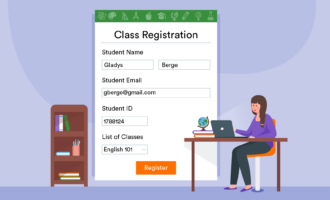
11 best class registration software solutions for 2024
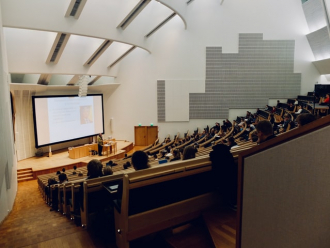
The 7 best student management systems

How to improve feedback in the classroom

Learning analytics in education

Blooket vs Kahoot!: Comparing interactive learning platforms

3 Types of Feedback You Should Be Collecting From Your Alumni

Quizizz vs Kahoot!: Choosing the right quiz platform

What is EdTech and what are its benefits?
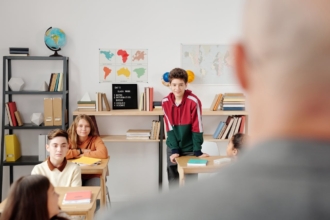
3 Google Classroom alternatives to elevate online education for 2024

How technology can help teachers recruit more parent volunteers

10 tips for healthy parent-teacher communication
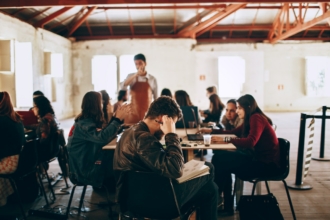
The benefits of admissions and enrollment management software

How to create an online lecture
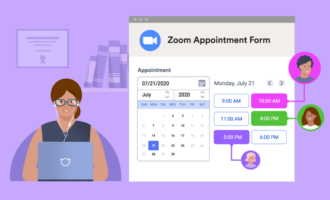
How to offer virtual office hours to your students
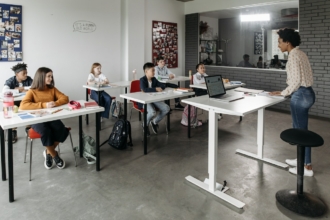
Top 5 Kahoot! alternatives in 2024

Top 15 learning management system examples

How to Use Jotform for Education (Movie)
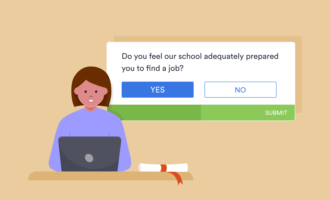
20 questions to ask alumni

How EdTech supports inclusive classrooms

How teachers can help narrow the digital divide

How online tools provide more individualized lessons

11 ways to use Jotform for distance learning

5 tips for creating a virtual learning environment

How digital tools can help teachers collaborate on lesson plans

How to become a better online teacher

How to organize a read-a-thon fundraiser

How to incorporate tech in the humanities
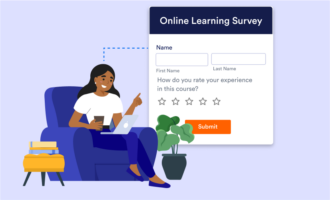
Online Forms: A Teacher’s Best Friend
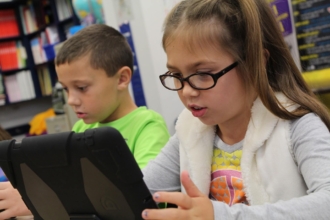
4 educational technology tools transforming the classroom
The pros and cons of academic tracking

5 Jotform Widgets to Utilize This School Year

How to embed a form on a Thinkific page

Top 5 classroom polling tools to engage students

How to host a virtual open house for your school
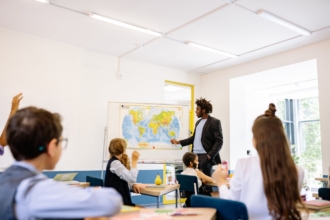
Gamifying your curriculum with Blooket vs Gimkit

11 kindergarten teacher blogs that will inspire you (and make you laugh)
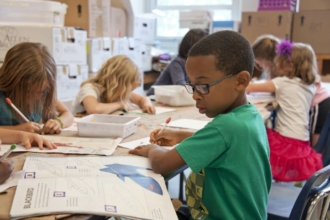
Student survey questions: A guide for teachers

Quizizz vs Quizlet: A close-up look at 2 top quiz tools

How to use Schoology

Top 7 Quizlet alternatives in 2024
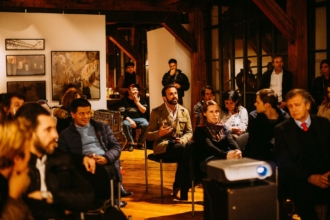
26 questions to ask at a parent-teacher conference

How teachers can sort through EdTech tools

Moodle LMS pricing: Which plan fits your learning journey?

13 of The Most Common Online Forms for Higher Education
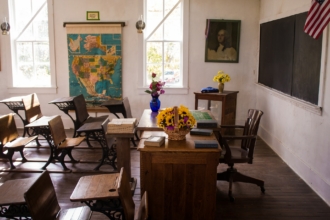
Google Classroom vs Canvas: Features, pricing, and more

Top free software for students

EdTech 2020: 5 classroom technology trends to watch

EdTech in 2025: A glimpse into education’s future
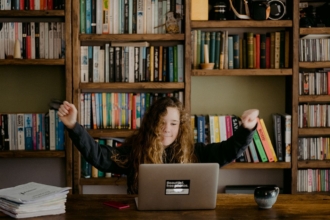
Top 7 online learning resources for kids and adults

What is a learning management system?
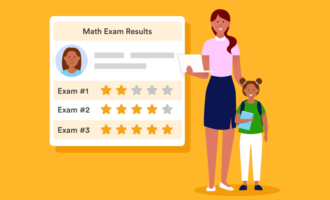
How a Teacher Uses Jotform to Help Her Students

7 presentation tools for teachers

35 top course evaluation question examples

Safe and private: How to use forms to facilitate social justice conversations with students

Top 5 online assessment tools for teachers

Webinar: 6 ways Jotform Enterprise can help your school do it all

10 educators you should follow on Twitter
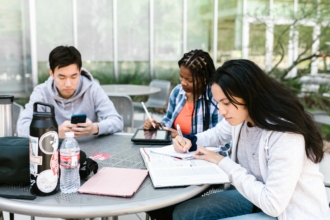
How to monitor student progress in special education

15 podcasts for teachers to further professional development

4 sanity-saving ways for teachers to update parents
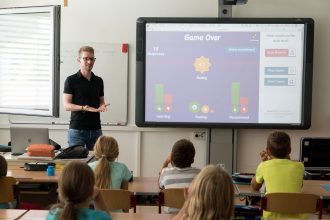
Automated schools: 7 school processes you can automate

How to hold virtual parent-teacher meetings on Zoom

9 of the best apps for parent-teacher communication
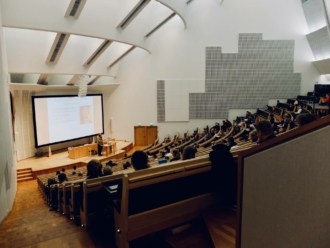
How to add a Google form to Schoology
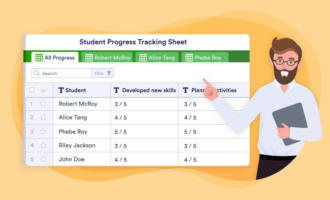
How to track student progress
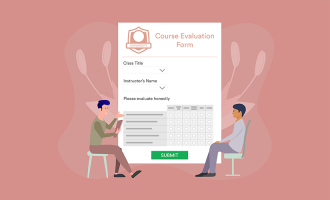
The top course evaluation questions to ask students

Create digital reading logs for students with Jotform

Why is data important in education?

6 Jotform Features to Use for Back-to-School

Using tech to keep students with food allergies safe

Top teacher survey questions you need to ask

What is a virtual classroom?

How a Growing Language School Enrolls New Students

How student data helps teachers and administrators plan for continuous improvement

The best software for teachers

10 best K–12 student information systems
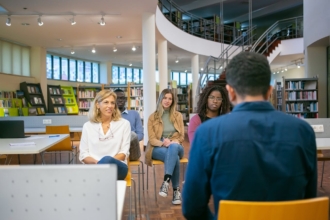
Cloud computing in education: An overview

How to engage your alumni to support your school

6 Kajabi alternatives for offering online courses in 2024

The best 26 teacher apps in 2024

How to create a remote learning plan

7 virtual classroom software solutions for 2024

The 5 best online teaching platforms in 2024

8 top trends in higher education to watch in 2024

Quizlet vs Kahoot!: A comparative guide for educators

5 benefits of online learning

The best 31 websites for teachers

Use These Apps to Improve Your School’s Efficiency

How to encourage digital creativity this school year

How to minimize the disruption of school campus tours

7 higher education apps to be more efficient in 2020

What’s the best classroom response system?

4 tips to help you adjust to unexpected lesson plan deviations

Sending Your Graduation Party Invitations with Jotform

How to create a successful virtual learning experience

Data privacy 101: How to safely use cloud tools this school year

5 EdTech companies helping students and educators

How to optimize an IEP meeting: 5 best practices
Send Comment :
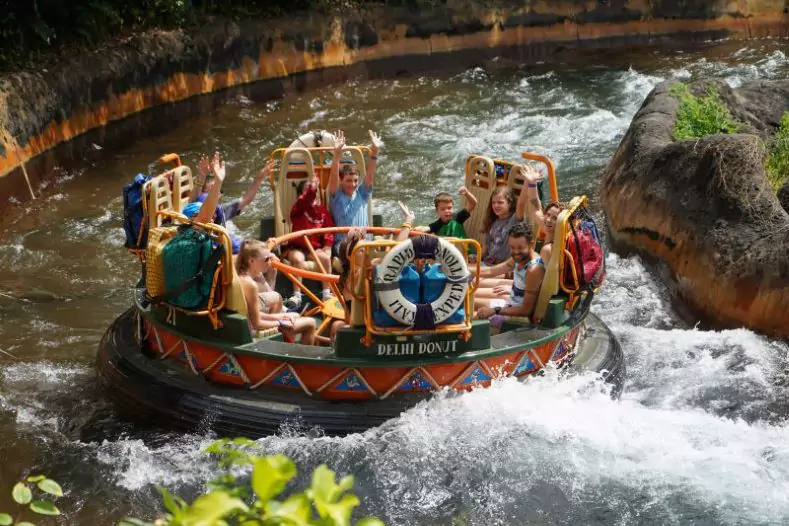
How To Plan a School Trip to Disney World
Disney World is the perfect destination for school trips. Yes, everyone loves the rides, restaurants, and resorts, but school groups can also participate in Disney-sponsored arts and science workshops held right in the park. So whether it’s an educational field trip, a high school band trip, or just a fun senior class trip, Disney World is the perfect destination for any youth organization. Let’s take a closer at how to book a school trip to Disney World and how your organization can take advantage of Disney group discounts.
Are you organizing a school trip to Disney World? If so, consider reaching out to the Disney Travel Agents at The Vacationeer for assistance. Their services are completely free and can prove to be invaluable as you navigate the challenges of planning a youth group travel to Disney World. They can even assist with processing individual payments to take the stress off of the organizers. Contact them now for a free, no-obligation consultation.
Eligibility for School Group Discounts
Disney’s Student Group Tickets offer a special opportunity to explore Magic Kingdom, Epcot, Disney’s Animal Kingdom, and Disney’s Hollywood Studios at discounted prices exclusive to youth organizations. These discounts are available throughout the year.
To be eligible for these discounts, school groups must have a minimum of 10 guests aged between 3-22 years and should be affiliated with an accredited educational institution, religious organization, or another type of organized youth group . The number of Group Leaders and extra Guests should not exceed the total number of youth guests in the group.
Eligible youth groups for these discounts include, but are not limited to:
- Public or private school classes on field trips or celebrating graduations.
- Organized teams, musical bands, or clubs participating in celebrations, workshops, conferences, or performances.
- Trips organized by faith-based youth groups.
- Special outings organized by social organizations.
- Girl Scouts, Boy Scouts, and other scouting trips.
- Groups from elementary, middle–junior high, high school, and college levels.
Qualified school groups can also access special discounted rates at Walt Disney World Resort by participating in the Disney Imagination Campus program, formerly known as Disney Youth Programs. This program is designed to provide unique educational experiences in a fun, interactive environment.
Disney Imagination Campus provides a variety of educational and performance opportunities, enhancing the traditional theme park experience with a focus on learning and creativity.
2024 Disney Youth Tickets – Costs
The Disney Imagination Campus ticket packages for 2024 cater to schools across the United States, offering diverse experiences based on location.
- For non-Florida-based schools , packages include Performing Arts Packages, Educational Workshop Packages, Festival Disney Packages, and Student Tickets, designed for performance, enrichment, or comprehensive park experiences.
- Florida-based schools have similar options, including Performing Arts Packages, Educational Workshop Packages, and Student Tickets, tailored to local groups’ needs and proximity to Disney parks.
Both categories provide access to immersive theme parks, self-guided learning activities on mobile devices, and various workshops and performance opportunities throughout the year. This enables groups to customize their experiences the way they choose.
Performance & Festival Pricing | National
- Starter Package : Ideal for groups visiting one park per day. Available for 2 to 6 days, starting at $204 without tax for two days, and increasing up to $446 for six days in peak season.
- Park Hopper Option Package : Suitable for groups wanting to visit multiple parks on the same day. Ranges from 3 to 6 days, with prices from $326 to $507 in peak season.
- Premium Package : Best for groups seeking a comprehensive experience, including park hopping and additional activities. Starts at $336 for three days, going up to $518 for six days during peak season.
Academic Workshop Pricing | National
- Starter Package : Designed for groups focused on single-park academic experiences per day. Offered from 2 to 6 days, with prices ranging from $220 to $462 in peak season.
- Park Hopper Option Package : Tailored for groups combining workshops with the flexibility to explore multiple parks. Available for 3 to 6 days, prices range from $342 to $523 in peak season.
- Premium Package : For a holistic educational trip with workshops, park hopping, and extra activities. Prices for 3 to 6 days start at $352, reaching up to $534 in peak season.
Student Tickets Pricing | National
- Starter Student Tickets : Suitable for straightforward visits to one park per day. Available from 2 to 6 days, with prices from $210 to $468 in peak season.
- Park Hopper Option Student Tickets : Offers the opportunity to visit multiple parks each day. Ranges from 2 to 6 days, with prices from $265 to $529 in peak season.
- Premium Student Ticket : The most complete package, including park hopping and extra activities. Available from 2 to 6 days, with prices starting at $275 and up to $540 in peak season.
Performance Package Pricing | Florida
- Starter Package : Ideal for Florida school groups for a single-day visit to one park. Available from 1 to 6 days, with prices starting at $116 and going up to $446 in peak season.
- Park Hopper Option Package : Enables Florida groups to visit multiple parks each day. Offered for 3 to 6 days, with prices from $326 to $507 during peak season.
- Premium Package : The ultimate option for Florida groups, including park hopping and extra activities. Ranges from 3 to 6 days, with prices starting at $336 and up to $518 in peak season.
Academic Workshop Pricing | Florida
- Starter Package : For Florida groups engaging in single-park academic sessions. Available from 1 to 6 days, with prices beginning at $132 and increasing for longer stays.
- Park Hopper Option Package : Combines educational workshops with the chance to explore multiple parks. Available for 3 to 6 days, starting at $342 and increasing for peak season dates.
- Premium Package : Offers an extensive academic and entertainment experience. Prices for 3 to 6 days start at $352, rising with additional days and during peak season.
Student Tickets Pricing | Florida
- Starter Student Tickets : Tailored for Florida student groups visiting one park per day. Available for 1 to 6 days, starting at $94 without tax for a 1-Day EPCOT or Disney’s Animal Kingdom ticket, with prices increasing for longer stays.
- Park Hopper Option Student Tickets : Allows Florida students to explore multiple parks each day. Offered from 2 to 6 days, with pricing beginning at $265 without tax for a 2-day ticket, increasing for peak season.
- Premium Student Ticket : The most comprehensive option, including park hopping and additional experiences. Available from 2 to 6 days, starting at $275 without tax for a 2-day ticket, with incremental increases for peak season and longer stays.
Each package type includes varying options and additional details, such as seasonal pricing variations. For the most accurate and comprehensive pricing, it’s recommended to visit the official Disney Imagination Campus website or consult directly with The Vacationeer . They can provide detailed information and assist in selecting the best package for your group’s educational goals and budget.
Disney Imagination Campus for School Groups
Disney Imagination Campus offers a plethora of educational and performance opportunities, enhancing the traditional theme park experience with a focus on learning and creativity. Here are the programs available to students in 2024:
Science & Technology
- Technology of Disney Parks : Explore the cutting-edge technologies that make the magic happen.
- Physics of Disney Parks : A practical look at how physics principles are applied in the park.
Performing Arts
- Disney Broadway Magic : Learn the art of stage performance from Disney’s Broadway productions.
- Dance Disney : Experience dance workshops led by professional choreographers.
- Marching Band Performances : Showcase your school’s marching band in a Disney parade.
- Soundtrack Sessions: Instrumental & Vocal : Learn the intricacies of performing and recording music.
Arts & Humanities
- Immersive Storytelling : Dive into the art of creating compelling narratives.
- Theme Park Design : Understand the creative and technical aspects of designing a theme park.
Leadership & Innovation
- Leadership the Disney Way : Gain insights into Disney’s approach to leadership.
- Teamwork the Disney Way : Explore the power of teamwork in a Disney context.
- Disney Leadership Assembly : A seminar on leadership strategies and practices.
Theme Park Experience
- Student Tickets : Special rates for educational groups to explore the parks and participate in learning activities.
For more information on courses offered by Disney Imagination Campus or to book your school group for a Disney World workshop, please contact The Vacationeer . They can be your Disney liaison and coordinate every aspect of your visit!
How to Book a School Trip to Disney World
Here’s what you need to do as you book a trip for your senior class trip , band trip, or other school group or organization.
Pick the Dates
Determine the best time to go to Disney World for your youth group. This decision will be based on certain factors like crowds, seasonal weather , availability of Disney Youth Programs classes, academic schedules, etc. Consult our Disney Crowd Calendar to get an idea of the crowd sizes.
Choose a Disney Resort Hotel
There’s an in-park resort to fit any budget.
Disney Value Resorts are the least expensive tier of in-park hotels. They offer basic accommodations, no-frills (but very adequate) dining options, and bus transportation to the theme parks. Disney Deluxe resorts are the most expensive resort tier and offer the biggest rooms, nicest amenities, and the best transportation options to the parks. Disney Moderate resorts offer a nice middle-ground in terms of price, amenities, and transportation to the parks.
All Guests staying at Disney Resorts will receive an advance booking window for dining reservations, Lightning Lane ride selections, and more perks than Guests staying at non-Disney hotels. See our Comparison of Disney World Hotels page for more on the resorts.
Decide on a Dining Plan
Disney’s Dining Plan simplifies the way you eat at Disney World. There are several different tiers of the Disney Dining Plan to accommodate a wide range of eating habits and budgets. Learn more on our Disney Dining Plan Calculator page.
Another option is to just pay out-of-pocket. Paying as you go may save you money (especially if you’re a light eater), but, if you plan on eating at table service restaurants and/or have a big appetite, then the Disney Dining Plan may be the way to go.
See our Best Magic Kingdom Restaurants , Best Epcot Restaurants , Best Animal Kingdom Restaurants , and Best Hollywood Studios Restaurants pages for more dining information.
Book the Dining Reservations
Booking your dining reservations in a timely manner is crucial to the success of any school trip to Disney World. You really have to make your reservations early or else you may get shut out of some of the best dining experiences at Disney.
See our Disney Reservation Calculator and determine when you should book your reservations.
Coordinate Payments
It can be a pretty complicated process to coordinate a payment plan for every single person in a group of 10+. Why not let the Disney travel specialists at The Vacationeer help you with this process? They can book every aspect of your Disney school group trip, including purchasing the park tickets, hotel stays, dining plans, and booking your dining reservations (not an easy task!). Plus, your dedicated Disney travel planner can process separate payment plans for each student.
All of this and their services are 100% free of charge . It’s really the way to go!
Fill out the free quote form for school groups below, and someone will get right back to you with the details.
Create the Itinerary
It is a good idea to create an itinerary before your school group arrives at Disney World. But where do you start? After all, Disney World is home to 4 theme parks, two water parks, and dozens of resorts and restaurants. It’s a huge place!
I’d start your research with our Best Magic Kingdom Rides , Best Epcot Rides , Best Animal Kingdom Rides , and Best Hollywood Studios Rides pages. We also have Best Disney Character Dining , Best Shows at Disney World , How to Plan a Disney Vacation , Disney World Map , Taking School-Aged Kids to Disney World , and Homeschooling at Disney World pages.
If this information overload is stressing you out, then I’d recommend reaching out to The Vacationeer for assistance. They can help you make sense of this massive resort and plan a magical school outing.
Thanks for reading, and have a wonderful trip!
Related Posts:

Share This Page: Choose Your Platform!
About the author: joshua powell.
Related Posts
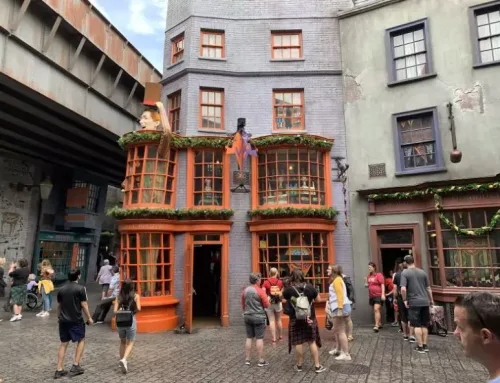
Leave A Comment Cancel reply
Ultimate guide to planning school trips
This ultimate guide will help you to learn tricks of the trade form over 50 experienced school trip, school camp and educational tour leaders and experienced teachers.
The ultimate guide to planning school trips, educational tours and school camps
We have worked in the educational tour, school camp and school trip industry since 2009. Our first school group was from World Challenge and they visited our turtle project in the Perhentian Islands. We have since led over 5,000 participants and now handle approximately 50 groups per year, well not in 2020!
Even if you are experienced its always nerve wracking to lead school trips especially if you are camping with a large number of students or its your first time ever. Therefore, we have decided to help teachers and educational tour group leaders by developing this ultimate guide which we hope will help you to be well prepared to manage your next school trip.
To make this ultimate guide we have spoken to over 50 educators, school camp organisers and facilitators and asked them for their handy tips and advice.
Why lead a school trip Stats about the impacts of school trips on students How to get a school trip off the ground Selling the programme to the students and parents Ultimate pre school trip check list Departure During the school camp After the camp Resources
Why Lead A School Trip
So first of all, why should you lead a school trip? One thing that has stood out during our personal experience, and research, are the positive impacts of the trips on the students. Nearly all teachers said the school camps helped the students to become more independent and made lasting memories.
Personally, a lot of my school memories are from camps. For example, when I completed the high ropes course and leap of faith in my final year at primary school at Skern lodge. I also remember bumping into my mum whilst we stopped at a service station on a cricket tour. The same is true with your students. These are memories will last forever. One teacher put it well
“experiences always stick with students much longer than the skills we teach. The only thing I remember from 6th grade is building a den that I slept in during camp.”
For school trips abroad then the memories are even more vivid as students will experience new foods, smells, sounds and activities.
Always remember you are helping the students to develop and make life long memories, if that is not incentive enough, I don’t know what will be.
Here We Have Some School Trip Stats
We have scoured the web for some awesome stats that will help you to persuade people to join your school camps. We made some infographics for you to see and use. PLEASE use the infographics in your presentations to parents and wherever you like. The stats have come from reputable sources with a few quotes from experienced teachers.
Below are some comments, quotes and stats we have found and would like to share
“Research shows that healthier and happier children do better in school. Additionally education is an important determinant of future health.
But education is not just about lessons within the four walls of a classroom. The outdoor environment encourages skills such as problem solving and negotiating risk which are important for child development.” https://theconversation.com/outdoor-learning-has-huge-benefits-for-children-and-teachers-so-why-isnt-it-used-in-more-schools-118067
In a study by the US Travel Association, they surveyed 400 parents, 200 never been on a school trip and 200 who had. They found out that “regardless of gender, ethnicity or socioeconomic status, youth who take educational trips have better grades (59 percent), higher graduation rates from high school (95%) and college (63%), and greater income (12% higher annually). In fact, 89% said educational trips had a positive, lasting impact on their education. The trips made them more engaged, intellectually curious and interested in and out of school.” https://www.neamb.com/work-life/how-field-trips-boost-students-lifelong-success
How to get a school trip off the ground
I hear you say, YES, I want to lead a school camp or educational tour. But how? If you are reading this then you must already be online researching. Looking for terms such as school trip provider and school trip ideas. Read on and learn from the experienced teachers about how to get your school camp off the ground!
Types of educational tours, school trips and school camps and what to consider
Before you can start researching you need to think what sort of experience you want. Do you want to lead an educational tour, school trip abroad or a good old school camp. Which one you choose will affect your activities, locations and itineraries.
Think what is the purpose of the school trip, is it more academic like a geography field trip. Is it more focused towards service and volunteering. Perhaps you just want them to have fun, bond and relax. Once you know the purpose then you can start thinking about the activities. When designing activities think about the age of the students. If the group has mixed ages, think if the older and younger students can do the activity together or not. The best programmes combine all aspects so the school trip is very varied and exciting
Time of year for school camps
Think about the time of year and the climate. If you are doing a conservation service project is it the best time. For example, a turtle project, is it the right time of year for doing turtle volunteer work. Also what will the weather be like? Monsoon seasons can really be a great time to go. During monsoon seasons there are less tourists and you can do different activities like surfing. However you need to think about weather impacts and do more weather independent activities.
The itinerary and structure of the programme is actually really important. For example, don’t have the BEST most exciting activity on the first day. Always have a set routine for wake ups, meal times and activity start times. The last day needs to have a BANG. When making a programme I always try to end the programmes on a fun activity. We often go white water rafting on our last day for this reason.
Using a school trip provider or go alone
I would say its always best to go with a school trip provider because you never know what may happen and its best to have someone who has local experience. They will know what is and what isn’t possible on trips. They will also know little tricks of the trade and local knowledge at particular locations.
How to assess a school camp provider
Here is some advice from a freelance facilitator they point out some important things to note.
Having worked with a range of outdoor education providers, each company have different strengths and weaknesses. They will have different specialities in terms of style and environment. Think about what you’re aims are for the trip and choose accordingly. While each will tell you it does everything, some are stronger at different aspects. Some maybe stronger on the activities and personal development. Whilst others are more involved in terms of conservation and sustainability. The feel of the trip will also be entirely dependent on the individuals they employ. Therefore its important for you to check their typical backgrounds and experience. Comparing companies’ backgrounds, SOPs and risk management policies is also a very easy way to assess their experience.”
For me, as a provider the best teachers are the ones who are involved. It’s a two-way partnership and small details are very important. So I personally think you need to find an organisation whom you personally can work well with. You know the students better than the school trip provider and will know better their food and activity preferences.
In a nutshell
First decide the aim and purpose of the trip. Do you want more voluntary service or team building and personal development. Do you want the students to develop field work skills and use the site visit as case studies?
Only then you can start your research of relevant programmes and providers.
Research the providers and contact them, speak on the phone. Organise a visit, mainly get a feel of them and how they work and if you are both compatible. Talk to them about their safety records and SOPs, t heir facilitators and ask t hem for contact details of past school teachers they have worked with.
Selling the programme to the students and parents
Now you have found a great programme and provider. You think the programme will be popular with the students and parents with great aims and outcomes. So how do you promote the school trip to the students and importantly the parents?
We asked this question to our experienced teachers and leaders and here are the general tips.
Presenting to Students
- Promote the trips as early as possible
- Provide lots of photos and vidoes
- If possible, ask the provider to come in and talk to the students. Get the students doing some short activities related to the school trip like short team building games. This will get them feeling good about the school camp.
- For older students show that this programme is about building or cementing your friendships and look good for university applications.
- Make the trip look fun but also challenging.
- One I find works with kids these days is show off the food and accommodation, if its nice. It’s taken me by surprise but food and standard of accommodation is becoming an increasingly important factor for students. I think its because they are used to traveling so much. IF, there is a pool at the accommodation SHOW THAT OFF.
Below is a video story by a friend of mine who has made the story book for kids called the Box People. It highlights the importance of the benefits of nature.
Presenting to parents
One of the most seemingly daunting tasks is presenting to the parents and this shouldn’t really be the case. Change the presentation completely and present to the parents what they want to know. Pre-empt the parent’s questions and answer them in your presentation.
Here are some great tips and advice from our experienced crowd.
- If it’s your schools first time with a new provider, and/or at a new location then it’s imperative for the provider to talk to the parents directly. Parents will ask more specific questions than the students. The provider should be able to answer all the parent’s questions and be knowledgeable. The parents need to feel they can trust you and the provider with their children.
- Be honest, if there are risks say there is a risk, but stress how the risks are managed. The key is in the detail.
- Clear payment schedules. Not all parents find it easy to pay for educational tours and school trips. They may have 2 or 3 children all going on trips at the same time.
- One reason why we have made the infographics above is for you to use during your presentations. Use the infographics to highlight to the parents the BENEFITS of the trips to the students.
- Link the trip focus/aims to your schools guiding statements,
- Point out how the trips are a means to show universities that your child is a risk taker, shows resilience and is willing to face challenge and see value in activities outside the classroom. (This is one way I engage parents whose children are wrapped up in cotton wool. They think academic qualifications are all that’s needed to ace a top university place).
Ultimate pre school trip check list
This is a chronological check list to ensure your school camp goes without a hitch! The list below has information about the tasks. You can download the check list in an easy to understand tick box format below.
Download the Ultimate pre school trip check list !
I would go through this list and work back chronologically from the day you depart. This way you can work out when things need to happen.
Build your core team!
It may seem a bit early but you need to think who will be your on camp senior leaders. I would select 1 or 2 right hand people and get them involved as early as possible. It is always better to have a few brains rather than one. These core people will help with decision making and leading if you are unable.
Ensure these people add a different flavour and are hyper and organised. I love music and drama teachers. Music is very important on camp. If a teacher can play a guitar or recorder and play on camp that would be awesome. Drama teachers are great as they normally have 101 ice breaker and energizer games which can help if there any low points.
Once you have your core team, do a site visit with the core team. If your educational tour is abroad set up a skype session. Get to know your provider better and ask plenty of detailed questions. Ask them about dates, transportation, responsibilities, payment schedules and indemnity forms.
Now you are ready and armed with the information to send off letters to the parents, these letters should include
Payment details
Send these to the parents early with a payment schedule and refund policy, these must be signed by the parents.
Permission slips and indemnity forms
These have to be signed by a legal adult which means someone 18 or over. This means the parents will most likely have to sign. MOST if not all providers will have their own. Check with the school and see if the schools indemnity forms already cover the school trip provider. If the schools indemnity covers the providers then send them a copy. Incase the schools indemnity does not cover the provider then the parents or participants who are 18 years and over will need to sign.
When scuba diving is involved then a self-assessed medical form will need to be completed and signed. If the PADI medical is not completed when you arrive you will have a problem. The students who are 17 and under will need to get their form signed by their parents and sent electronically before ANY in water scuba diving activities can take place. Indemnity forms are important for liability and also if there is an accident to help the teacher and provider to act as guardians for the student.
Indemnity forms are very important and always best to get them out of the way early, expect parents to ask many questions.
Scanned copy of passport
You will often need a scanned copy of the students passport. Obtain the scanned copies early especially for international travel. In Malaysia we need these for entering the national parks and forest reserves.
Student detail form
Your school may already have this. If not, you will need all the student details, full name, nickname, gender, passport number, country as per passport, next of kin details, diets and allergy issues. The best way is to set up a google form and then send the parents the link or you may have something with your school or university intranet. The idea is to have a system which populates an electronic spreadsheet to save you time.
Electronic copies
Get all these saved electronically and email them to yourself. I recommend you also save them on your desktop for easy access. Then print out hard copies!. Get a folder with all this in.
If you are travelling abroad ensure you understand the visa requirements for your students. Do this nice and early like 6 months in advance. Ensure the students passport is valid for 6 months after they are back from the trip.
If you are traveling into Malaysia for your school trip then check out the immigration website here https://www.imi.gov.my/index.php/en/entry-requirements-into-malaysia.html
Building your team
Now, if you have a small group then you should be fine with 2/3 adult leaders but if you have 40+ students you will need a bigger team. You will need a minimum of 1 teacher to 10 students. I recommend 1 to 10 plus yourself so you are free. This will mean during the school trip the provider will probably provide 1 staff to every 10 students meaning you have a combined adult team of 1 adult to 5 students. Which is a very good ratio.
The key to choosing people is making sure they really want to go. Don’t take helpers who don’t want to go. You need cheerful people whom the students can relate easily with and a team of people with different skills. Some better at first aid, some better at music, sports, arts etc. When you are on a school camp the students attitude often is reflected from the teachers. If the teachers are low and not enjoying themselves this will reflect onto the students who will also be low. If a teacher is really enjoying it, they will spur on the students.
Get the final kit list from the provider and ask where best to buy and which items are essential.
Write your Team notes – Detailed Itinerary, PIC’s and menu
Up until now you probably will have had a rough itinerary. Now is the time to ask for a detailed itinerary with rain back up plans and menu’s. The itinerary should include if free times are structured or not structured and if the provider will provide games and activities or not. In my experience, free time means the provider won’t provide any activities and the teachers can lead activities if they like.
I suggest even during free time there are a few scheduled activities though NOT included on the itinerary the students get. The teachers should get an itinerary we call Team Notes, this document is basically an annotated itinerary. The team notes will even include tasks of what to do for the next day and who is doing what. Remember in the team notes to include FREE TIME for staff as well as they will need some down time for sure.
Organise at least 3 meetings with the students.
Before you depart, you will need to organise a few meetings with the students. We recommend at least 3 meetings with the purposes of each being different.
Focus on bonding games. Bonding games help the students to get to know each other and so you get to know the students. Getting to know the students will help with group and room selections. Give the students a kit list and email it to the parents through your communication channels
Learn about the topics covered in the school trip. For example if you are doing a marine conservation school trip then get the students to present topics on marine conservation. This time I would ask the students to write down their favourite music so you or one of the teachers can compile them onto a USB stick
The last meeting should be discussing specifics like rooming partners (ask them to write their preferred room mates so you can then mix and match) and last minute planning and going over kit lists again.
What tasks to delegate to your team
I would delegate tasks to your team a minimum of 2 weeks before the start of the school camp. Go through the detailed team notes and allocate tasks as below.
- First aid kits including thermometers
- Reflection questions and activities
- Free time equipment – frisbee, football, board games, rounders equipment
- USB stick with music which the student like – make a few copies for different transport ie if your group moves in 2 buses at the same time you need at least 2 USB sticks.
- Cable extension
- Coffee and kettle
- Zip locked bags
- Extra batteries
- At least one school phone for communication and DON’T USE YOUR PERSONAL PHONE.
- Detailed notes for all with all important contact numbers
- Set up whats app group between staff for easy communication
- Set up communication channel with the parents – one way for photos and daily updates NOT two way.
- Back up phone cables
- A lockable box
- List of games for wet weather back up
- Insurance policy with all contact details – SAVED ONLINE AS WELL, things easily get lost and missed places which will make you panic!
- Contingency money, always have some spare money to buy ice creams or whatever
It’s time, all that prep and now you are going to be making lasting memories for all your students.
The day before, if your provider hasn’t contacted you, contact the provider. You can discuss all the final details and the pick up times etc. If you are booking your bus then call the bus company to get the number of the actual bus drivers. Then contact the bus drivers directly and share location of where to meet them. They will normally arrive 30-60 minutes early.
Ensure the parents are reminded through your one-way communication channel. Remind the parents that IF they don’t arrive by x time the bus will leave.
If a student is late, give the parents a call and see where they are. Try not to be to leave late because that will have repercussions and you don’t want to rush your bus driver.
Here are a few of our tips for making the trip a great one!
Music on school camp
We have mentioned it a few times but MUSIC is a must, especially for a proper ‘in tent’ school camp. Music really changes the mood. Use upbeat music so the students can dance. For journey’s have music the students can sing too. You can throw in some golden oldies as well as surprisingly a lot of the students know some of the classics. I always remember one group loved my playlist as it was full of Queen and their dads all play Queen at home.
Have lots of back up short and snappy games. Here are a few from our experts
- Uno card game,
- Mancala African stone game
- Cribbage Card game & travel board
- Farkle dice game
- Active games that are inclusive and not too skills based so all kids can join in, or let them select from choices,
- treasure hunts, scavenger hunts are always good and fun.
- I went to Market,
- Card games – Uno.
Dealing with student problems – disruption and homesickness.
Its likely that some of the kids and staff will get home sick or be disruptive, especially if you have a large group or are away for a long trip of 2-8 weeks.
Here are some advice from our experienced teachers.
“Disruption usually happens with kids who are either fearful of looking incompetent or are bored. If you determine it’s the first, then you can try to identify the source of the fear: don’t want to fail in front of others, don’t have the background knowledge, didn’t understand the prompt, etc”
“For disruptive students in activities the key is to give them something of importance, or at least reined importance, especially if it’s a social issue. Once they feel they’re responsible for a key duty they tend to take on this with enthusiasm, especially the more confident disruptive ones. As an instructor is usually the quite detached ones that are more of an issue. With these involvements may need to be heavily encouraged with additional prompts.”
“If you can create an environment where the students take on responsibility to support each other then this is by far the most effective situation to dispel homesickness. Often homesickness is purely an attention seeking strategy, and even where it isn’t, paying too much attention to the issue can be far more damaging than helpful—it’s a delicate balance.”
Expect changes and issues during school camps
Sometimes things just don’t go right! The key to this is to have things planned as best as possible and have back up plans! Say it rains all morning and you can’t do an activity as planned. They you need to go into the back up plan. Your provider should have some back up activities planned and also games.
It is always great if the teachers could have a few games up their sleeves as gap fillers as well. Always expect there to be an accident, so IF heavens for bid it does happen, you are expecting it, and so you don’t panic.
How to deal with an accident during school trips
Time and communication are the most important things with this. If an accident happens the teachers need to work closely with the providers. In my experience accidents normally happen in free time, like twisting ankles whilst walking down stairs, accidents happening during sports etc etc Here are some tips
- Always ensure the provider has an evacuation vehicle ready and that the keys are in a safe place! The vehicle has spare cash in case fuel runs out and for whatever happens.
- Put a hard copy of all the staff and student details inside the vehicle.
- Send one staff, one provider and a friend of the patient
- If the person going to the hospital is the leader inform your teacher team and assign someone as the new leader. This is why having a few senior team members is important. They may not be senior at the school but senior for the school camp.
- RELAX, you are going to hospital and will be in good care
- Inform the school and if its minor ONCE you have information then inform the parents. If major, then of course inform the parents straight away. If it’s a sprained ankle then that’s minor and you will only worry the parents until you have more news from the doctor.
- Write what happened down as it happens to help with specifics for your accident report form.
How to deal with special diets
Special diets should be informed to the providers at least 3 to 4 weeks before the start and they should then give you a menu. It is important to add the teachers in this list as well! In my experience the leaders diet requirements are often missed out and then we need to make changes onsite which causes some stress.
Allergies are the main issue, ensure you talk with the parents to get a clearer picture of the allergy. ALSO ask about what the student likes to eat. Then portray this info to the provider and they should deal with the rest. But at meal times ensure you have an eppy pen available if they have been required before. The provider should double check the kitchen to ensure what they have is allergen free.
Assign a few students to be school trip photographers
In each group of students assign a student to take photos and videos. This is really important for remembering the experience.
Reflections
In my experience its best to have reflections each night which are fun, more game focused and then have a more serious one on the last night. BUT finding the right time and location to do a reflection is important.
I like to play games like charades and pictionary. The students will write down their own experiences from the day for the subjects to act or draw. Make it competitive and then you have a reflection activity that is a fun game and doesn’t feel like a reflection.
Here is what the teachers said
“We found that our students didn’t want to write anything down!! However, it is always great at the end of the day to sit down together as a team and discuss the day’s events. What went well, what needs improving etc”
“ A common theme through the week helps them structure their ideas during reflections – small daily ones can build up to a big one at the end of the trip where you go over the ideas they have come up with throughout the week.”
“Would you rather….or…? is a an excellent journal prompt. For example, after a day on the trail, Would you rather pick leeches off your ankles or swat mosquitoes? After a few of these, the students will be able to create their own and you can use them.”
“video it, podcast it, draw it, act it – anything but write it down which is the boring one. Or ask them questions that are quirky and a little different which make them sit up and think.”
The last night
The last night is really important, if we have a large group we would do a talent show with fire breathers and a little disco at the end. Its important to get the students involved in planning and hosting this. BUT be warned you will likely be called up to do a performance with the teachers – this is why I said having a music teacher is important 😊
If you have a smaller group have a BBQ with the students cooking, build a bon fire, play a guitar, cook smores, play some music and games and watch the stars.
After the experience
Let the students go home and relax, time for you to relax and give yourself and your team a pat on the back. You have just one more thing to do. That is ask the students to create a presentation to show to their parents.
Use the students who were taking photos to make a presentation or video and use this with voice overs from the students talking about their experience of the school trip. They can either present this live to their parents or you could film it and send them the video link. This will cement the learning and experience for the students and show to the parents why school trips are important.
Right then, Good luck, and relax. As one of our favourite teachers said – relax and enjoy the experience, school camps are far better than marking books.
How to solve a Rubik’s cube – https://www.youtube.com/watch?v=7Ron6MN45LY
Great games for students – https://fyi.extension.wisc.edu/wi4hcitizenship/files/2018/04/YACH-Handbook-Ideas.pdf
Scientific papers and articles https://www.frontiersin.org/articles/10.3389/feduc.2018.00046/full
https://www.studyinternational.com/news/benefits-learning-outdoors/
https://www.stem.org.uk/news-and-views/opinions/benefits-learning-outside-classroom
Support our causes and buy some merchandise
You can support the Fuze Ecoteer projects and supported organisations by buying their merchandise. A minimum of 60% of your fee goes directly towards the conservation cause linked to that product. The other percentage is for production costs.
Turtle Adoption
You can adopt one of our turtles in the Perhentian islands. Through our turtle photo ID database we have identified over 260 turtles that have been seen around the Perhentian Islands. Support our important conservation and adopt today.
Adopt a turtle
- Teaching & Learning
- Early Years
The best (and worst) bits of planning a school trip

Whenever a colleague approaches me, full of enthusiasm and wanting to plan a school trip for Early Years Foundation Stage at the start of a new school year, all I really want to say is, “Are you mad?”
I remind them it’s a very busy term: children need to settle in, there are baseline assessments to complete, home visits and, then, all of the activity leading up to Christmas. Sometimes they’re persuaded, sometimes they aren’t. When it’s the latter, I reluctantly begin the mountain of paperwork that needs to be completed.
I have a love/hate thing with school trips. Each time a trip comes along, I feel the dread of the responsibility, the loathing of the paperwork, all the while knowing the enjoyment it will bring to the children.
Recently, our school business manager tightened the trip procedures, which means planning to take children on a trip has become a huge operation.
More and more schools are now struggling with the cost of trips - but money aside, there are endless pieces of documentation to complete before you even set foot out of the door.
I remember, as a very young student teacher, naively scoffing slightly when a teacher told me she found school trips stressful. I just couldn’t understand why. Fast forward to a few years later, when I have had to step up to the full, and frankly terrifying, responsibility of being group leader, I understand where she was coming from.
- School trips: Make the most of school trips to museums
- Funding: Pupils “miss out” on school trips as transport costs soar
- EYFS: Why we need to ditch computers in EYFS
It’s the horror stories we listen to in the staffroom that have me imagining all sorts of terrifying scenarios. One child fell out of a tree and broke her arm. Another decided on impulse to bolt across a busy car park and had to be collected early. Then there’s the particularly memorable tale of a teacher who had to call the park ranger because she and her pupils got lost in a 2,000-acre country park.
These stories haunt me.
I worry constantly, both in the lead-up and during the day itself. Once you have filled out the risk assessments - in which you are required to picture and then list all potential worst-case scenario hazards - for every small section of the day, it is hard to “unsee” the risks.
When the day arrives, I am like a mother hen obsessively counting little florescent yellow bibs at every opportunity. I do try to relax and enjoy it, but it is only when we return to school, with each and every small child and staff member back in one piece, that I can breathe a big sigh of relief.
When we’re back, I often wonder if it was worth the effort - but then I remember the reaction of the children.
One on occasion we went on a train and then a ferry, and the sheer joy on their beaming faces and the laughter as the engine roared when we began to move was so lovely. You would think we had been to Disneyland. They had the best time enjoying the simple pleasures and learning from the experience. That’s the magic in school trips.
From this recent experience, I reflected that there are some things that help to ease the pressure.
How to plan a school trip
- Give yourself plenty of time. It helps to spread out the paperwork over a few weeks. I have learned it is much better to break the tasks down into chunks and allocate time in the diary weekly to get things completed.
- Always go to the location to do a recce, even if you have been before. It really helps to inform the risk assessment. Ask yourself, “Where are the nearest toilets? Where will we gather to eat? Is there shelter if needed?”
- Work as a team to talk through the risk assessments and share some responsibilities. Ask “what if” questions to anticipate any issues - “What if the bus breaks down?” “What if a child slips? Who will be the paediatric first-aider?”
- Plan a generous adult-child ratio. Legally this is one to five for Reception children, but it really benefits to take an extra adult to accompany any children with special educational needs and disabilties (SEND) on a one-to-one basis - some sites offer extra adults free tickets when they support SEND children.
- Consider including an extra adult to “float”. On a recent trip this worked really well: the floating adult didn’t have a group and so could be responsible for lots of things; for example, being the crossing patrol, walking ahead to let the train guard know we were arriving, and helping with behaviour and toilet trips.
- Carefully choose your best parent helpers. We all know from experience that some parents are more helpful than others, so trust your instincts: you want support rather than extra stress on the day. Mostly parents who have trip experience or who are already volunteers or work with children are the best option.
Helen Pinnington is early years foundation lead at St Thomas More’s Catholic Primary School in Bedhampton, Hampshire
You need a Tes subscription to read this article
Subscribe now to read this article and get other subscriber-only content:.
- Unlimited access to all Tes magazine content
- Exclusive subscriber-only stories
- Award-winning email newsletters
Already a subscriber? Log in
You need a subscription to read this article
Subscribe now to read this article and get other subscriber-only content, including:.


the school travel people
Your step-by-step guide to planning a successful school trip

School trips and educational visits are hugely beneficial teaching tools that help students develop social, personal, and emotional skills. Taking a school trip abroad can be a fun and rewarding experience, not to mention a great opportunity for your students to enhance their knowledge outside the classroom.
However, we know planning a school trip can be a challenge. As the party leader, you’re put under an immense amount of responsibility, and the list of tasks you need to complete can be seemingly endless. From planning to payments, and everything in between.
At Equity, we want school travel to be seamless and enjoyable – for everyone involved – which is why we’ve compiled this handy guide to planning your first school trip. Read on and refer back to this blog as a checklist, to assist you from the earliest planning stages all the way through to your departure date.
☐ Set a timeline
There’s a lot to consider when you’re planning a school trip for your students! From initial promotion and making sure all those slots are filled, to making first deposits and final payments, you should set aside plenty of time to make sure all of this is feasible alongside your usual workload.
Most trips can be planned in 6-12 months, giving you plenty of time to make any deadlines you set for the trip while your hotel and flights are still available. However, for longer, further flung or pricier trips, setting aside 18 months to two years will help relieve the pressure for everyone. Not only will this make the entire process less stressful for you, it also gives parents more time to save for the trip.
☐ Outline your objectives
To help you manoeuvre the many decisions you’ll be faced with in the early stages of planning a school trip, we recommend writing down your tour objectives and using these as a central reference point during the process. Your tour objectives should be focused on what you want your school travel experience to deliver. Do you want your students to develop a broader understanding of a key area of the curriculum? Are there cross-curricular opportunities that you think your group would benefit from?
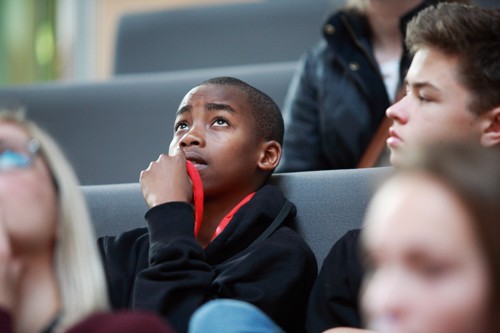
Once you’ve ascertained what your trip objectives are, pass these on to your shortlist of tour operators, who will know their destinations inside out and be able to recommend locations, excursions, and activities to help your trip achieve its objectives.
☐ Estimate your budget
One of the largest considerations you’ll have to make, your budget will have a huge impact on the tour you’re able to deliver to your students. Make it too big, and you may have a brilliant trip, but you’ll also risk alienating some students who can’t afford such an extravagant experience. Make it too small, however, and you’ll leave little room for the excursions you’ll want for making an exciting, engaging itinerary.
As a general rule of thumb, we suggest considering the going rate for the trip you have in mind, then budgeting a little extra per student to account for any additional excursions or treats.
☐ Get the headteacher’s sign off
To make sure your trip goes ahead, you’ll need the final approval from your headteacher or SLT team. We’ve put together a template for a letter to the headteacher to help make sure this doesn’t add more admin time to your planning.
☐ Choose a tour operator
Your objectives are laid out, and you’re well on your way to mapping out your trip. Now it’s time to decide who to place your trust in! You’ve likely already whittled your options down to a shortlist by now, and have built some rapport with tour operators. But who do you feel has your (and your students’) best interests at heart? We’d recommend seeking out accreditations in the travel and school travel industries, such as ABTA, ATOL, and Learning Outside the Classroom.
If you’re thinking of heading to a new destination, most tour operators offer an inspection visit when you book. This might include 1-3 nights in the location free-of-charge, and offers you the opportunity to familiarise yourself with the destination. Not only will this help with your risk assessments, but experiencing the location first-hand can help you frame your itinerary.
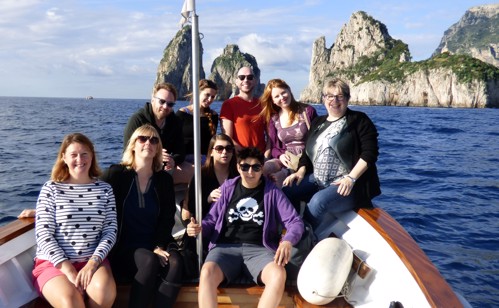
☐ Review your options
When comparing tour quotes from different providers, it’s important to look beyond the price you’re given at face value. Instead, make yourself aware of what your quote includes – is everything on your itinerary covered? Meals, local transport, guides, entrance fees, taxes, and tips can all add up, making your school trip cost more than you’re initially led to believe. It goes without saying that this could lead to some difficult conversations with parents later on, so it’s generally better all round to know the final price upfront.
☐ Add any final touches to your itinerary
Once you’ve made your decision, you can work with your chosen operator to finalise your school trip itinerary, referring back to your objectives to make sure all your excursions and activities align with your group’s needs. Share your learning outcomes checklist with any operators and activity hosts if you haven’t already. Then, if any excursions have been added, double check with your tour operator whether any additional charges have been added to your trip’s base price, so you have the final price before promoting to your students.
☐ Promote your trip
After all this planning, the last thing you’ll want is for your school trip to fail to get off the ground. To effectively encourage students and secure sign-ups, you’ll want to create a bit of a buzz around your plans. Popular methods used by our schools include a presentation and/or promotional video in assemblies, posters around the school, and handouts for students to take home. These are quite simple to create if you’ve run the trip previously, as you can show all the photos and videos from previous years and show students how much fun they’ll have! However, we also have poster templates for promotional materials to help.
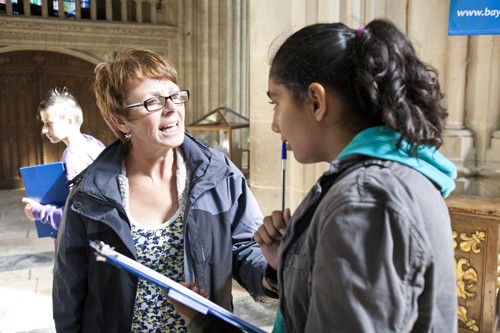
☐ Carry out a risk assessment
For the safeguarding of your students, you’ll want to verify the credentials of your chosen provider. Do they have the proper policies in place? Are they audited for their standards? For your peace of mind, always demand transparency regarding your operator’s credentials.
☐ Collect group information to your tour provider & deliver deposits
With all the practical planning passed, it’s now time to collate the travel information of your group and make sure everything is in place for your trip. Spreadsheets, or shared databases like our Travel Manager, are a particularly useful way to collect your students’ passport details, and can function as a checklist for keeping track of information given, payments made, and visa checks.
Speaking of visas, now is the time to make sure everyone has everything they need to travel! Ensuring both the visas and your students’ passports are valid for the duration of your journey – and apply to each child’s nationality – will avoid any upset at the airport, and make sure your trip goes without a hitch. Remember that some destinations require six months’ validity after the duration of your stay.
☐ Reassure parents
For many children, this may be the first time they’ve gone on holiday away from their families. They’ll likely be feeling nervous – and their parents will too! It’s likely you’ve been keeping parents updated throughout the planning process, but at this point hosting a final parents’ evening prior to your trip with your tour operator can go a long way. Here, you can share details regarding accommodation, itinerary, and your flight plan, as well as your tour operators’ safeguarding and health and safety policies.
Many schools also opt for a dedicated private social media page to update with photos and videos while travelling, which we know parents really appreciate. Use this time to set up an account solely for your trip, and share it with your students and their parents and guardians to make sure everything’s ready ahead of time.
☐ Depart on your trip, and have a great time!
The moment you’ve all been waiting for, it’s now time to depart on your school trip. Check in with your tour provider to collect entrance tickets, local transport tickets and any other paperwork you may need (or keep your travel packs to hand, if your tour operator has already provided them), and have a fantastic time!
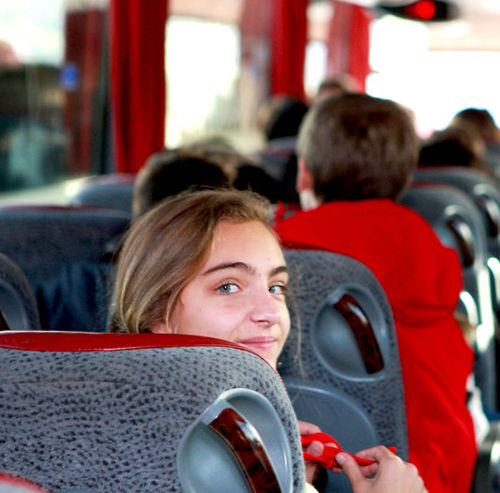
☐ Ease students back into the classroom
It’s really important to make some time to reflect on your trip when you’ve returned. Set aside some class time to discuss your learning objectives, and get students to recall their favourite excursions or activities of the trip. Not only will this feedback enhance your students’ memories of the trip – really reinforcing that learning – but it will also prove valuable for shaping future trips too.
Some of our schools also create photo collages from school trips to decorate a corridor. This provides a visual reminder of what was learnt on the trip, and provides the students with fun reminders when they pass it. It can also serve as a promotional tool for the following year, as well as be on show to prospective families at open evenings, should you wish to run the same (or similar) trip again.
Rest assured, you’re ready to go!
We’re hopeful that our school travel guide has left you reassured and relaxed about the planning of your next trip, safe in the knowledge you have a handy reference to look back on when needed.
The experience of our party leaders is incredibly important to us here at Equity, and we consider it our role to support you in creating an unforgettable and enriching school trip for your students! From your very first enquiry to your return home, you can trust that our team is available to support and guide you each step of the way.
To discuss your school travel plans further, don’t hesitate to get in touch with our team on 01273 648248 . You can also fill out our webform , and our school travel experts will get back to you as soon as we can.
100% Financially Protected School Trips

For the latest travel advice from the Foreign, Commonwealth & Development Office covering health, security, local laws, passport and visa information as well as much more visit Foreign travel advice . This advice can change so make sure to regularly check for updates or sign up for email alerts for your destination(s).

School Trip Ideas Abroad: The Ultimate Planning Guide
Organising a school trip abroad can be exciting, but also rather stressful. The whole process begins months in advance and there are lots of things to consider and think about. You might have lots of students to prepare, itineraries to plan, and of course you need to consider packing for the school trip—particularly if it’s somewhere exotic like a biology trip in The Galapagos. With this in mind, if you don’t know where to start with arranging and planning a school trip overseas, we’ve got you covered with this ultimate guide to planning a school trip abroad.
Planning a school trip should be full of excitement and the feeling of new adventures as well as educational, right? Unfortunately, planning a school trip can also feel overwhelming and hectic—and just extra work on top of your busy schedule. How do you tackle it?

Elements of a School Trip Planning Guide
We’ve done some of the work for you and compiled this School Trip Planning Guide. Just remember that you may want to consider altering some of the items, depending on the specifics—for example if it is a subject-specific educational trip or you’re going somewhere unique.
1.Gauging Interest In The School Trip (S.M.T)
The first stage of planning a successful school trip is considered the ‘Early Planning Stages.’ This breaks down into three key areas: Students, Management and Timing .
The first thing to consider is which students are you aiming the trip at? This affects important key elements of your school trip. For example, if you’re aiming the trip at just a niche subject, are you going to achieve desired group numbers and, in turn, how is this going to affect budgets? Do you need to consider combining subject areas to make your educational trip a reality? Try and appeal to as many students as possible, so you can excite students for their trip!
Equally important is the age and stage of the students. Is this going to impact on timing elements (more on this below). Try and plan your school trip at a time that is practical for your students. Is there an upcoming exam season? Or perhaps a popular holiday period? These are all vital elements that should be at the forefront of your planning.
OK, you’ve decided that you and your students are ready for the trip to go ahead. Next step, what are senior management going to think? How do you discuss your school trip ideas with senior management?
There are two parts to this point and I can’t stress part 1 enough. The first part is simple: discuss your idea informally with colleagues and Senior Management before formally scheduling a meeting. The last thing you want to do is spend time researching the specifics of your trip and its educational aims, before knowing if this idea is something the school is receptive to.
The second part of this point is to formally schedule a meeting with colleagues and senior management, but this comes a little bit later in the planning timeline.
You may have an ideal time that you would like to run your school trip, however have you considered any barriers that might get in your way. Try considering the following questions in this order:
Most school groups plan 12 to 24 months as there is quite a procedure for launching your trip and collating all the various paperwork. However, we’re able to accommodate a wide range of demands for school group expeditions so have often worked with shorter timeframes! If you’re quite close to your ideal departure date, it might be worth giving us a call to see if it is a realistic timeframe.
2. What Are The Aims Of The School Trip? (D.A.T.E)
If stage one has been successful, and you’ve had green lights from all of senior management – then congratulations! You’re on your way to your exciting school trip abroad. There are just a few decisions to be made about the aims of your group trip and then you’re nearly ready to launch!

Destinations
Where do you want to go? This is not always such a simple question as it sounds!
Perhaps you’re looking for a science school trip where students can experience a wide variety of biodiversity, in which case The Galapagos or Costa Rica would be ideal school trip destinations. Alternatively you might be looking for more of a physical challenge where students will need to work together to achieve a common goal in which case Himalayan trekking in Nepal or volunteer work in Tanzania would make excellent school trip locations. But perhaps there are other restrictions that come into play, such as the length of the flight, or the temperature of the destination country. These important questions can help streamline your planning phenomenally.
This can be difficult decision, but our expert destination knowledge means we are able to advise you on which location will suit your school expedition best. Our Expedition Leaders are situated throughout the world and this permanent base in many countries means we have local knowledge and can offer advanced educational program suggestions for your subject-specific school trips, your trip aims and budget.
Examples of school trip destinations that Gapforce offer school groups the chance to travel to include:
- Biology trips to see amazing wildlife, geographical excursions, and historical tours on a Sri Lanka school trip
- Jungle trekking and conservation projects on a school trip to Borneo
- Community volunteering projects and visiting historical sites on a Vietnam school trip
- Trekking, historical temples and volunteering on the school trips to India
The final three sections of this part of the planning process really merge into one, and you’ll see quickly that they have a lot of crossover. But now that you’ve given some thought to the destination of the trip, the exciting part of the planning can really kick off. What do you want to do on the trip?
If you’ve decided that you are launching a school trip in Africa, perhaps you love the idea of fitting in a safari in the Serengeti? Or perhaps you have decided to take your school group to Europe, in which case a West End theatre show in London is a must!
But of course, we’re here to tailor your trip and ensure your days are filled with activities that will go hand-in-hand with the theme and learning outcomes of your subject-specific expedition! Which leads to our last two points for this section…
What is the subject or theme of your trip? Biology, Geography, History—or perhaps a blend of multiple themes? Let us know and our expert team, combined with their comprehensive knowledge of the countries in which they are based, will help you create the perfect educational expedition for your group.
The final part of setting aims for your trip involves asking yourself ‘What are the learning outcomes you want to achieve?’
Ultimately, it is only with this simple question that the success of your trip can be evaluated at the end!

3.Selecting A Travel Company For Your School Trip (P.L.A.N)
The third and final part of our Ultimate Guide to Planning a Successful Trip is without a doubt the most important element. At this stage, you’ve made all the internal decisions about your school group including where to go and what the aims are—now you just need to choose a partner travel company that will make your trip a success.
Below are the four key decision-making factors for choosing a travel company for your school expedition, but perhaps the most important standalone reason to emphasise choosing the right company is Safety and Support. (We’ve written a whole page about Safety and Support ).
Preparation
When it comes to choosing a travel company, how much support will they give you in the build up and preparations of your trip? Does your travel company provide a school trips abroad checklist so you can monitor your progress and make sure your preparations are on track?
At Gapforce, your Gapforce Advisor will attend a launch evening, assist with forms, provide an outline portal for kit lists and medical forms, plus follow-up with regular meetings and pre-departure briefings leading up to your trip!
Your students will be spending each and every day of their school trip with the travel company’s leaders on the ground, so what do you know about them?
Gapforce is renowned for the select team of enthusiastic leaders who run our worldwide expeditions. Our expedition leaders are put through our intense four-month expedition leadership training course and are rigorously trained from the ground-up (literally!) in safety, group education, jungle survival and much more. This truly makes them the best outdoor experts for our group expeditions.
Accomplishment
As with any product or service, when choosing a company to run your school trip, don’t hesitate to ask them who they have worked with before and if they can provide a reference. (If you haven’t already, take a look at our case studies and testimonials from schools and colleges that have gone on group expeditions with Gapforce).
Needs & Wants
After you have worked your way through all of the planning points above, you’re well on your way to running a highly successful school trip in the country of your choice. Along the way, you will have encountered ideas for your trip that you feel will make it even more of a success. We encourage you to share these ideas with your travel company and be sure to ask yourself: “Does this company provide everything we are looking for?”
If there are any areas whatsoever that aren’t covered by the travel company you are considering selecting, don’t settle for anything less than your expectations! You and your students deserve the very best school trip and we wish you the very best in planning it!

School Trip Destination Ideas
So there you have it! Your complete guide to planning a school trip. For further advice on how to make your vision a reality please contact one of the Gapforce team on 020 7384 3028, or browse our website for some inspirational school trip destination ideas.
Call us on: 1-917-305-5404

Why You Should Plan A Trip With Your Sister Every Year
There's no one better to make memories with than your forever sidekick.
There’s nothing quite like the relationship between sisters. Yes, you may get on each other’s nerves sometimes in a way only a sister who knows your buttons can, but there’s a lifelong bond that simply cannot be copied or overshadowed. And what better way to reconnect than by taking a fun-filled trip together?
There’s no need to wait until the next hectic holiday, and you don’t even need to do anything grand. Getting quality one-on-one time together is the real magic of a sister trip. In case you needed more convincing for a jaunt over a cozy mountain town , breezy beach town , or bustling city , here why’s everyone should take a yearly trip with their sister.
It Gives You a Chance To Catch Up Uninterrupted
While you can have weekly phone calls to touch base, nothing really compares to one-on-one time to catch up in person without any interruptions from work, family, friends, or kids. With busy schedules, it can be hard to find the time, but it is so worth it to fit in a trip together, even if just a quick weekend or day trip. You shouldn't have to wait until Thanksgiving and other busy, too-short holidays.
You're Used To Spending Lots of Time Together
No matter how much time passes, it's important to never forget that you most likely spent decades of your life together in close proximity, knowing everything about each other's daily lives, worries, triumphs, and preferences. Countless childhood holidays and vacations have prepared to you to be the best travel partners. Regardless of where you travel to, you can also be perfectly happy to sit together and talk for hours.
Related: 10 Old-School Vacation Destinations We Want To Bring Back
You Can Make New Memories, And Reminisce on Old Ones
Some things just aren't meant to be outgrown, and that includes sister sleepovers and memories of uncontrollable laughter. Yes, a trip with a big group of girls may sound fun, but looking back at those photos in thirty years, you might not even be as close with those in the photo anymore. One thing that's sure to last is the bond between sisters. Your time with your sister will always be a treasured memory, even many years later.
You Don't Always Have To Be Polite
As sisters, you are lucky enough to know all of each other's pet peeves—most likely from past experience! While your sister is someone who you can often have the most fun with and travel well with, she can also be the person who you can always be yourself around and tell it like it is. Which means you don't always have to be your most polite and enthusiastic self when you're not feeling like it. After all, no one is more forgiving of a bit of grumpiness as your family!
Related: 100 Sister Quotes That Celebrate Sisterly Love
You Can Cross Off Bucket List Places
Starting with the fact that she might already be privy to your bucket-list trip destinations, she is also the person who would love and deserve to celebrate milestone birthdays and memorable experiences with. Whether it's a packed-full trip away in a city you've always wanted to travel to, or a festive holiday getaway to a charming small town, you'll be glad you did it together. Just don't forget to take photos!
Related: 30 Festive Small Towns In The South For A Charming Christmas Getaway
For more Southern Living news, make sure to sign up for our newsletter!
Read the original article on Southern Living .

Out-of-town retreats for school board brass 'will not continue' after Toronto trip
18 board members spent 2-day retreat at hotel inside toronto's rogers centre.
Social Sharing
Thames Valley District School Board senior team members will no longer head out of town for retreats and will instead hold their planning sessions "closer to home" the board's CEO and director of education, Mark Fisher, said on London Morning Wednesday.
"Traditionally, we have gone outside the city for team building," Fisher said. "This is just something that has happened historically, it happens with most public-sector institutions and private-sector institutions. We always adapt, we always make changes, we are really forward-thinking and this is likely an activity that will not continue moving forward."
Fisher was responding to news, first published in the London Free Press on Tuesday, that 18 of the school board's senior team members attended a retreat at the Marriott City Centre Hotel in downtown Toronto Aug. 19-21.
The hotel is located inside the Rogers Centre, the stadium that is also home to the Toronto Blue Jays baseball team. Many of the rooms overlook the playing field and nightly room rates start at $330, according to online listings. The Jays were playing the nights the TVDSB team was there.
London Morning host Andrew Brown asked Fisher how much the retreat cost.
"I can't give the exact number," he said. "It was a bulk discounted rate that included meeting rooms and the accommodation for our senior leaders. This is something now, on a go-forward basis, that we will be doing differently."
News of the retreat comes less than three months after CBC News reported about a group of staff members attending a professional development day in which staffers attended a flower-arranging workshop.
- How much did a school board department spend on a team-building day? They won't say
It also happens as the board deals with a $7.6-million budget deficit and earlier this year floated the possibility of job cuts .
Fisher said the retreats are valuable because they allow team members to plan ahead of the start of the busy school year.
Craig Smith, president of the Thames Valley local of the elementary teachers' union, agrees that senior team members need to meet, but he said the board needs to also weigh the optics of such an expenditure at a time when some teachers are paying for classroom supplies.
"If austerity and cost-cutting are central to the board's strategic plan, the senior leadership needs to be seen to be leading by example," he said.
Bill Tucker, a now retired former director of education at the TVDSB, said annual retreats were common in the weeks before Labour Day. He said those retreats often happened out of town.
"It is not inconsistent with what happens across school boards around the province and across the country," he said. "It does give the senior team an opportunity to concentrate on the issues that we'll be facing in the coming year."
Some school boards didn't meet out of town
CBC News asked other school boards in southwestern Ontario if they sent leadership team staff to retreat meetings ahead of the school year.
A spokesperson with the London District Catholic School Board said this year's annual late-summer planning meeting took place in St. Catharines and involved one night in a hotel.
Stephen Fields of the Windsor-Essex Catholic board said administrators there have held several meetings leading up to the start of the school year, but all were held at the board office.
"We have not travelled anywhere for any of those meetings, " said Fields.
A spokesperson for the Greater Essex County District School Board said their administrators did not take part in any out-of-office retreats.
A Waterloo Region District School Board spokesperson said senior staff met for one day at a location in downtown Kitchener and did not incur any hotel stay.
TVDSB Chair Beth Mai responded Thursday to questions sent to her on Tuesday. In a general statement, she said the school board "takes the matter seriously" and that trustees are "dedicated to upholding the trust that the public places in us to manage resource effectively and in the best interest of our students."
She said the board of trustees will "take neccessary steps to address the issue," including strengthening policies.
ABOUT THE AUTHOR
Andrew Lupton is a reporter with CBC News in London, Ont., where he covers everything from courts to City Hall. He previously was with CBC Toronto. You can read his work online or listen to his stories on London Morning.
- Follow Andrew on Twitter
Related Stories
- Thames Valley school board won't fill 126 jobs as it deals with budget deficit
- ABC7 Bay Area 24/7 live stream Watch Now
- Watch the latest ABC7 newscast here Full Story
- ABC7 proud new home of SF Chinese New Year Parade Full Story
- Track wildfires across CA with this interactive map Full Story
1 injured after driver crashes into Santa Cruz Co. school bus with students on board

SANTA CRUZ COUNTY, Calif. (KGO) -- Dramatic video out of Santa Cruz County where a car slammed head-on into a school bus Tuesday morning near Watsonville.
You can see big plumes of smoke as the bus caught on fire.
More than 40 students from Aptos Junior and High schools were on board.
An image by the California Highway Patrol Santa Cruz shows severe front end damage to the car and fire damage to the bus.

At least one student was injured, but is expected to be ok.
MORE: 2 San Jose residents killed by wrong-way driver on State Route 85, CHP says

The driver of the car was handcuffed by police and taken to a local hospital.
Officers say it appears drugs and alcohol were not a factor.
The crash is still under investigation.

Related Topics
- WATSONVILLE
- WATSONVILLE (SANTA CRUZ COUNTY)
- SANTA CRUZ COUNTY
Top Stories

1 dead, 9 injured after truck causes chain-reaction crash in North Bay
- 2 hours ago

Dad of teen killed in SJ crash remembers son as 'incredible young man'

NHL player, brother killed after being hit by suspected drunk driver
- 28 minutes ago

SFSU to divest from weapons manufacturers in deal with students

Records show Boar's Head plant broke food safety rules
Arizona Wells Fargo employee found dead in her cubicle at work: PD
Harris brushes off question about Trump race comments in CNN sit-down
UC Berkeley chemists discover new way to break down plastics
When are the best and worst times to travel on Labor Day weekend? What to know before you go

As New Yorkers plan to take one last trip before sending the kids back to school, you may be wondering when the best and worst time to travel to and from your Labor Day weekend destination is.
Over this Labor Day weekend, AAA’s Labor Day travel trends report states overall domestic travel is up 9% compared to last year and the cost to travel domestically is down 2%. And if you're planning to drive, you'll probably be paying less for gas compared to last year as gas prices have been hovering around $3.50 versus $3.81 in 2023.
"For many families, Labor Day is the last hurrah before school begins," AAA says. "To make the most of those trips, AAA recommends identifying must-see sights and creating a flexible itinerary ahead of time."
Here's what to know.
Where are the most popular Labor Day destinations?
New York City ranked high on AAA’s list of the top 10 most popular Labor Day weekend destinations in the U.S. for 2024, in fourth place, behind Seattle, WA, Orlando, FL and Anchorage, AK.
Here’s AAA’s list of the top 10 most popular Labor Day weekend destinations in the U.S. this year:
- Seattle, Washington
- Orlando, Florida
- Anchorage, Alaska
- New York, New York
- Boston, Massachusetts
- Las Vegas, Nevada
- Denver, Colorado
- Chicago, Illinois
- Juneau, Alaska
- San Francisco, California
What are the best and worst times to drive for Labor Day weekend 2024?
You should avoid traveling in the afternoon and early evening hours of Thursday and Friday, according to transportation data and insights provider INRIX, but travel in the afternoon if you're planning to leave on Saturday.
If you're returning home on Sunday or Labor Day, it's best to leave as early as possible to avoid heavy afternoon traffic.
"Drivers should expect the most severe traffic jams before the holiday weekend as commuters mix with travelers," INRIX transportation analyst Bob Pishue says. "Monitoring traffic apps, local news stations and 511 traveler information services may help drivers navigate around congestion and reduce driver frustration this Labor Day."
Here are the best and worst times to travel by car this Labor Day weekend, according to AAA and INRIX:
Best times for departing
- Thursday, Aug. 29: Before 11 a.m.
- Friday, Aug. 30: Before noon, after 7 p.m.
- Saturday, Aug. 31: After noon
Worst times for departing
- Thursday, Aug. 29: 1-7:30 p.m.
- Friday, Aug. 30: 2-6 p.m.
- Saturday, Aug. 31: 8-11 a.m.
Best times for returning
- Sunday, Sept. 1: Before noon
- Monday, Sept. 2: Before 10 a.m.
- Tuesday, Sept. 3: After 1 p.m.
Worst times for returning
- Sunday, Sept. 1: 2-8 p.m.
- Monday, Sept. 2: 11 a.m.-8 p.m.
- Tuesday, Sept. 3: 8 a.m.-noon
When is Labor Day 2024?: Date, meaning, and why we celebrate
What days of the week are the best days to fly this Labor Day weekend?
Here are the best and worst days to fly on Labor Day weekend, according to NerdWallet.com . This list is based on an average from the past four years. The days are listed in order, from the most to least busy travel days of the week of Labor Day.
- Friday before Labor Day (most crowded)
- Labor Day Monday
- Sunday after
- Thursday before
- Friday after
- Monday after
- Thursday after
- Monday before
- Tuesday after
- Sunday before
- Saturday before
- Wednesday before
- Wednesday after
- Saturday after
- Tuesday before (least crowded)
Contributing: USA TODAY Network-Florida reporter Lianna Norman
Emily Barnes is the New York State Team consumer advocate reporter for the USA TODAY Network. Follow her on Twitter and Instagram @byemilybarnes . Get in touch at [email protected] .
Ukraine war latest: Baby food packaging factory hit by Russian strike, Ukraine says; Putin to visit country with power to arrest him
Two women have died and 11 people have been injured by a Russian attack which hit a factory that manufactures baby food packaging, Ukrainian officials say. Vladimir Putin is set to visit Mongolia - a member of the International Criminal Court which has issued an arrest warrant for him.
Friday 30 August 2024 14:35, UK
Please use Chrome browser for a more accessible video player
- Girl and three other people killed in attack on Kharkiv
- Women die in strike that hit baby food packaging factory
- Putin to visit International Criminal Court member Mongolia
- Ukrainian F-16 pilot killed by friendly fire, MP claims
- Analysis: Why Putin's arrest in Mongolia is unlikely
- Battlefield situation: Latest frontlines in maps
- Watch: Who are Ukraine's secret resistance?
- Your questions answered: Strategic consequences for Ukraine if Pokrovsk falls
- Reporting by Mark Wyatt
Volodymyr Zelenskyy says today's attack on Kharkiv could have been avoided if Ukraine had permission to strike Russian military targets with Western weapons.
Four people have died so far - including a child - and at least 28 people are injured after Russia attacked the city with guided bombs this afternoon, says Kharkiv's mayor (see previous post).
"The Russian attack on Kharkiv is just on people, on ordinary houses," said Mr Zelenskyy on Telegram.
"All services are involved in the rescue operation. Thank you to everyone who is helping to save lives right now.
"This strike was a Russian guided aerial bomb. A strike that would not have happened if our defence forces had the ability to destroy Russian military aircraft where they are based.
"We need strong solutions from our partners to stop this terror. This is an absolutely fair need. And there is no rational reason to limit Ukraine in defence.
"We need long-range capabilities. We need the implementation of agreements on air defence for Ukraine. This is saving lives."
For context: Ukraine's president has been asking permission from Kyiv's allies to use Western-donated weapons to strike military targets in Russia.
So far, governments including the US, UK, and Germany have denied the requests, fearing an escalation in the conflict.
Four people have died following Russian guided bomb attacks on the city of Kharkiv, its mayor has said.
"Occupiers killed a child right on the playground. At least three other people in the area were injured," Ihor Terekhov said on Telegram.
In the industrial district, three people were killed after a 12-storey building was hit and caught fire, he added.
Kharkiv's governor said at least 28 people were injured and added that the girl that died was 14-years-old.
Ukrainian authorities have urged people living in 183 settlements in the eastern region of Sumy to evacuate their homes due to repeated Russian attacks.
Yesterday, a "double tap" strike injured three people in the town of Seredyna-Buda, before two people were killed after an overnight strike on a factory in the city of Sumy.
"I am appealing to community leaders: there is no time for procrastination today, concrete decisions must be made and people evacuated," said Sumy's governor Volodymyr Artyukh.
"There are communities that are ready to receive people, ready to provide accommodation and receive those who need help.
"We are supported by the neighbouring regions, where housing has been prepared for those who are evacuating."
The region's military administration added it was "dangerous" to stay in the area due to Russia "continuing to intensively bombard Sumy".
The announcement added that 21,000 people had already been evacuated from the border region.
Rescue workers have been searching for survivors and putting out fires following an overnight Russian drone strike in eastern Ukraine.
Two women died and 11 people were injured by the attack, which struck a factory in Sumy that manufactures packaging for baby food, juices and household products (see 12.48 post).
Earlier, we reported on the overnight drone attack that killed two people in Ukraine's Sumy region (see 12.48 post).
More details have now emerged, with Ukraine's prosecutor general's office saying the factory that was hit manufactured packaging for baby food, juices and household products.
The airstrike caused a fire, prompting authorities to tell residents to stay inside and close their windows because of air pollution.
Eleven people were injured in the attack. A 48-year-old woman and a 37-year-old woman are confirmed to have died.
By Ivor Bennett , Moscow correspondent
Just imagine the scene. Vladimir Putin steps off his presidential plane after touching down in Mongolia and, within seconds, he's in handcuffs.
It would be an astonishing sight - the leader of one of the UN Security Council's permanent members placed under arrest for suspected war crimes.
In fact, it would be unprecedented. But it's also very unlikely.
Yes, it is what should happen in theory.
Mongolia is a member of the International Criminal Court (ICC), which issued an arrest warrant for the Russian president in March 2023 for the alleged unlawful deportation and transfer of children.
All ICC members are compelled to detain suspects for whom an arrest warrant has been issued, should they set foot on their soil. Mongolia is no exception.
But in reality, the country will not want to risk the ire of its powerful neighbour, on whom it has huge economic dependence.
The fallout with Moscow would likely be far worse, and more harmful to Mongolia than any consequences from upsetting the Hague.
There would be anger from activists and political condemnation if the East Asian country doesn't follow its obligations, but the ICC doesn't have the power to enforce them.
What's more, it wouldn't be the first time a court member has ignored the rules.
In 2015, South Africa chose not to detain the then Sudanese President Omar al Bashir when he visited the country, despite an active arrest warrant.
South Africa took a different approach last year however, when it hosted a summit for a group of trading nations known as BRICS, which Putin normally attends. Not wanting to be in the same position again, South Africa managed to persuade him to stay at home and join via video link instead.
But Mongolia doesn't have that clout with the Kremlin, which said it had "no worries" about the trip. Putin's spokesman Dmitry Peskov added Russia has a "wonderful dialogue" with its neighbour.
It's safe to assume that "dialogue" will have included assurances from Mongolia that Russia's president won't end up in chains. And for Putin, that would represent a big win in the diplomatic war being waged by Russia alongside its conflict in Ukraine.
It's a way to needle the West and undermine the rules-based international order which he so often rails against.
The Ukrainian pilot killed when his F-16 fighter jet crashed on Monday was shot down by Ukraine's own anti-aircraft missile system, a Kyiv official has claimed.
Lieutenant Colonel Oleksiy Mes was killed while defending Ukraine's skies from Russia's huge aerial attack at the start of the week.
Ukrainian MP Mariana Bezuhla wrote on X that the jet had been shot down by a US-supplied Patriot missile.
"War is war, such episodes are possible," she said, adding there was a "lack of coordination between the units".
She also accused Ukraine's air force of having a "culture of lies".
In response, the commander of Ukraine's air force said Ms Bezuhla's comments were a "tool to discredit the top military leadership".
Posting on Telegram, Mykola Oleschuk said: "Mariana, the time will come when you will apologise to the entire army for what you have done, I hope in court!"
He added that an investigation is under way into the death of Lt Col Mes and the US is also looking into the situation.
A funeral for Lt Col Mes was held yesterday, with fighter jets conducting a fly-by.
For context: Ms Bezuhla has repeatedly made headlines with her criticisms of former and current Ukrainian military leadership.
She previously criticised Cdr Oleshchuk for a supposed lack of preparations for receiving F-16s from Western partners.
The body of a 37-year-old woman has been found after an overnight drone strike in Ukraine's eastern Sumy region, officials have said.
The region's prosecutor's office said a building was hit at around 1.30am local time.
An initial nine people were wounded in the attack before a later update confirmed that a 48-year-old woman had died in hospital.
The second victim was found under rubble by search and rescue teams.
Russian forces are pushing forward on the eastern front as part of their ongoing offensive operation to seize Pokrovsk.
The key mining city is seen by Moscow as a big stepping stone in its aim of holding the entire Donbas region.
The map below shows Russia's gains on Ukrainian territory.
On the eastern front, Ukraine still hold a significant amount of territory inside Russia's Kursk region.
Moscow has been forced to evacuate civilians out of the area's now held by Kyiv following its surprise invasion of the region on 6 August.
The map below shows the situation since its invasion of the border region began.
Vladimir Putin has sent a celebratory message to Belarusian leader Alexander Lukashenko and handed him Russia's highest state award on his 70th birthday.
The Russian president said in a telegram that Mr Lukashenko was a "true patriot" and a "wise politician", adding it was difficult to underestimate his personal contribution to Russian-Belarusian relations.
"I sincerely value our good friendly relations, which have fully stood the test of time, and, of course, I am confident that through joint efforts we will continue to do everything possible to build up fruitful Russian-Belarusian cooperation," wrote Mr Putin.
A decree on the Kremlin website stated that Mr Lukashenko was receiving the Order of St Andrew - Russia's highest military and civil award - "for outstanding achievements in the development of relations" between Russia and Belarus.
Others to have received the award include Chinese leader Xi Jinping and, most recently, India's prime minister, Narendra Modi.
For context: Belarus is considered one of Russia's closest allies.
The Lukashenko regime has played a key role in Russia's war in Ukraine, allowing Moscow to stage its assault on Kyiv from Belarus.
Yesterday, Kyiv said it was keeping a close eye on its border with Belarus after a build-up of troops there in recent days.
Mr Lukashenko said yesterday that he had no intentions of sending Belarusian troops to fight on foreign soil.
Be the first to get Breaking News
Install the Sky News app for free


IMAGES
VIDEO
COMMENTS
Step two - choose an educational travel partner. Your next step is to select an educational travel partner. Companies like Student Horizons are here to take all the minutiae of planning a school trip off your plate. You will be able to hand over over all of the organisation, admin, bookings and other details.
7. Be Prepared. Something unexpected seems to always happen during the trip. A student forgets something important, you miss a bus, or a group doesn't show up on time. Be flexible when on your school trip, as usually the students are having a great time just being in a new environment.
Idea 4: Farm Visits. Educational trips for students, especially younger children, demand simplicity and fun learning. They barely understand the history of exploring around the museums. Here, a fun farm visit is both exciting and educational! Farms are perfect for exploring nature closely.
Firstly, align your trip with the curriculum of your students. Consider what part of their learning can be significantly enhanced with an experience outside of their usual classroom and create a goal to form your plans around. Your goal should be appropriate for the age, learning levels, and key subject-focuses for your students.
This will allow your group to see more and wait around less. Schedule your pre-trip meeting and answer any student and parent questions. Your meeting will review safety on your tour, your trip itinerary. Roommate and bus assignments, money and IDs, hotel expectations, food, and tour expectations. You've done it!
LEGOLAND® Windsor Resort. LEGO's resort is an exciting venue for learning outside the classroom and most suitable for Key Stage 1 to Key Stage 4 pupils. There are also experiences available for preschool and younger school pupils. Schools can use a National Curriculum Map to navigate their way around the resort.
Elementary School Field Trip Ideas. @mjdstoronto. These are the prime field trip years! Here are our favorite trips for every grade. 14 Kindergarten Field Trips (Virtual and In-Person) 15 First Grade Field Trips (Virtual and In-Person) 15 Second Grade Field Trips (Virtual and In-Person) 15 Third Grade Field Trips (Virtual and In-Person)
The School Travel Company Blog is a treasure trove of tips and titbits, ideas and inspirations, suggestions and surprises to expect when planning your school trip! Have a browse through and take advantage of the experience of our expert tour managers.
A good tour operator will plan a full itinerary for you based on yours and the students' needs. This can include taking into consideration the subjects studied, the amount of students and what you want to get out of the trip. The Learning Adventure personalises every schools' itinerary and creates an original, fun and unique trip experience.
How to Plan a School Trip Step by Step Start as Early as Possible. Planning in advance increases your chances to have a successful trip. You should start organizing and fundraising as early as possible. Usually, it takes up to a few months to agree on a destination with students, get necessary permissions from school administration, and find ...
Our Travel Specialists have gathered their top tips to create a step by step guide to booking an unforgettable school trip. Menu Discover the World Education Enquire Now. 01737 218 807. Open today, 9am - 5pm close icon. ... Whether you are a seasoned pro or brand new to planning a school trip, the process can feel daunting. But it doesn't ...
The first step once the school trip has been approved is to start fundraising efforts. These fundraisers can and should also be student-led. A school policy was that students needed to raise a certain amount of money before making any trip arrangements. Check out this blog post on student-led fundraisers .
To carry out a school trip effectively, you must have a robust plan for all contingencies. This guide details the most critical elements in planning for school trips. If you can tick the following boxes, you have a very high chance of creating memorable experiences for your students. Field trips can be an important instructional tool for students.
Day 1: Start at the Boston Massacre site for an immersive historical reenactment. Then, visit the Old South Meeting House, the staging ground for protests like the Boston Tea Party. End the day at the Boston Tea Party Ships & Museum, where you can participate in interactive multimedia experiences. Day 2: Walk the famous Freedom Trail, passing ...
School Trip Idea 1: Local Museums. A day spent exploring a local history museum, art museum, science centre, or planetarium can be both educational and fun. Students can learn about different cultures and periods, as well as gain an appreciation for the work of artists and scientists past and present.
Step 1: Decide where to go and what the focus of the trip will be. Understanding the curriculum and educational goals of your trip as well as the interests of your students is the first important step. Shortlist two or three destinations that fit your educational goals while keeping in mind that it needs to be something parents will support ...
Resources The Ultimate Guide to Organising School Trips. We've been helping busy teachers (like you) to arrange school trips for nearly 40 years. So, we know that school trips take a lot of work to organise. We've put this guide together to take you through all the key steps in planning your school trip. And we've included some useful ...
9 steps to planning a successful school field trip. 1. Commit to early planning. The earlier you begin planning, the less stressed you'll be if and when obstacles arise. There are a lot of details to iron out, such as. Researching and selecting a destination.
Starter Student Tickets: Suitable for straightforward visits to one park per day. Available from 2 to 6 days, with prices from $210 to $468 in peak season. Park Hopper Option Student Tickets: Offers the opportunity to visit multiple parks each day. Ranges from 2 to 6 days, with prices from $265 to $529 in peak season.
The ultimate guide to planning school trips, educational tours and school camps. We have worked in the educational tour, school camp and school trip industry since 2009. Our first school group was from World Challenge and they visited our turtle project in the Perhentian Islands. We have since led over 5,000 participants and now handle ...
The best (and worst) bits of planning a school trip. Rising costs are making school trips more difficult, and money's not the only barrier, says Helen Pinnington, who shares her advice on how to find the 'magic' in planning a trip. 10th September 2022, 8:00am. Whenever a colleague approaches me, full of enthusiasm and wanting to plan a ...
To discuss your school travel plans further, don't hesitate to get in touch with our team on 01273 648248. You can also fill out our webform, and our school travel experts will get back to you as soon as we can. < Back. Bring the classroom to life with ease with our step-by-step guide, which outlines everything you need for your next school ...
Your complete guide to planning a school trip. For further advice on how to make your vision a reality please contact one of the Gapforce team on 020 7384 3028, or browse our website for some inspirational school trip destination ideas. Bespoke gap year programs run by dedicated, veteran leaders. From volunteering to conversation, trekking to ...
Yes, a trip with a big group of girls may sound fun, but looking back at those photos in thirty years, you might not even be as close with those in the photo anymore. One thing that's sure to last ...
A spokesperson with the London District Catholic School Board said this year's annual late-summer planning meeting took place in St. Catharines and involved one night in a hotel.
This school for American Indians aimed to educate young indigenous boys in the ways of English religion, language, and culture. Indigenous faces were a familiar sight in early Williamsburg. Native peoples came into the town to trade and conduct diplomacy. Some also lived in Williamsburg while attending the Brafferton Indian School.
Dramatic video out of Santa Cruz County where a car slammed head-on into a school bus Tuesday morning near Watsonville. You can see big plumes of smoke as the bus caught on fire. 43 students from ...
As New Yorkers plan to take one last trip before sending the kids back to school, you may be wondering when the best and worst time to travel to and from your Labor Day weekend destination is ...
Vladimir Putin plans to visit Mongolia next week, the Kremlin has announced. Mongolia is a member of the International Criminal Court (ICC), which issued an arrest warrant for the Russian ...
They are learning about the city and the current needs related to the master plan and how. Georgia Southern undergraduate students went on a trip to visit and document the old ball field site, as well as downtown, Pembroke today. ... School of Human Ecology Georgia Southern University P.O. Box 8034 Statesboro, Georgia 30460 912-478-5676